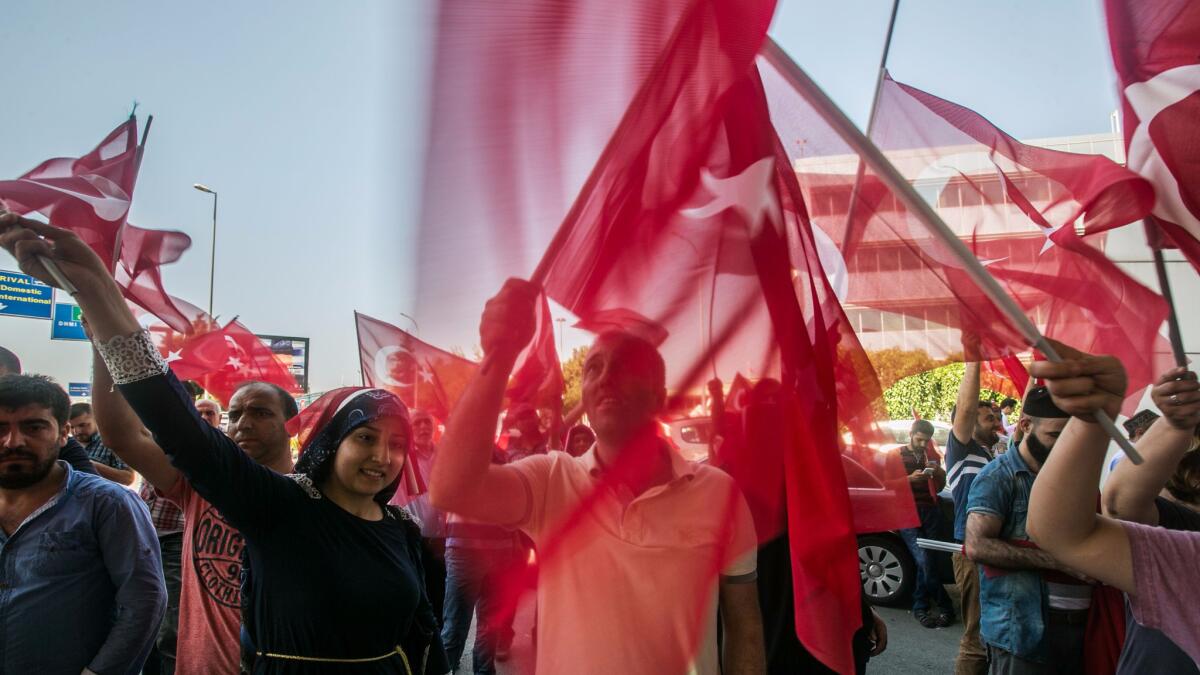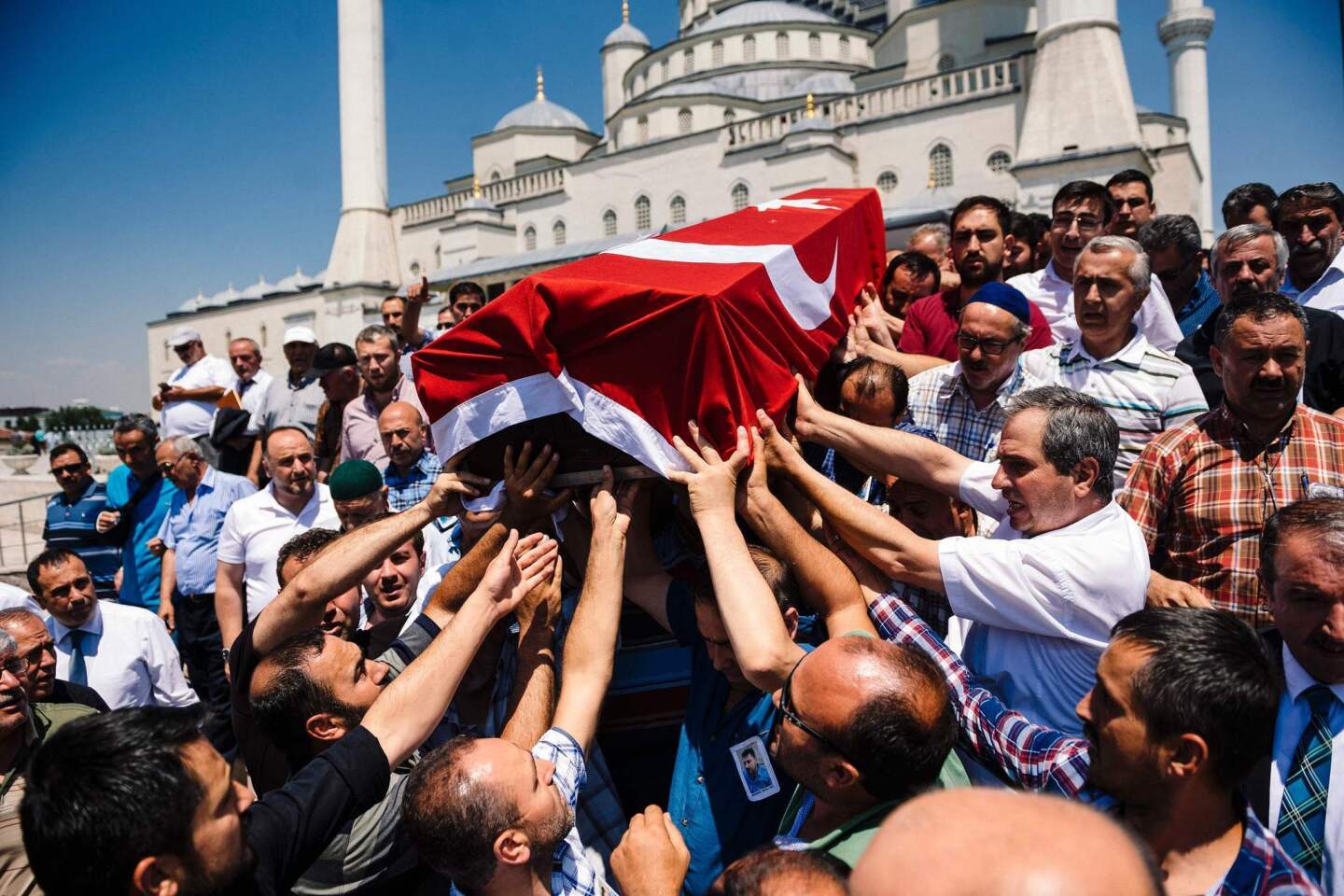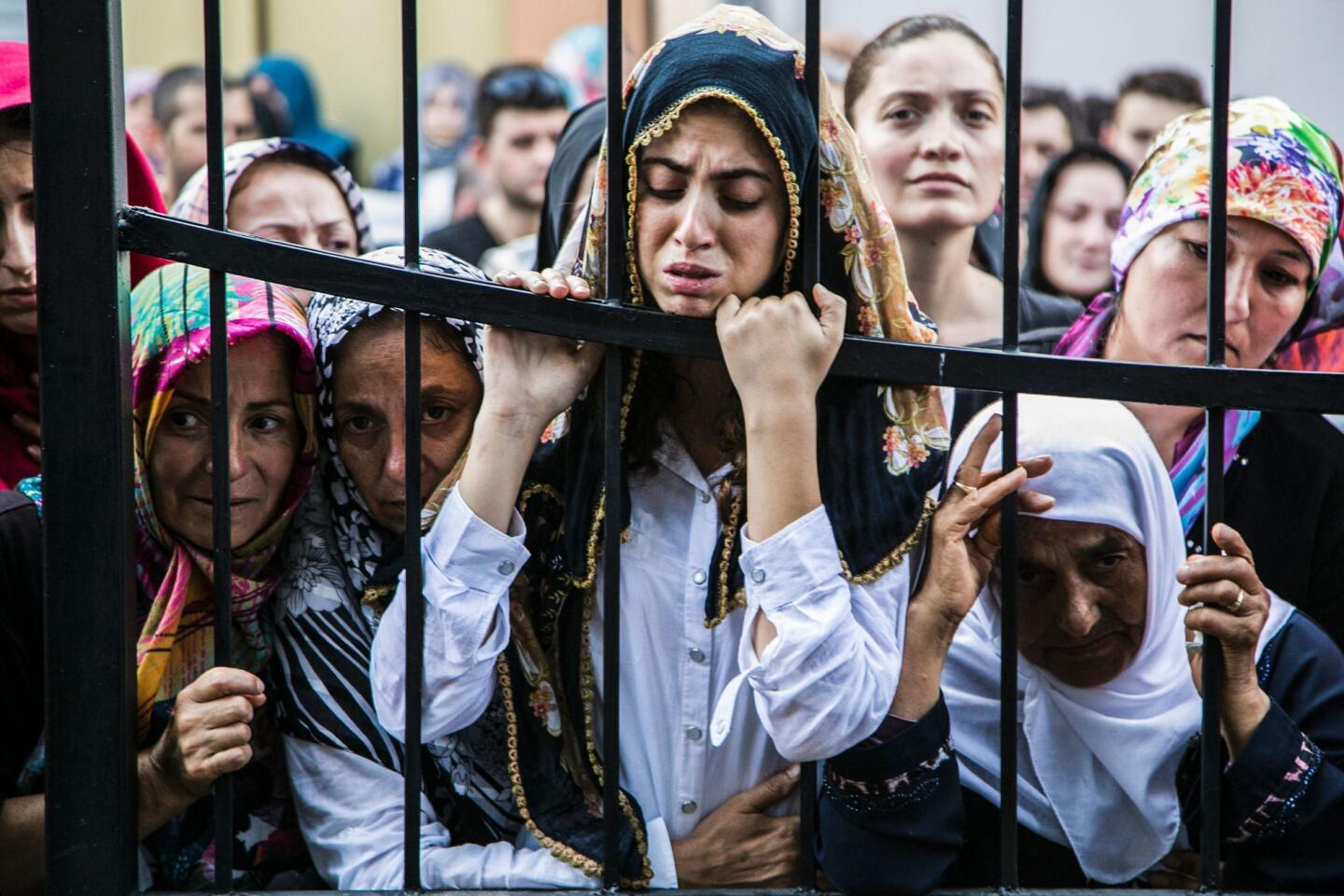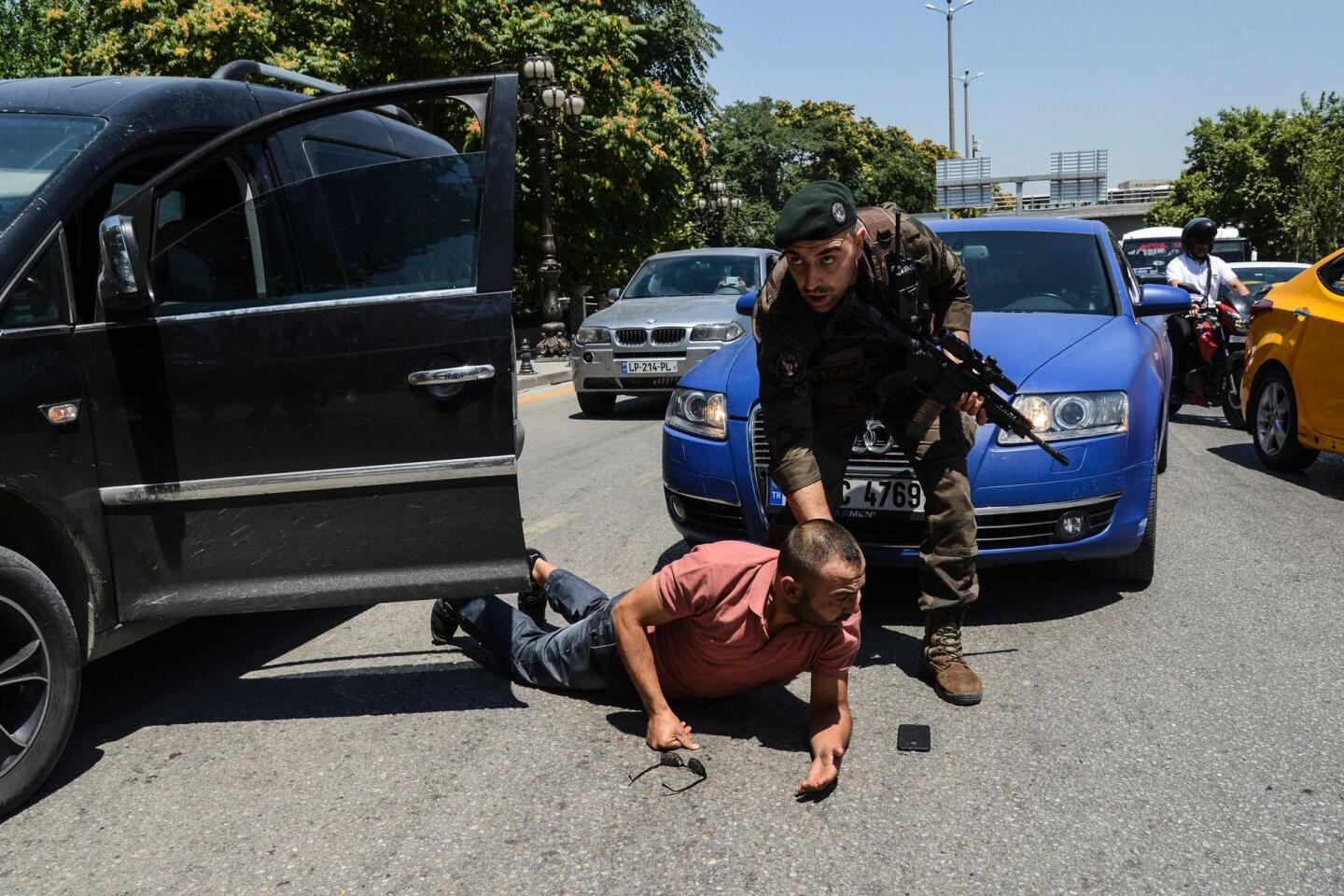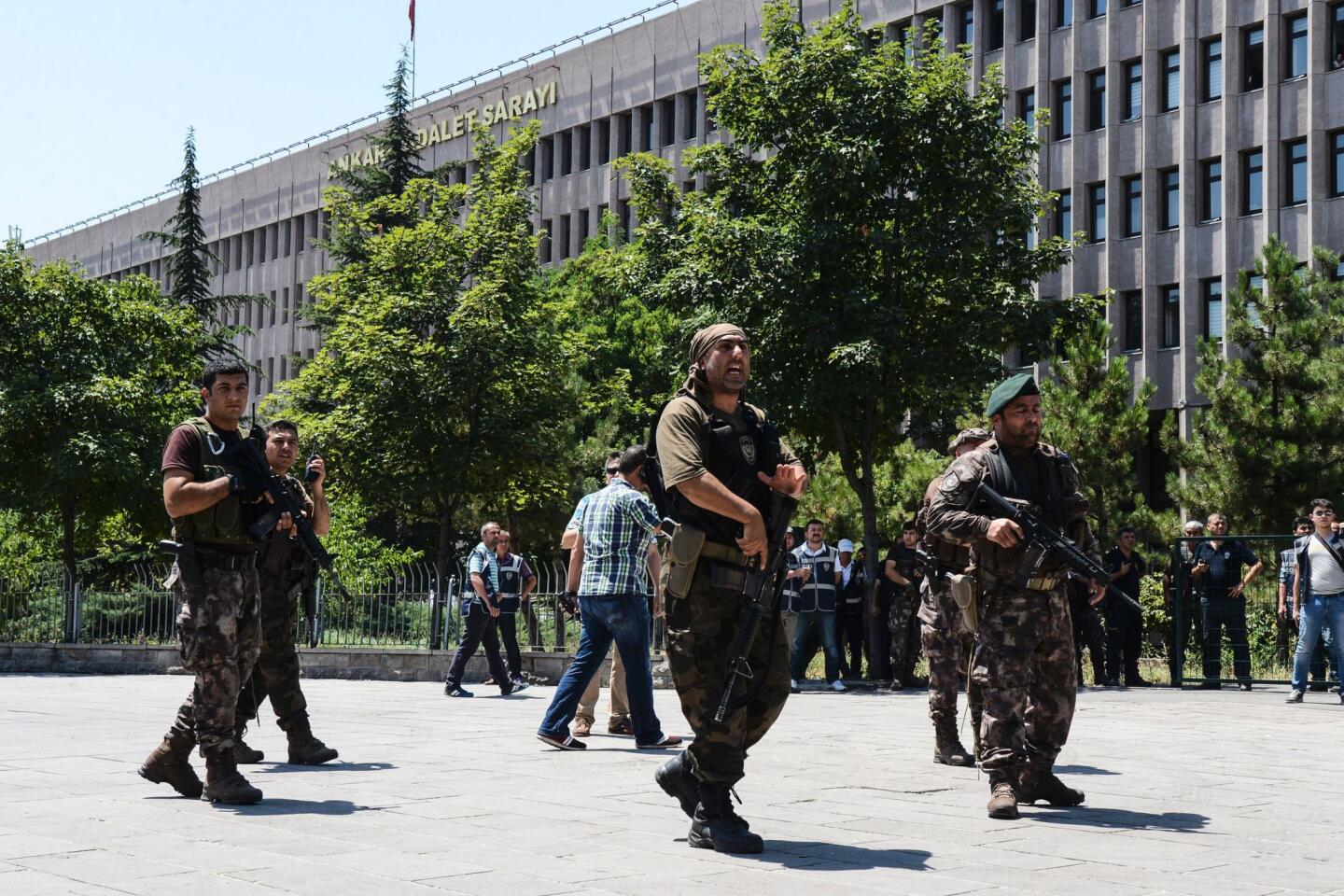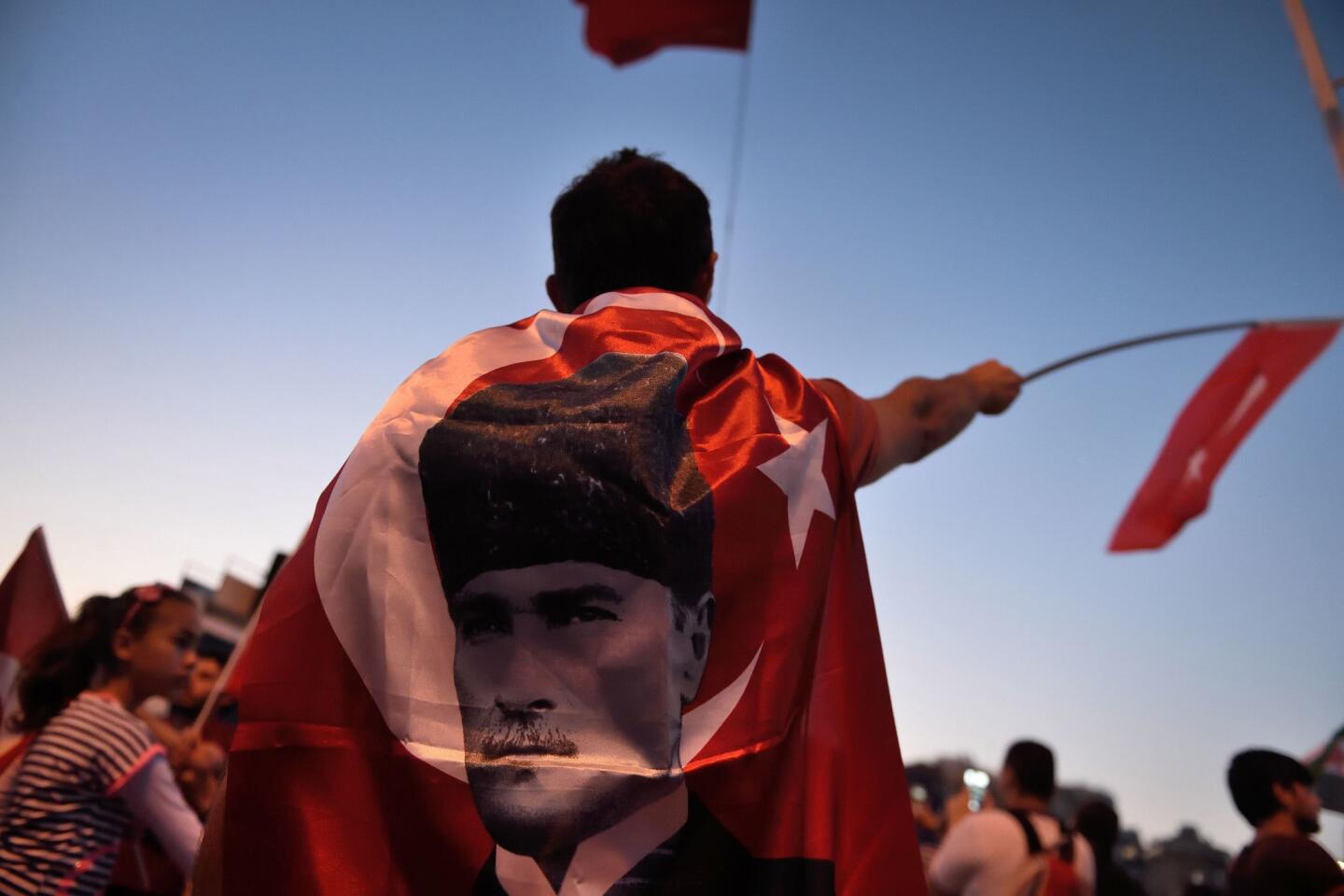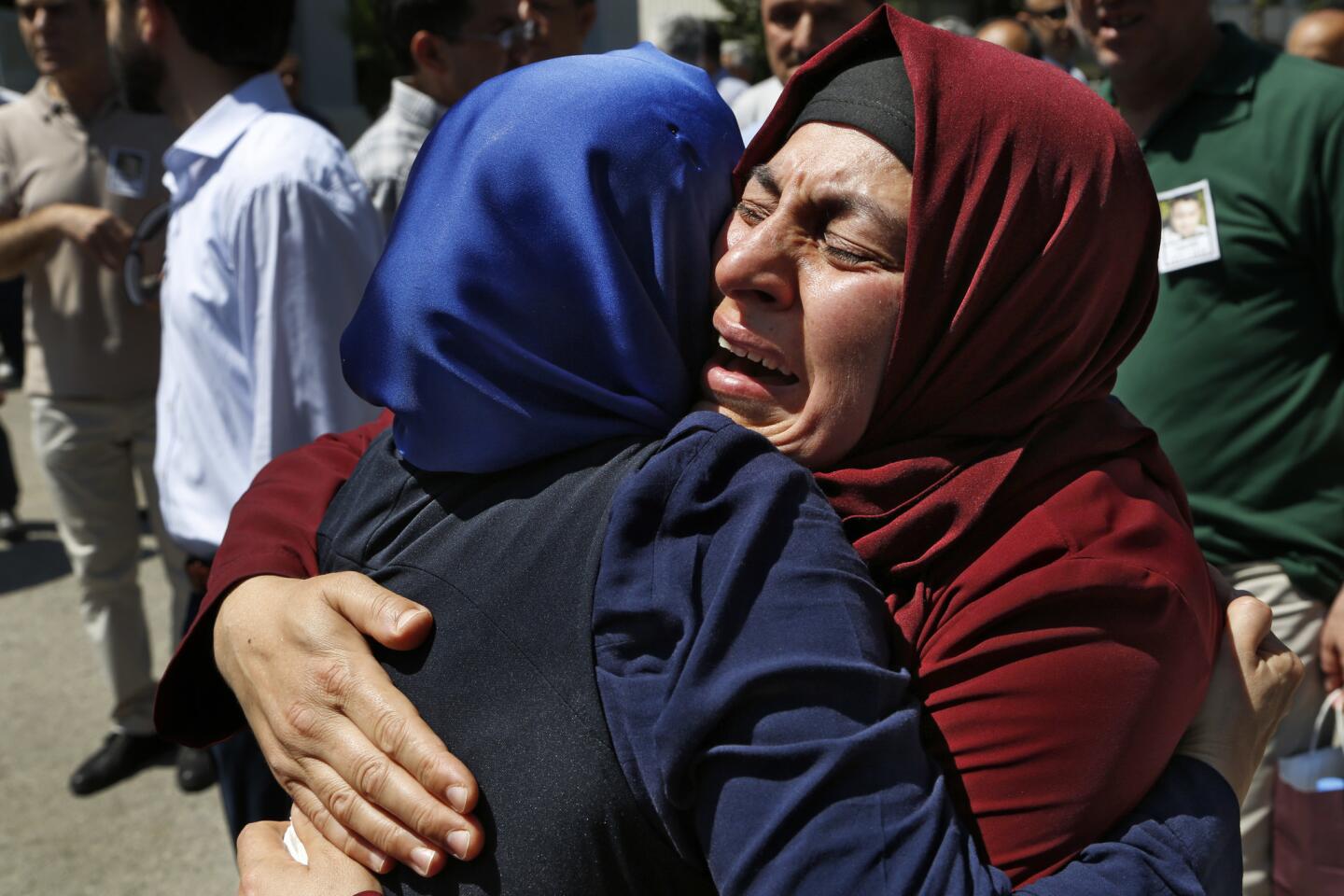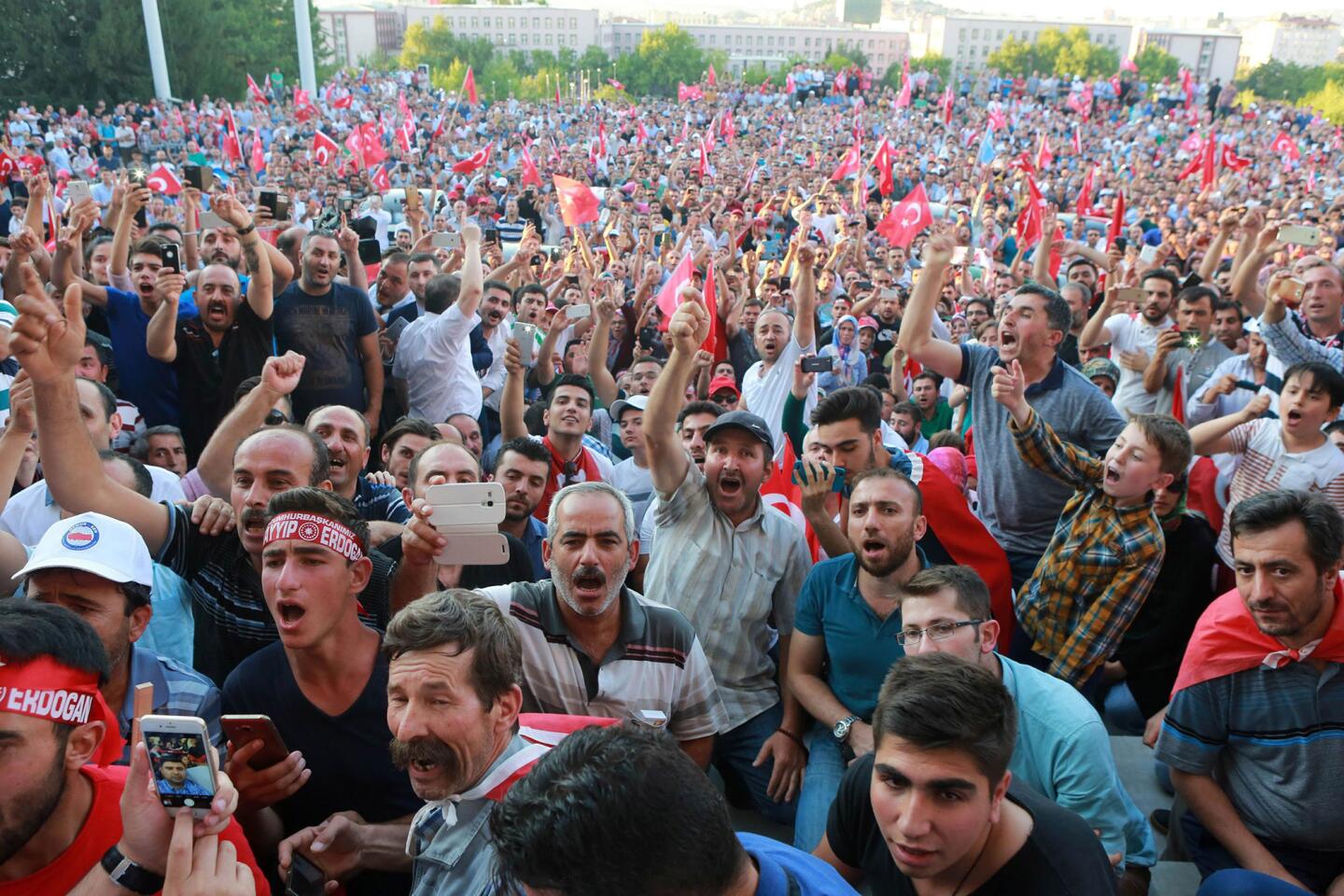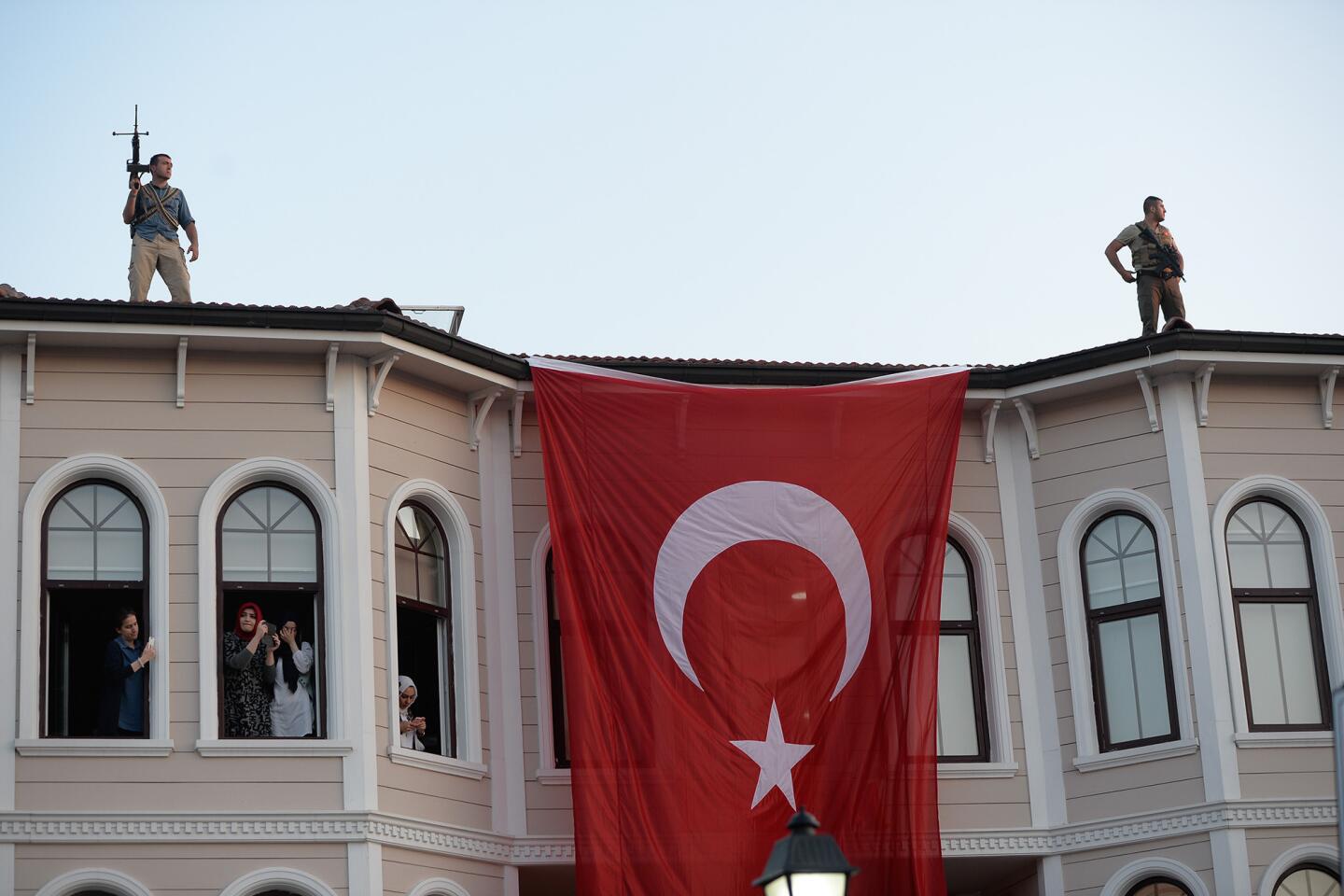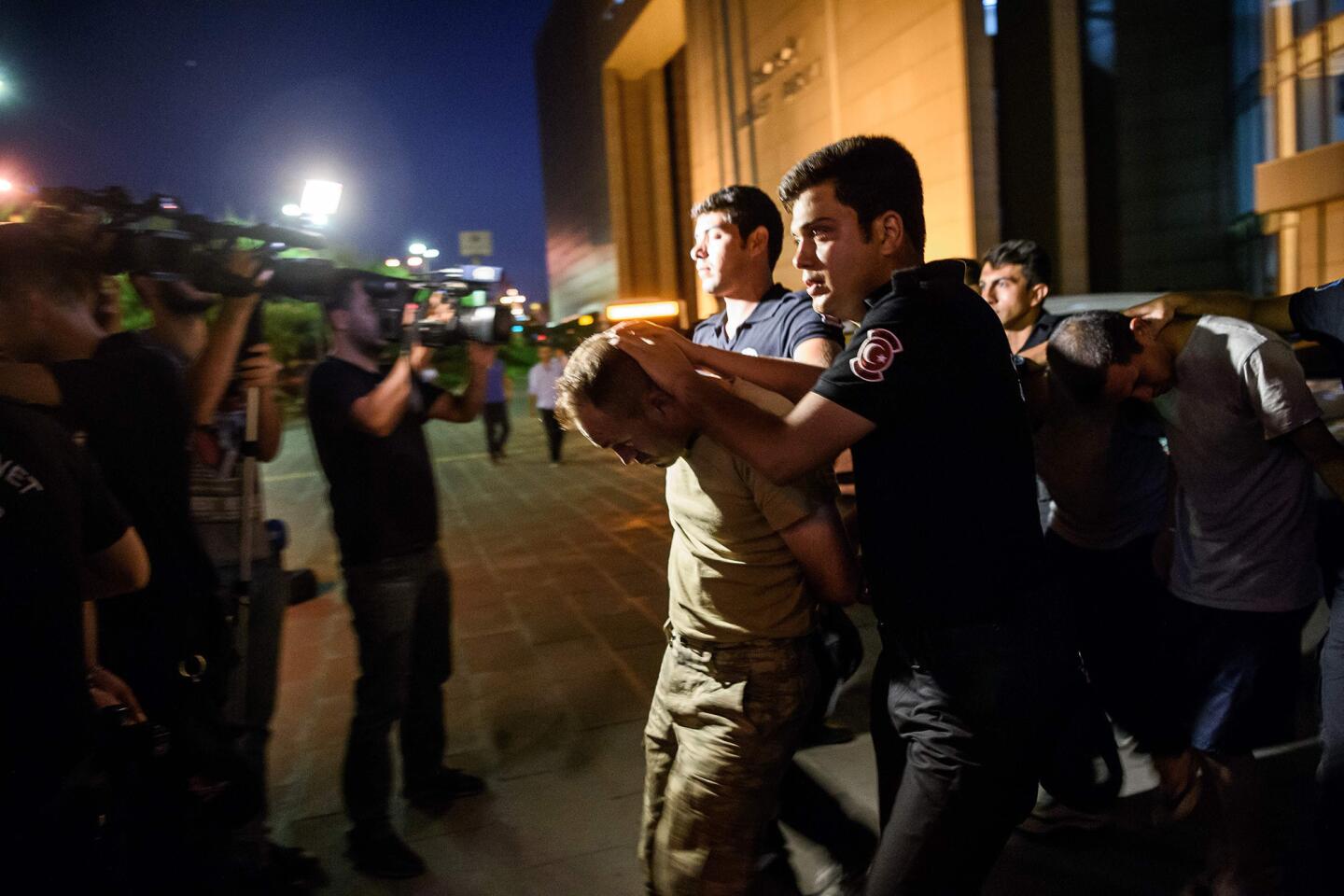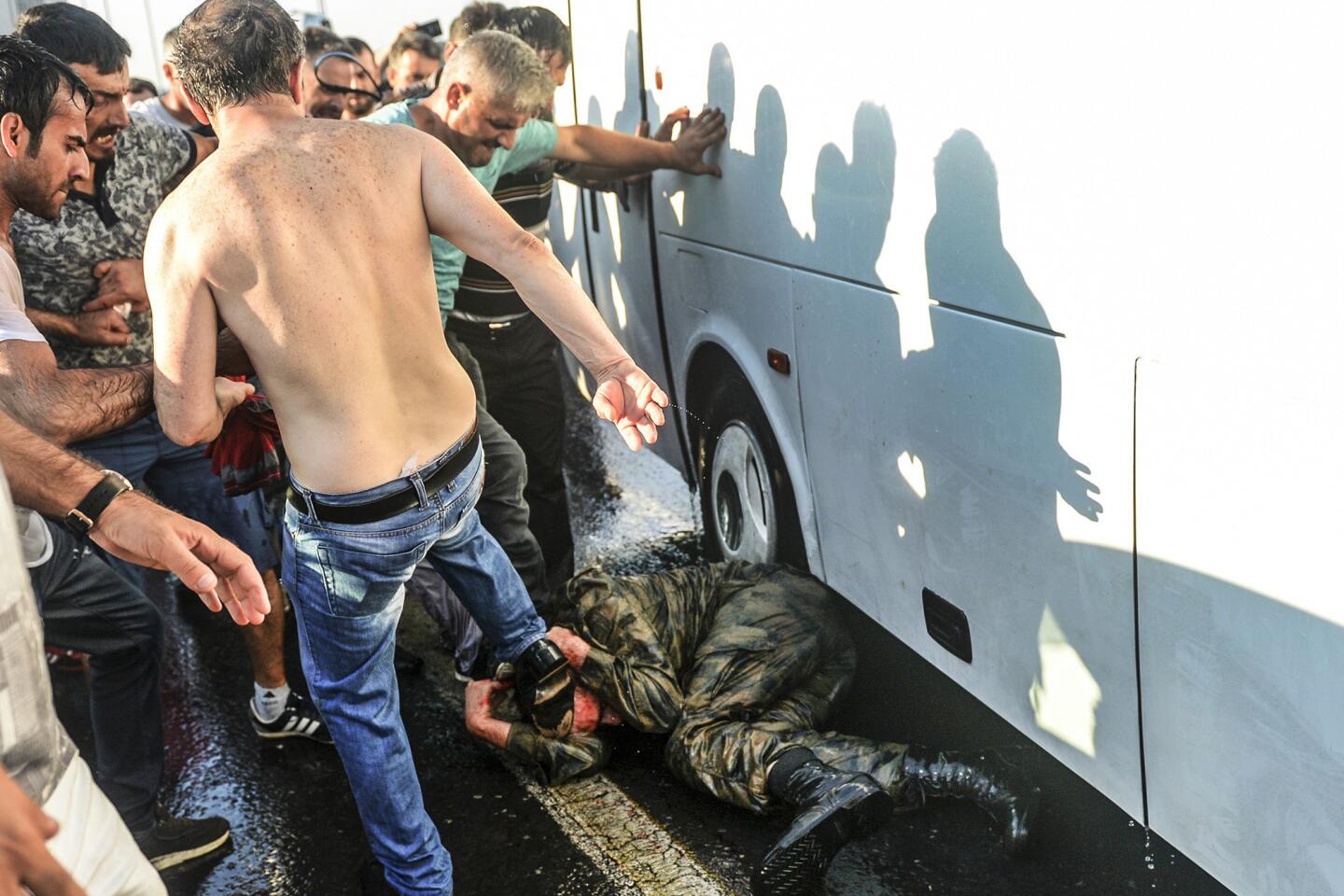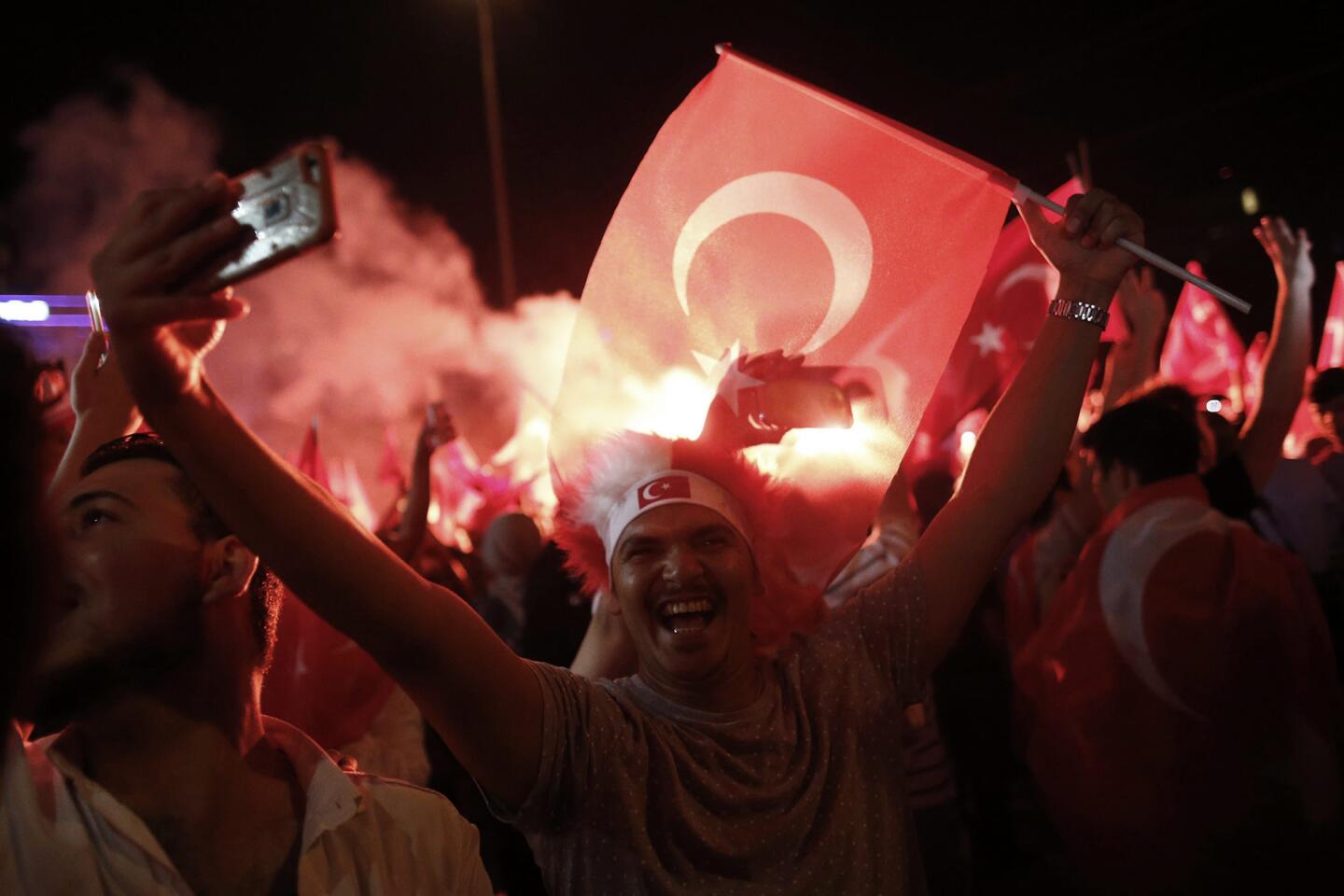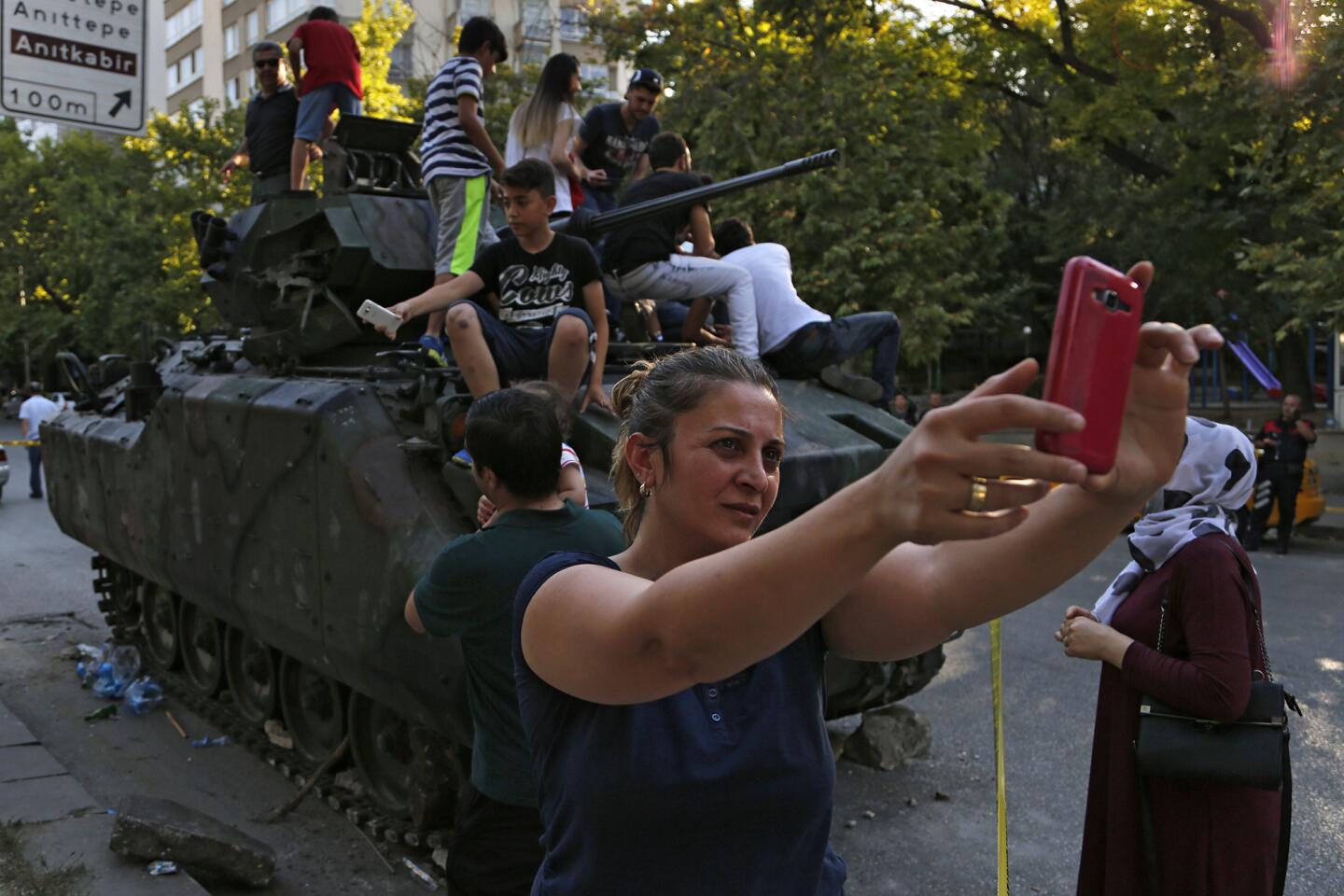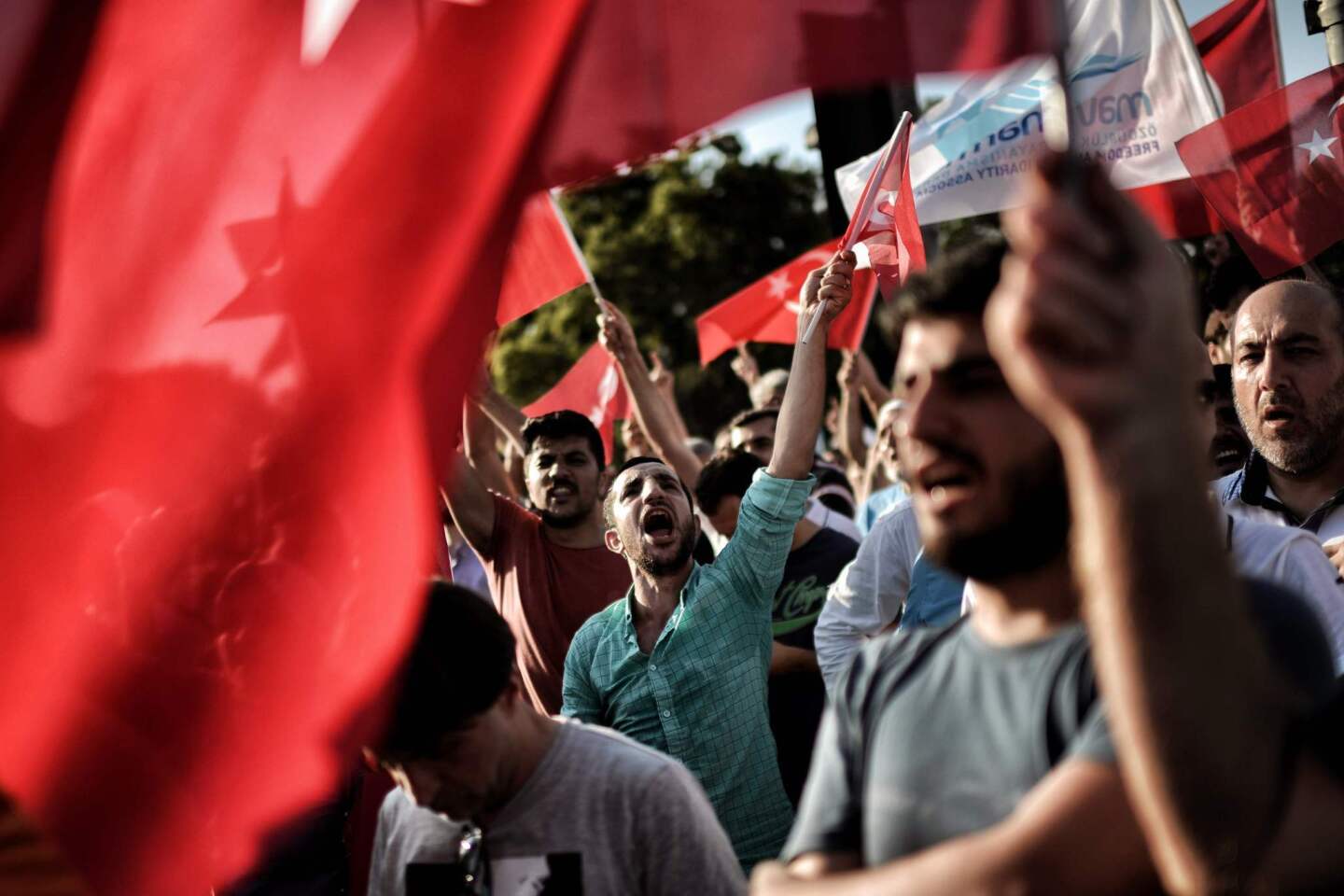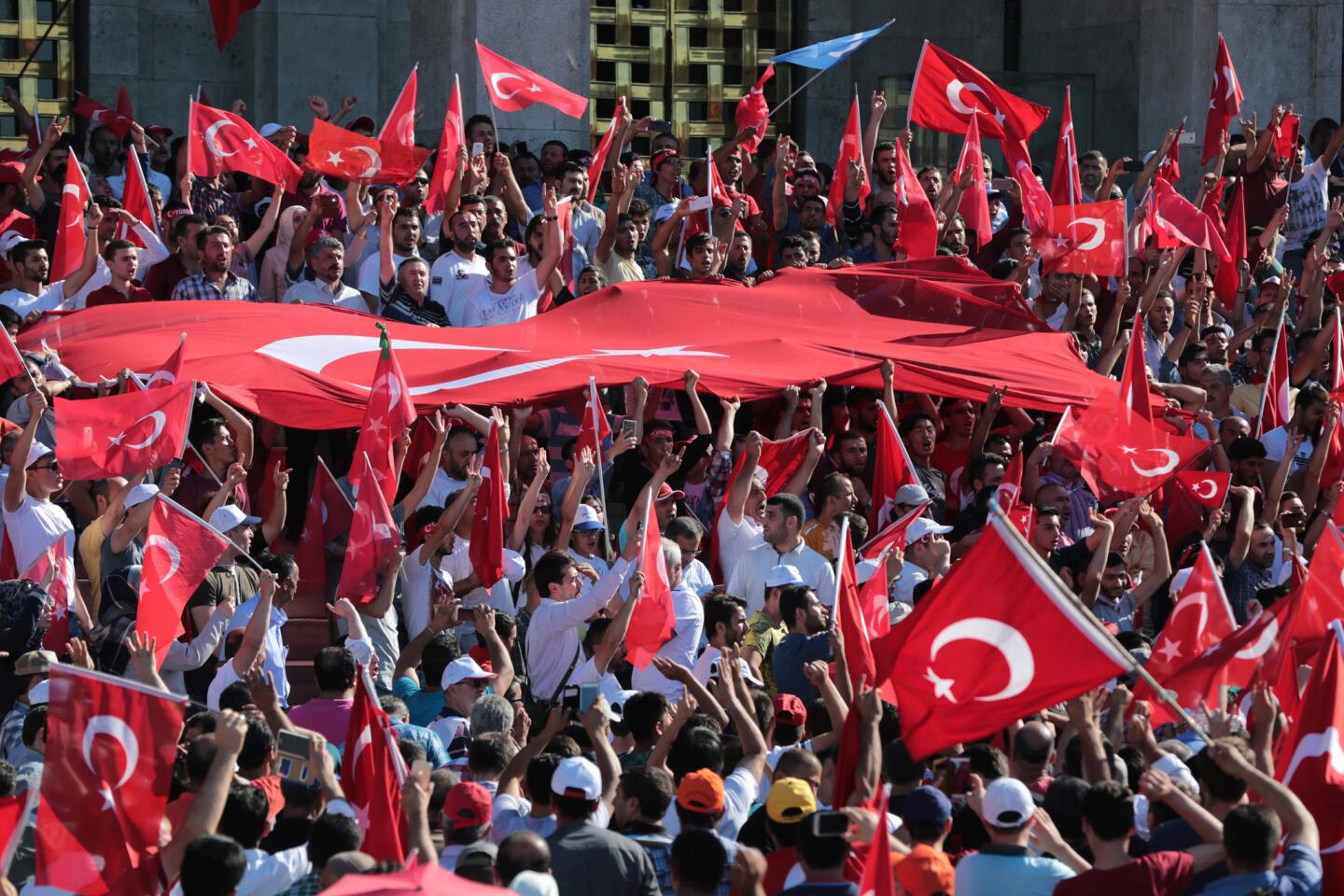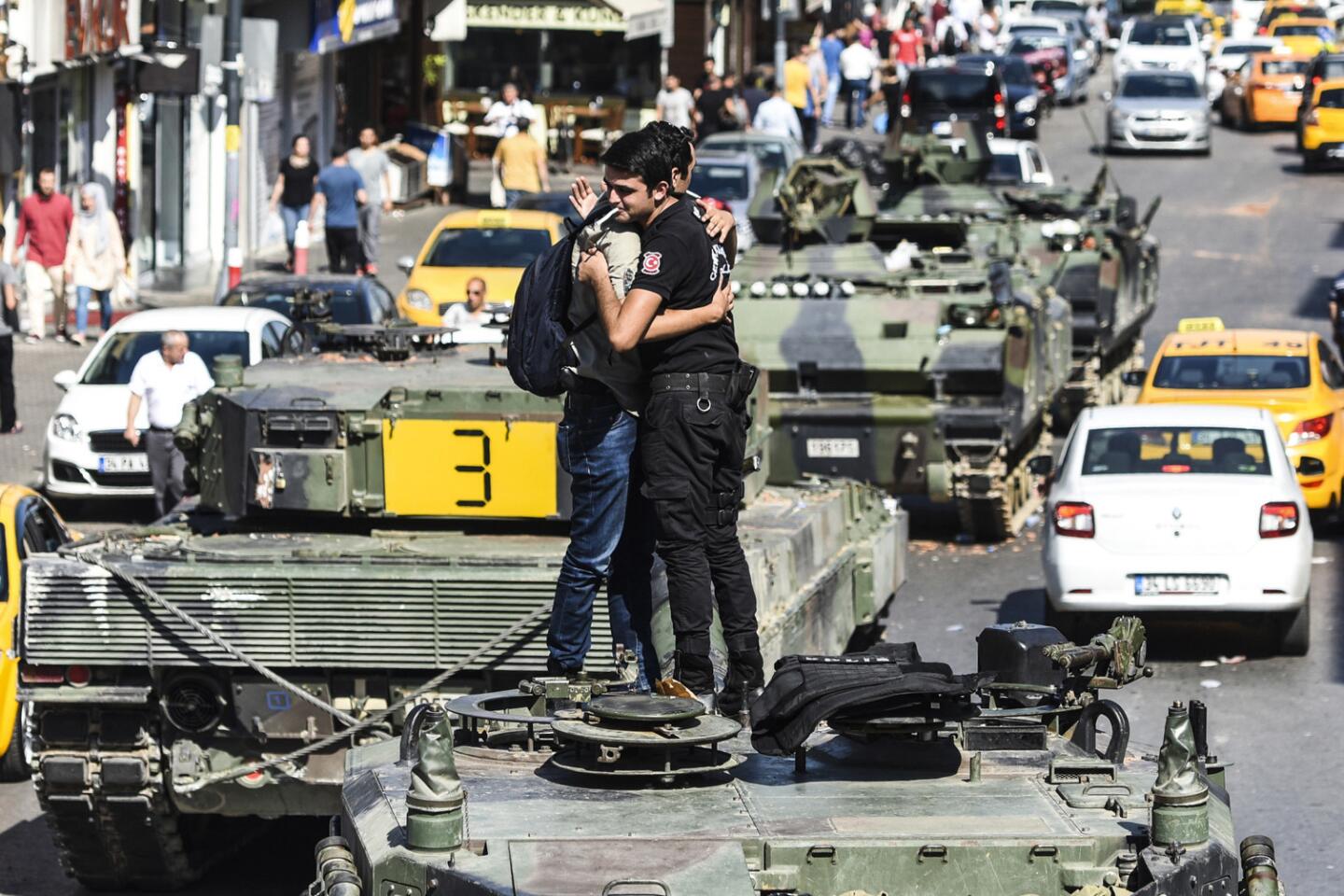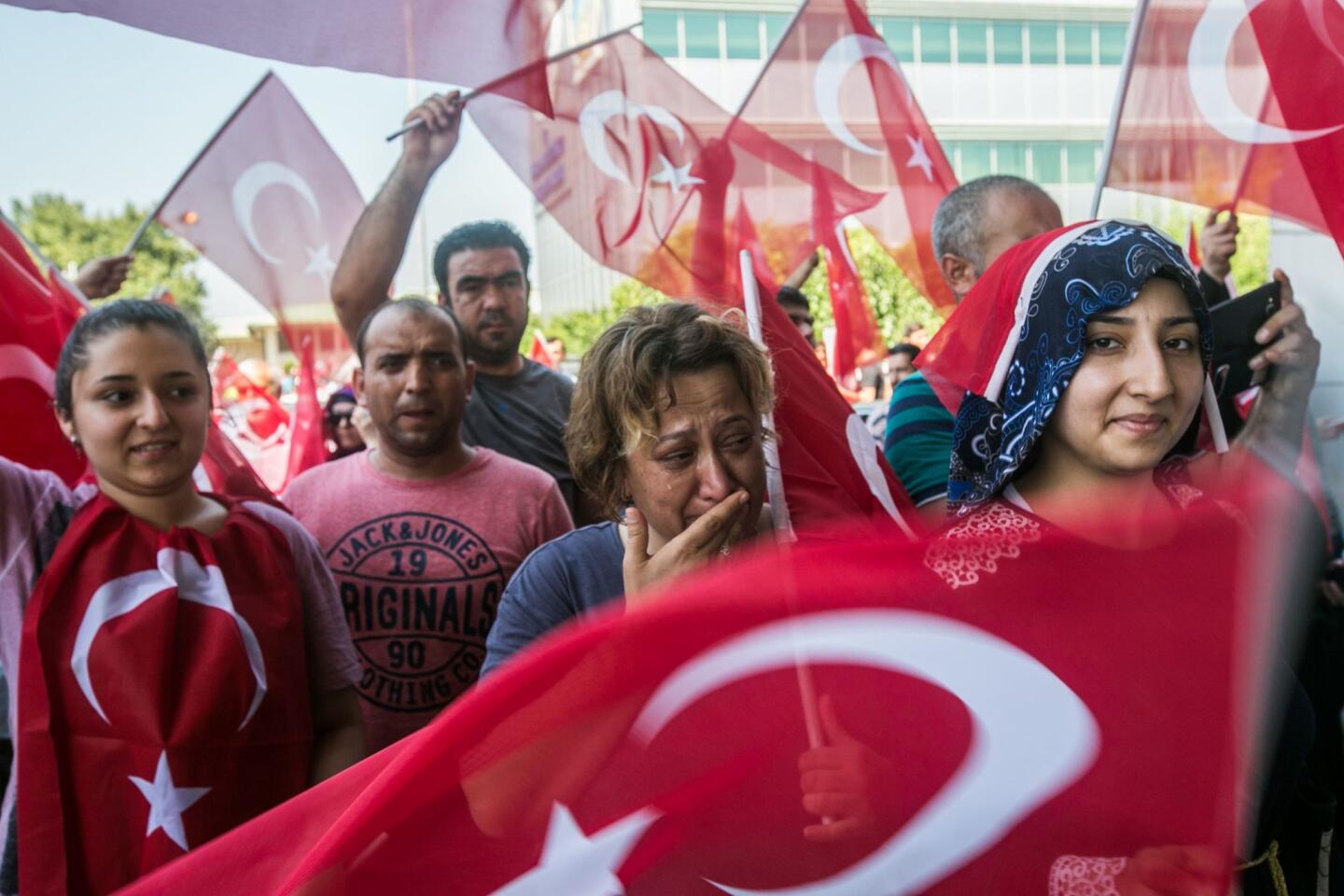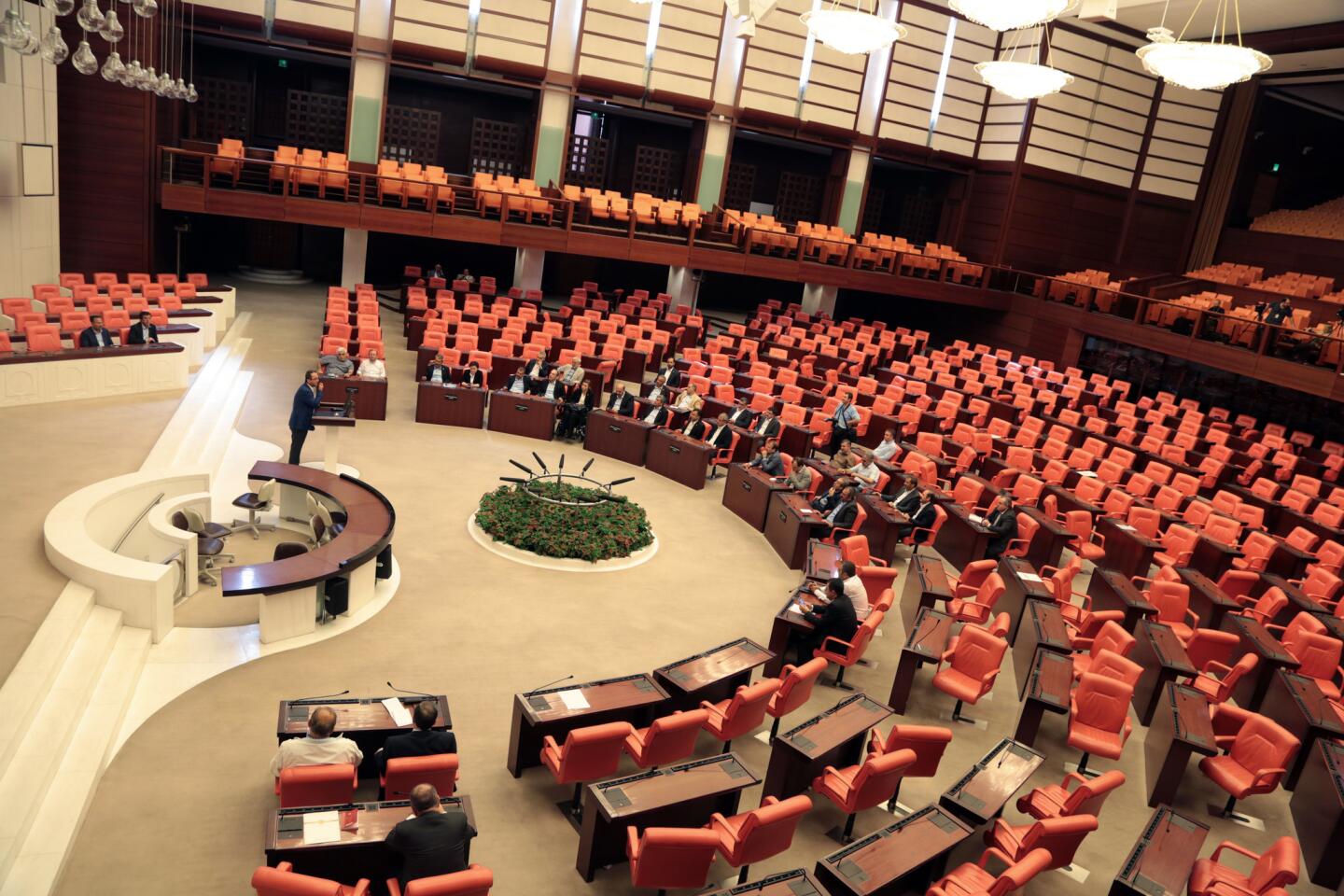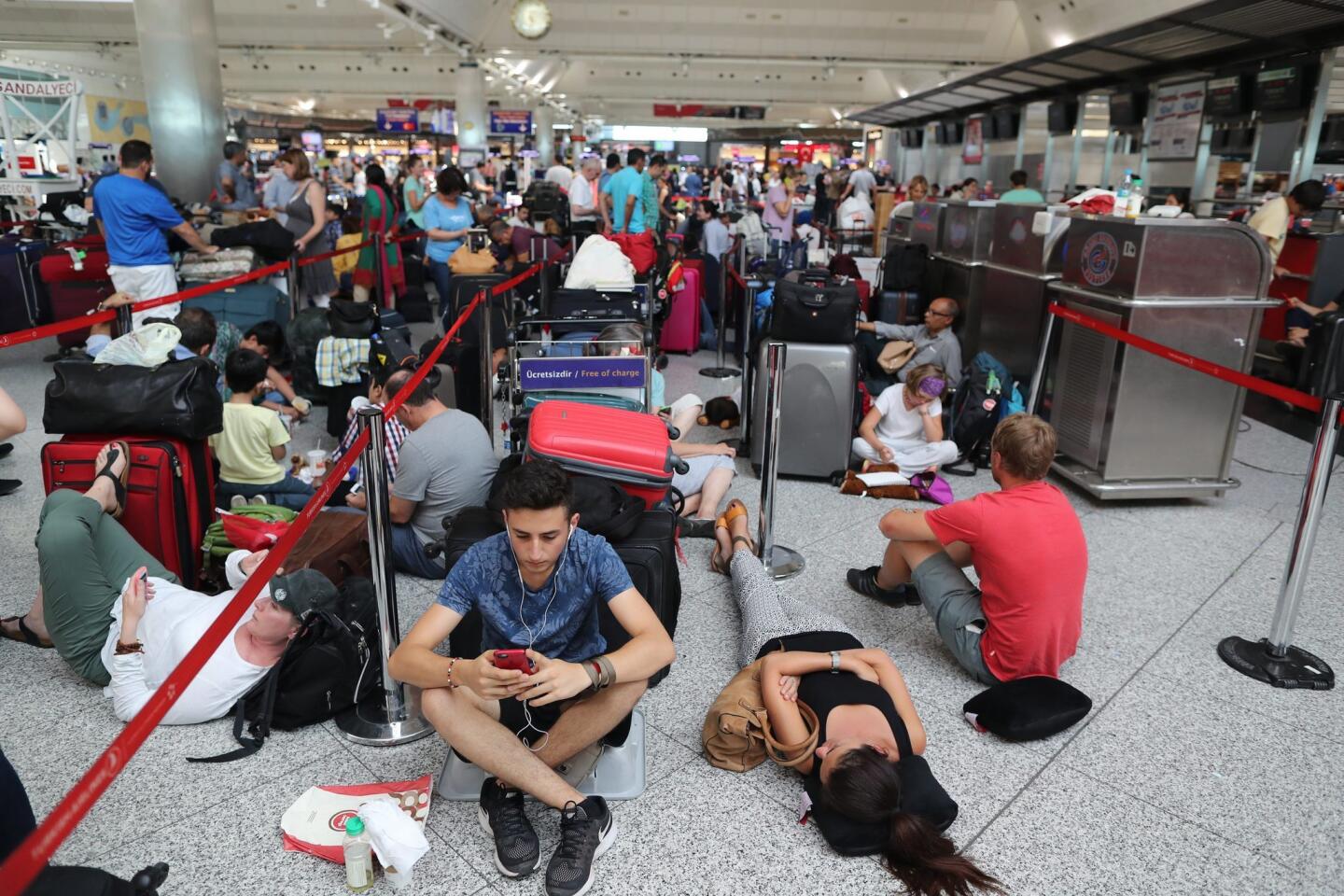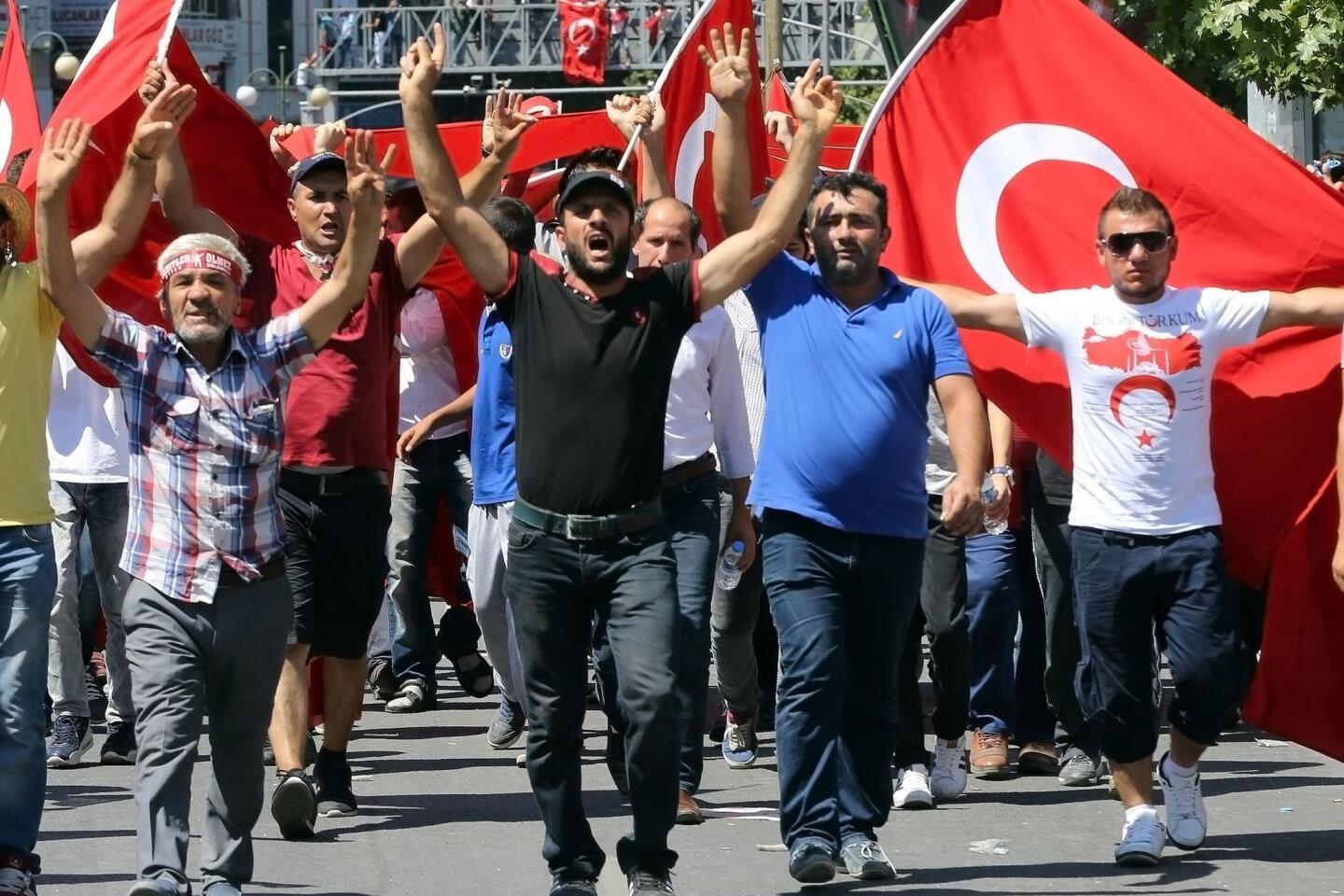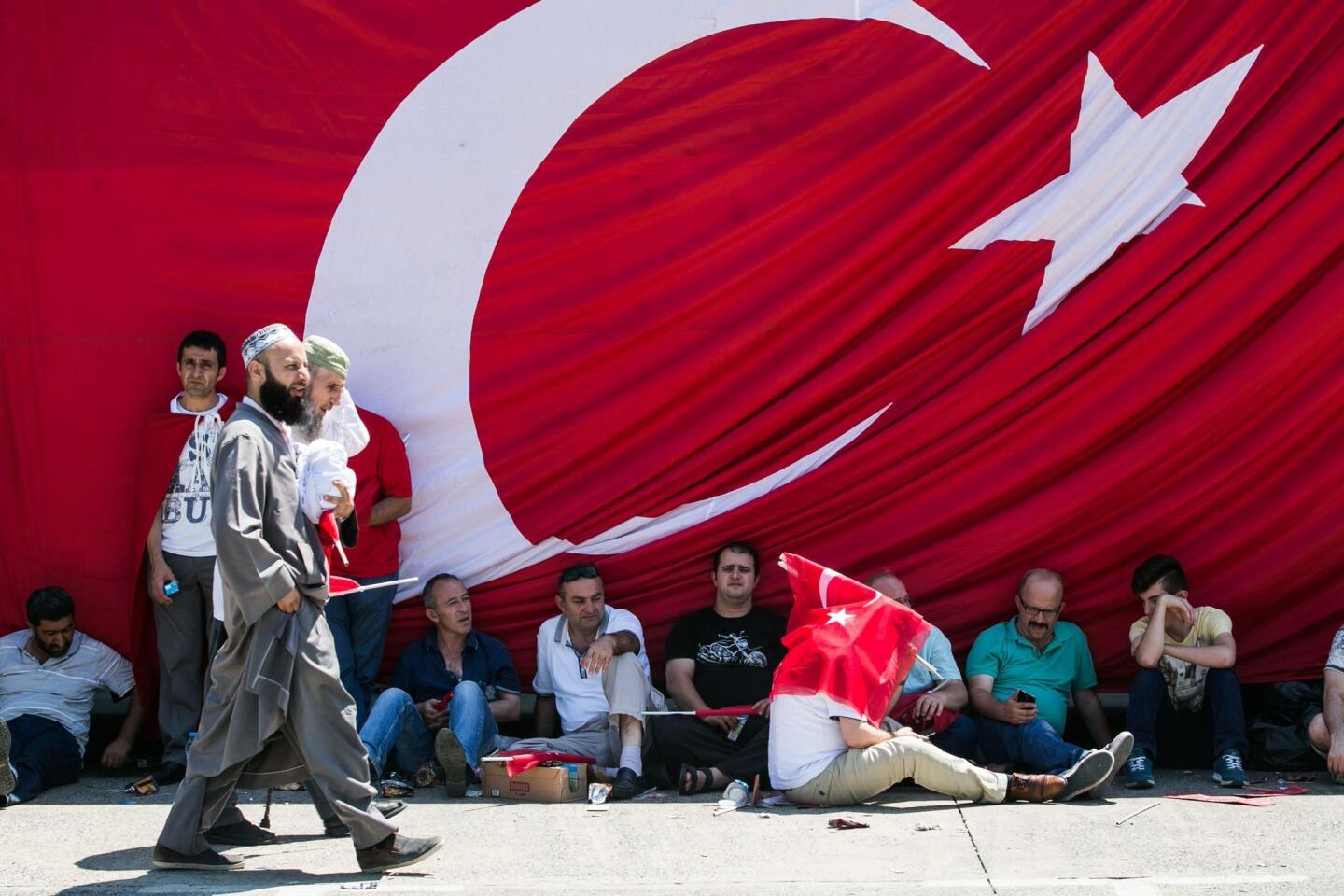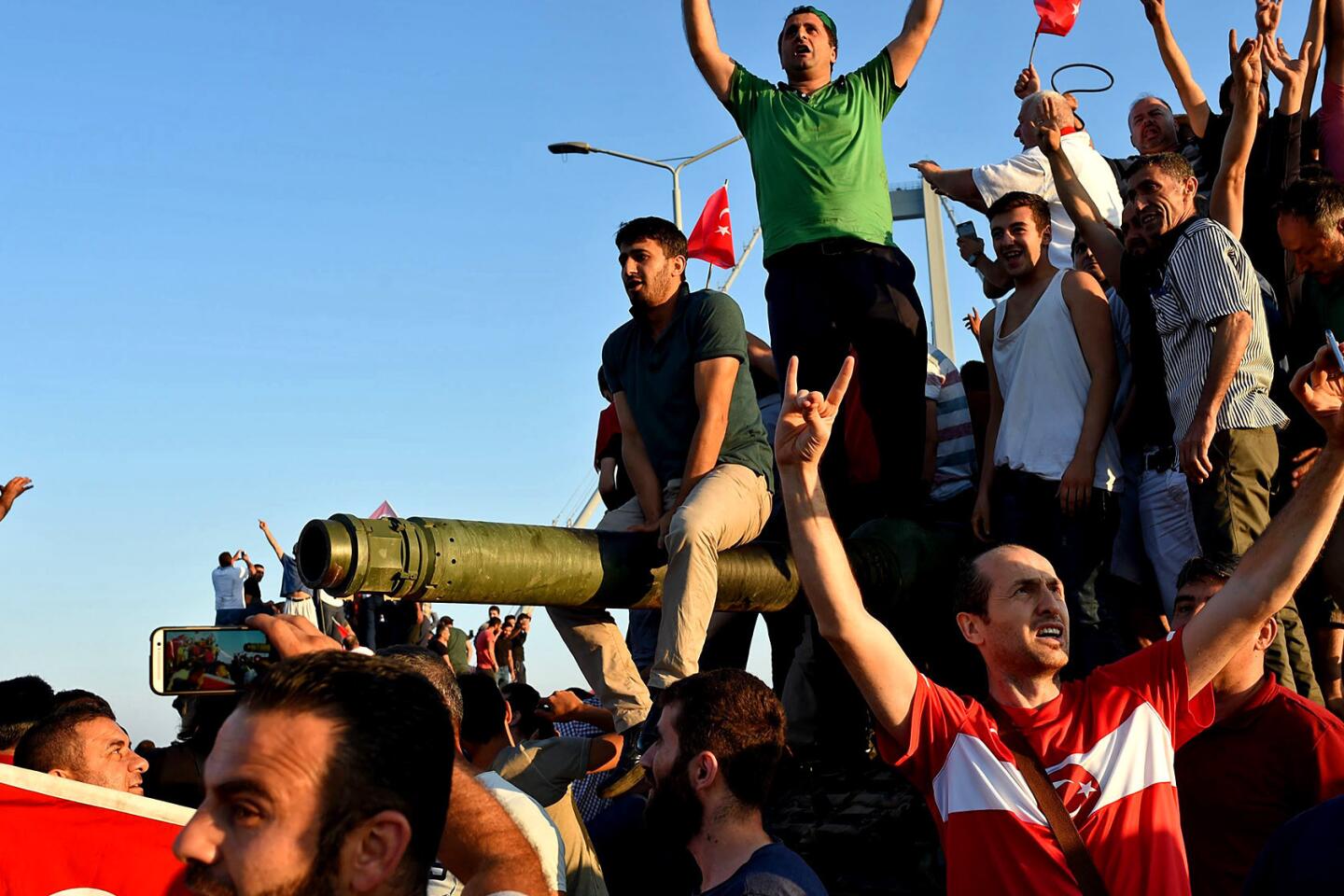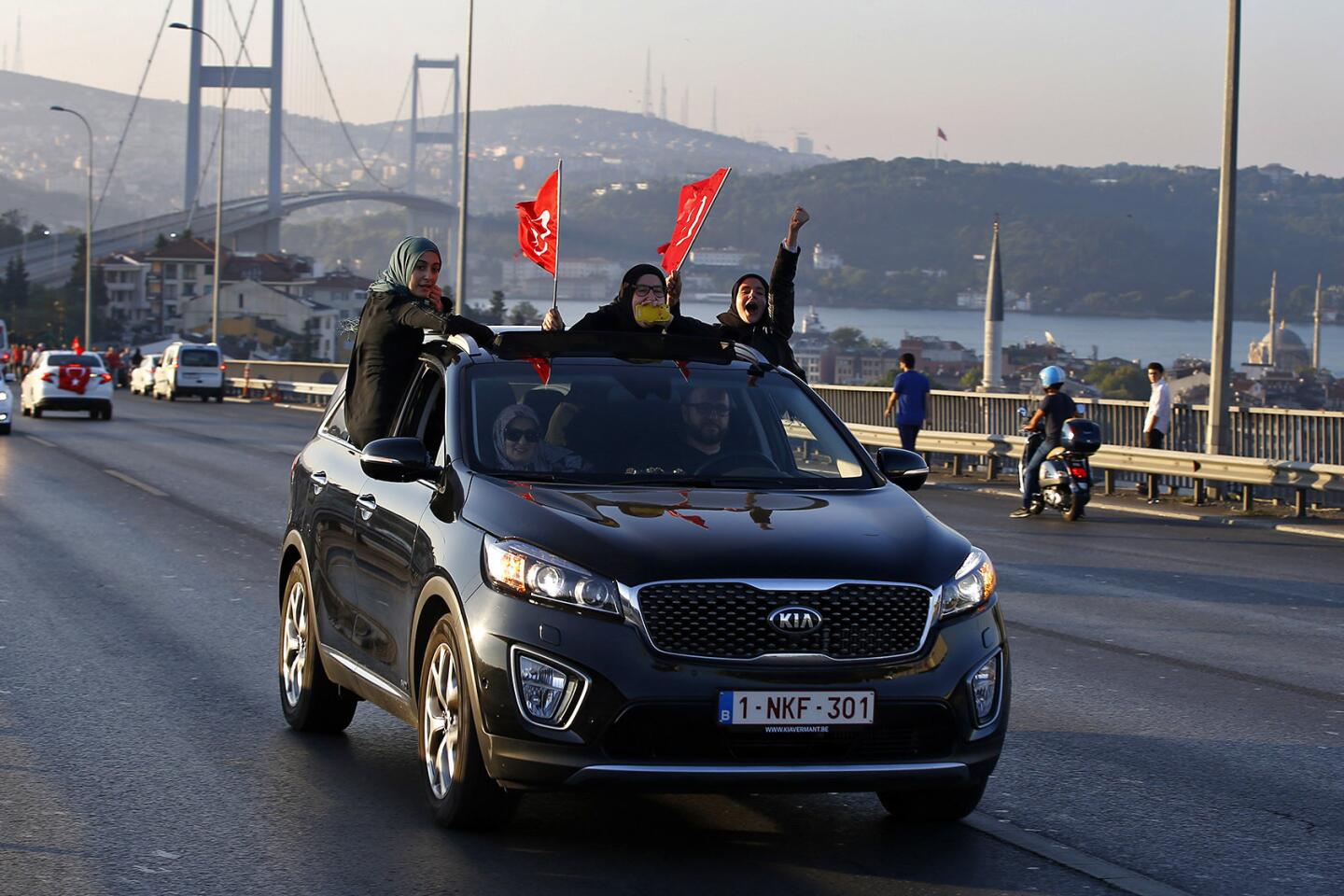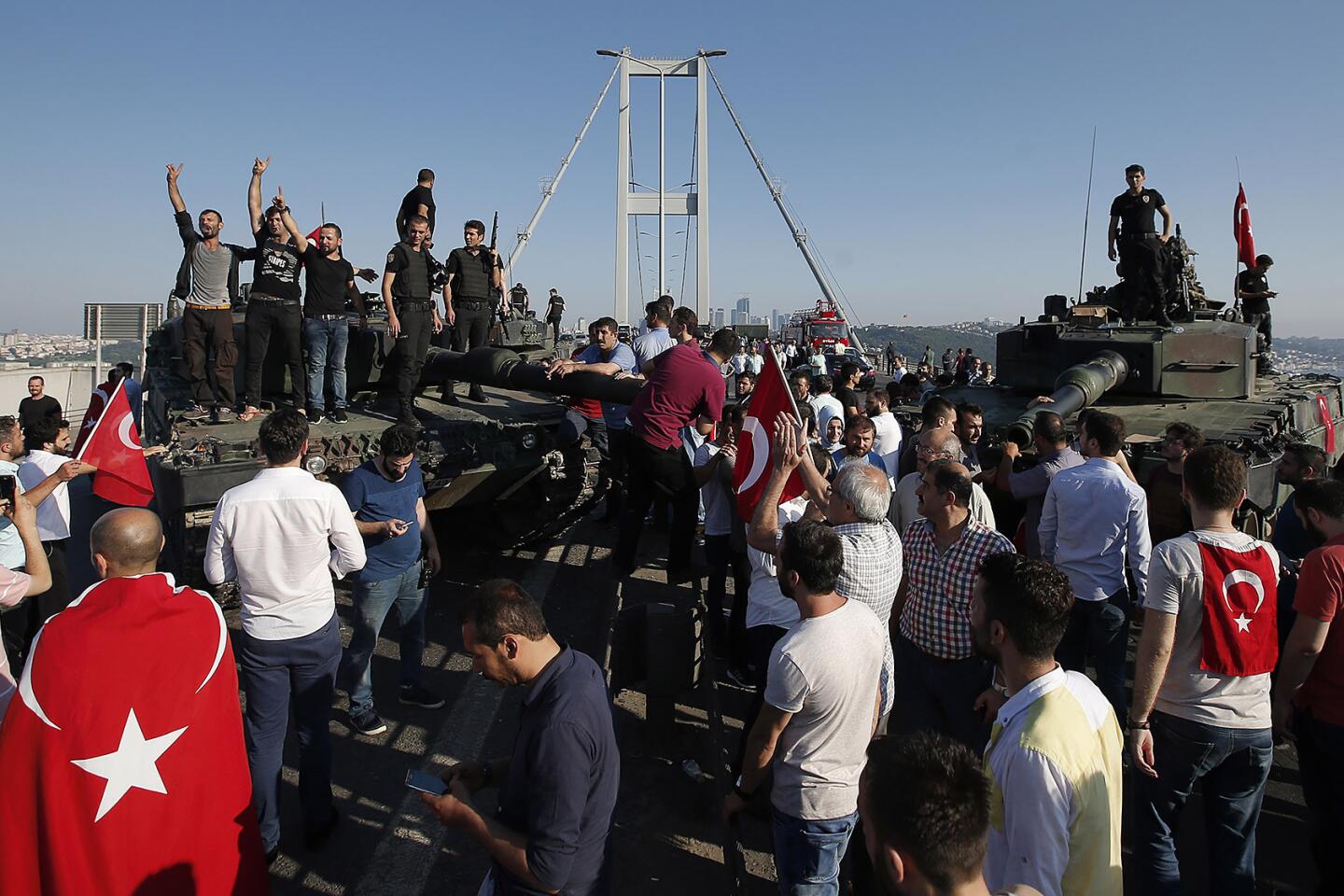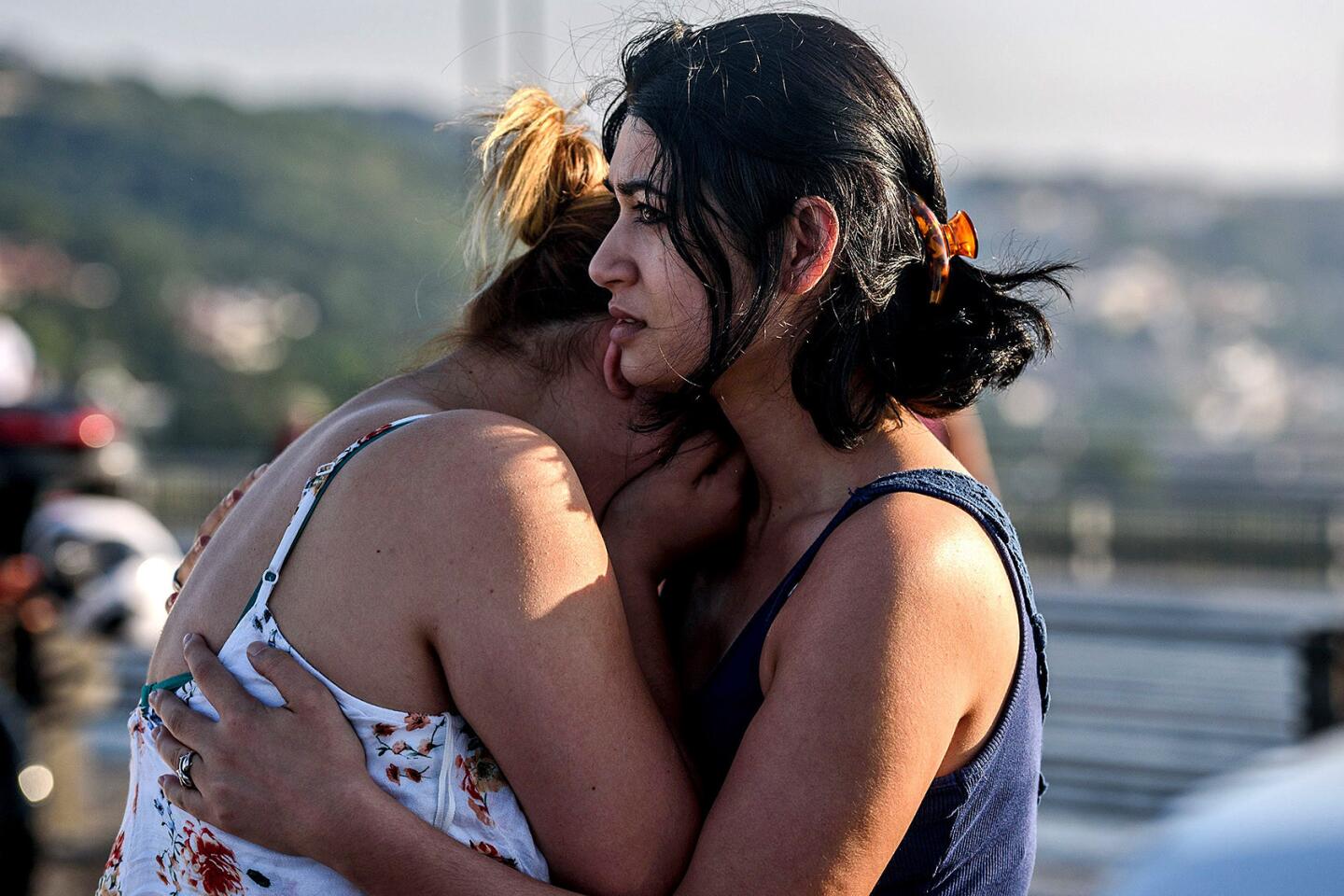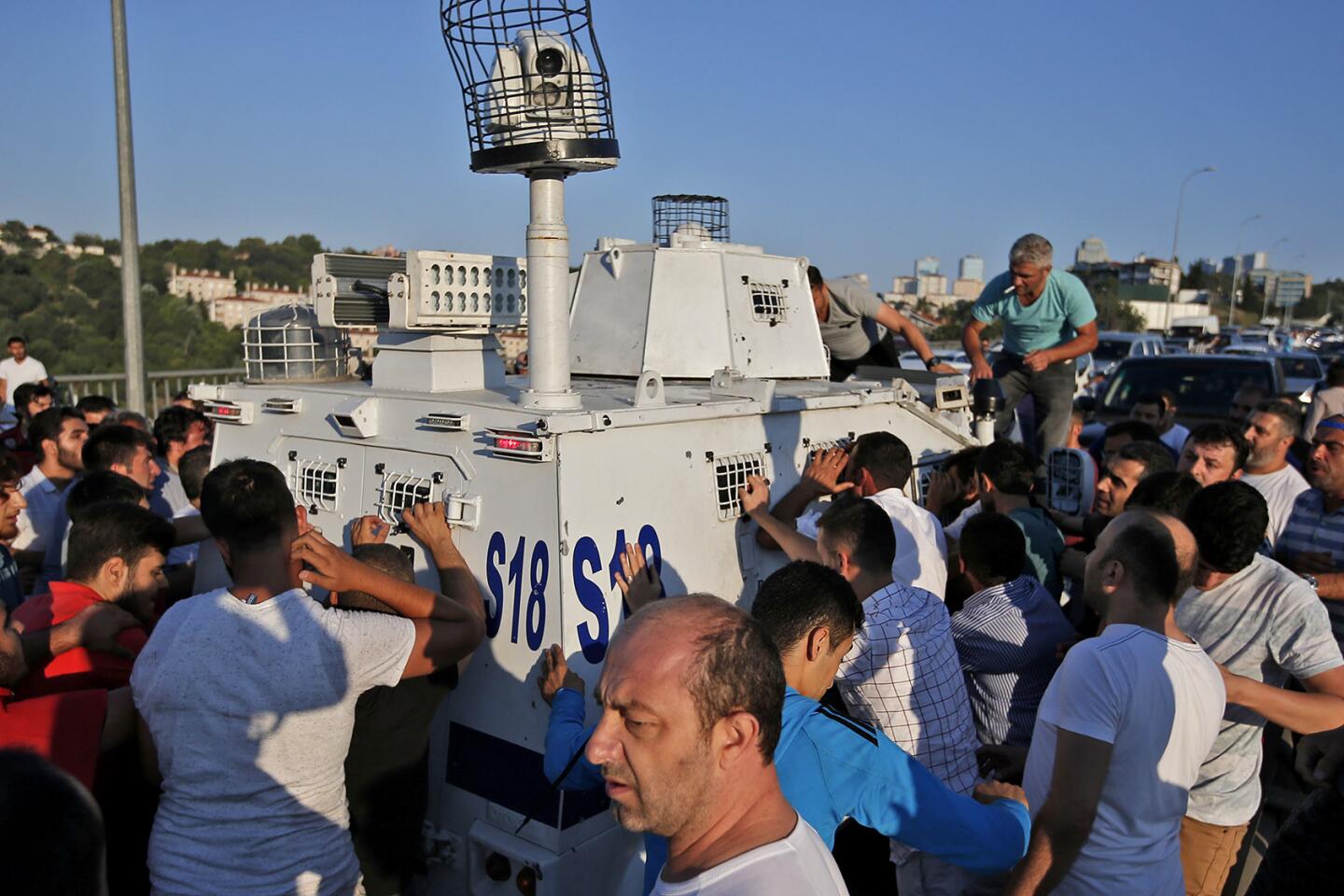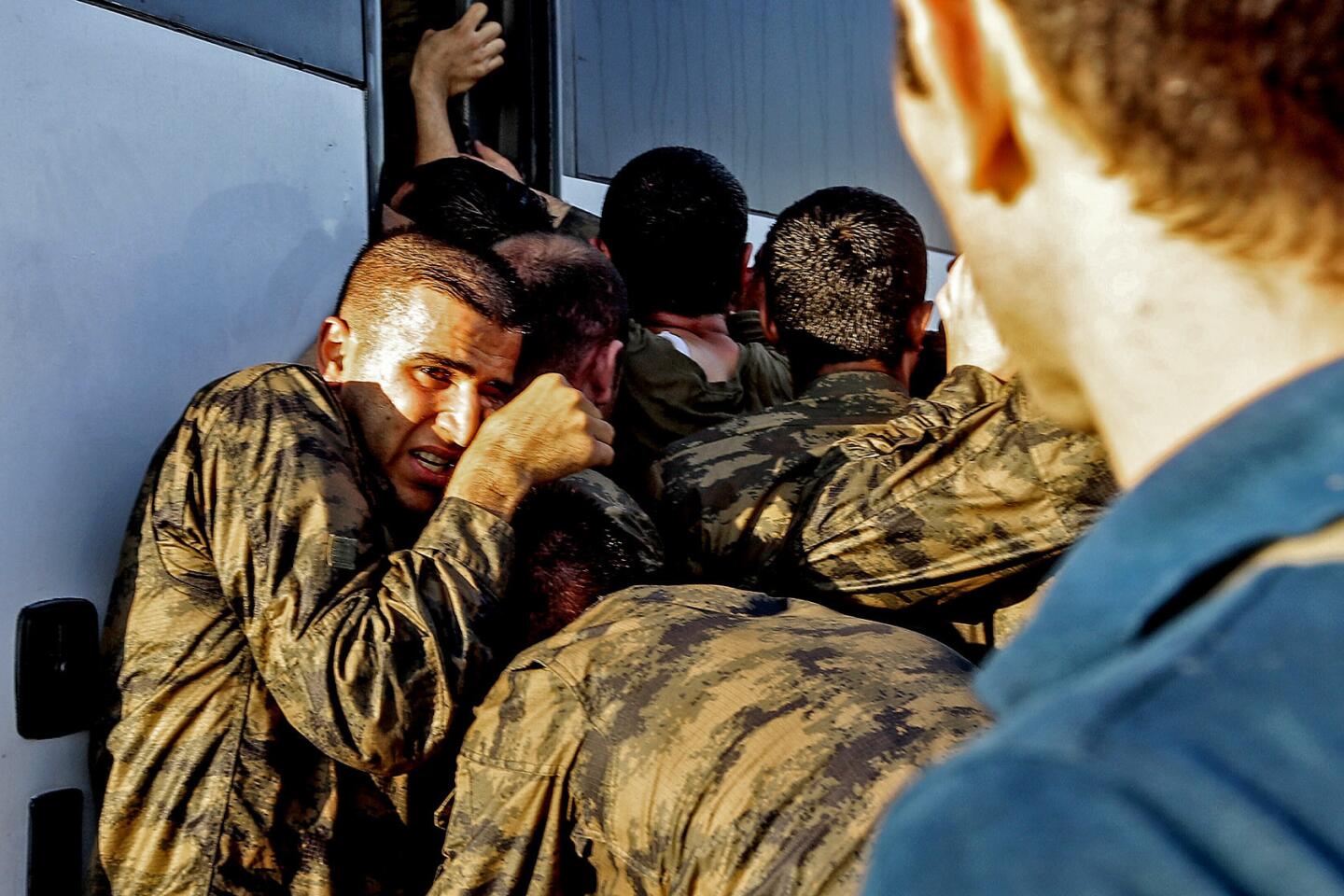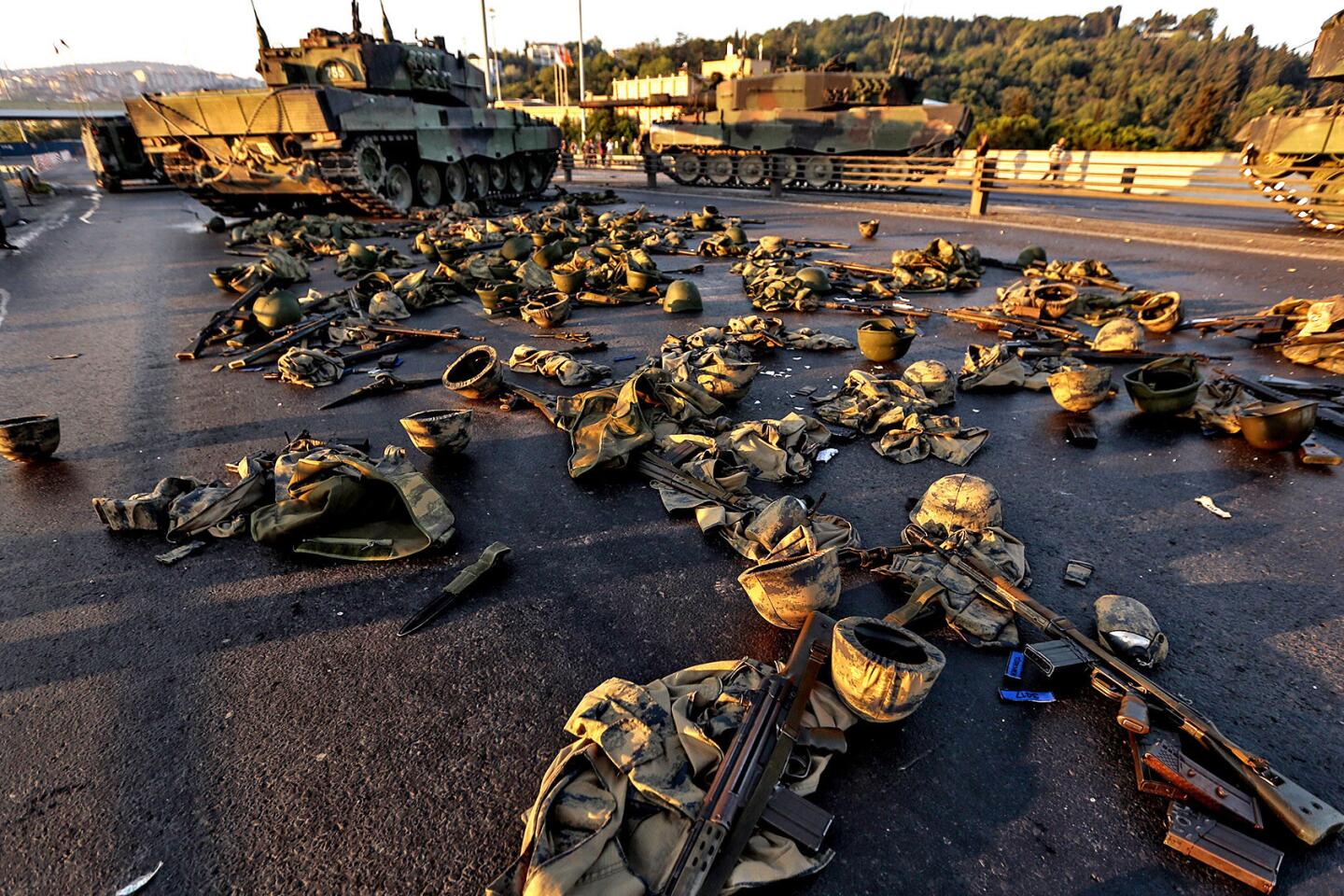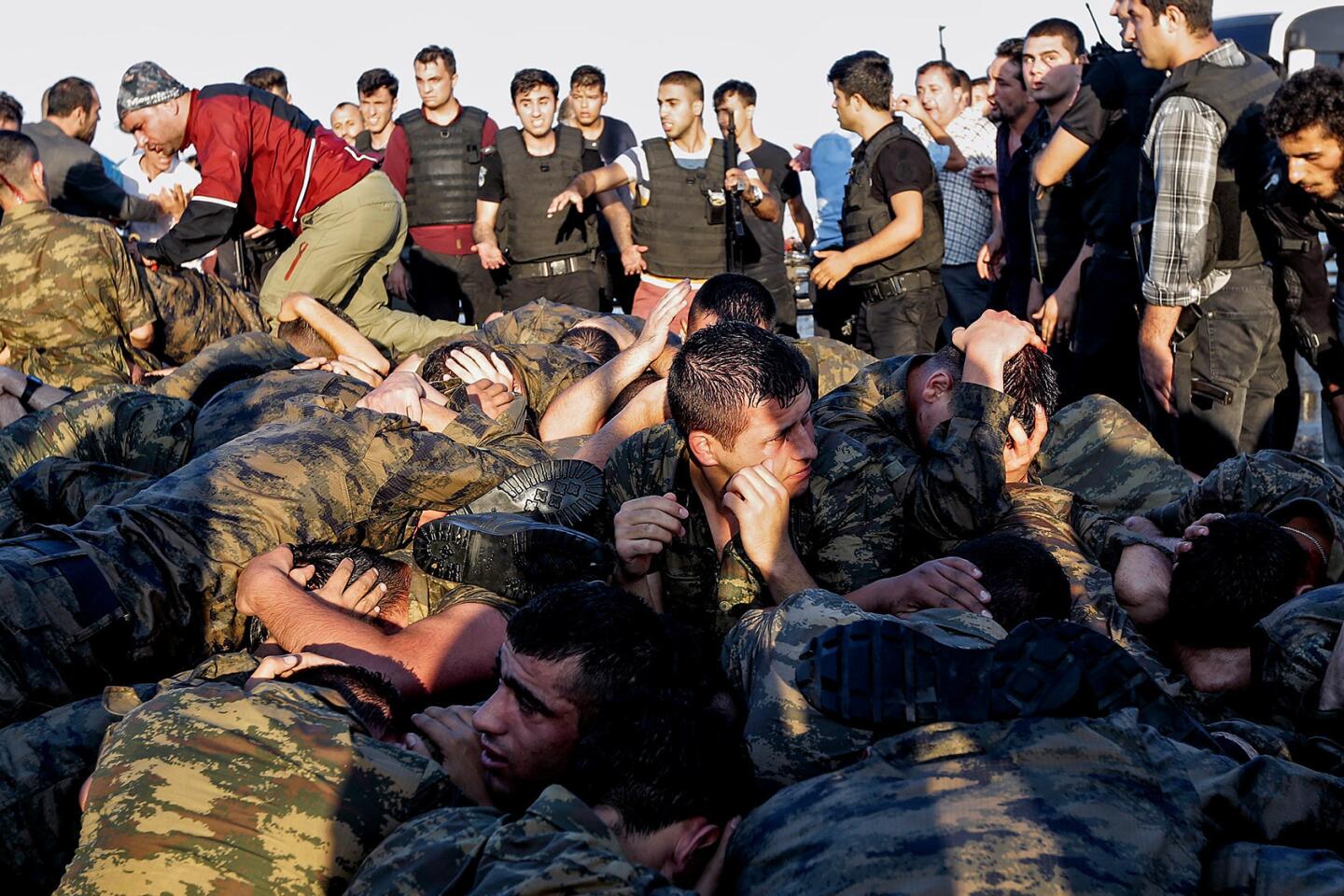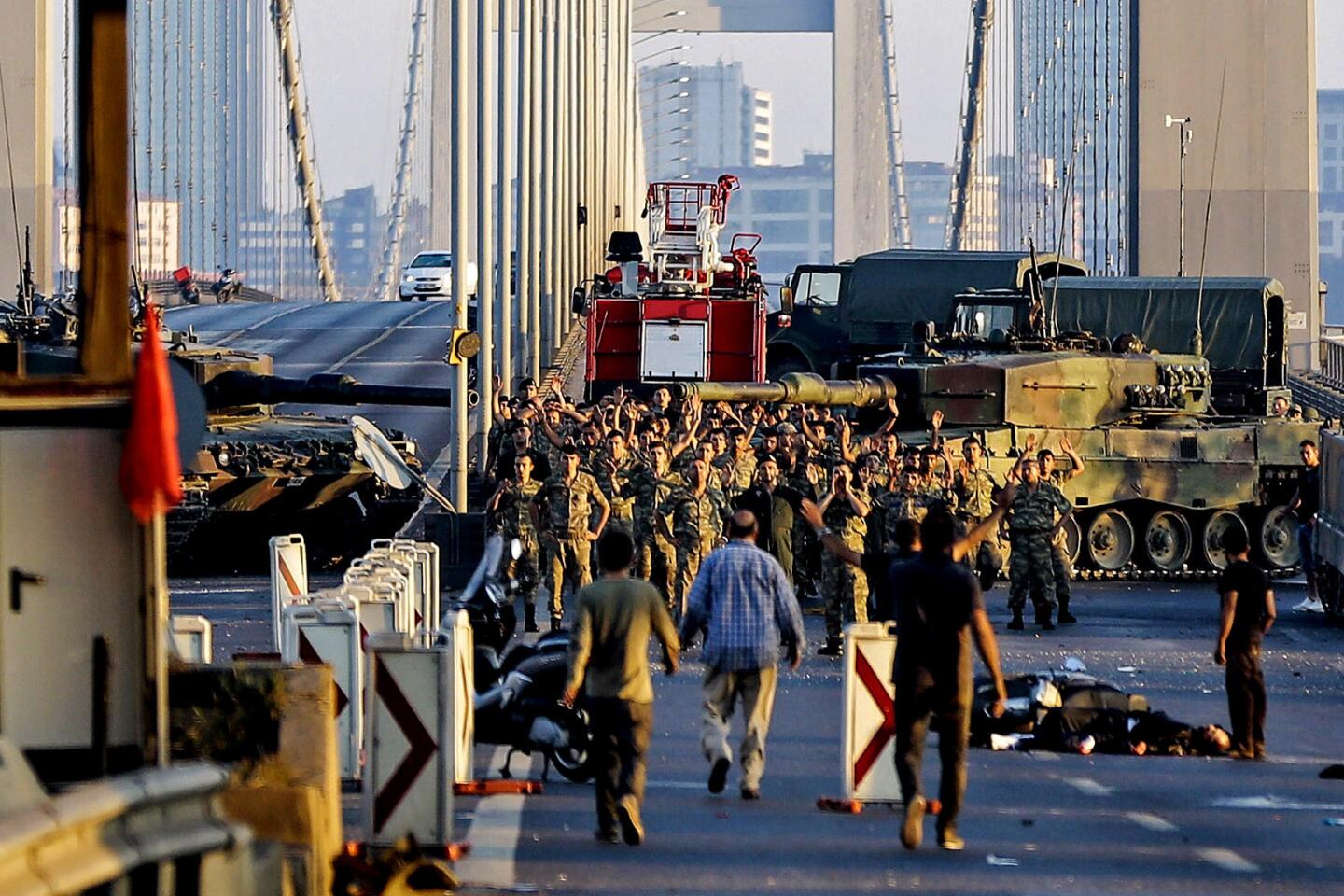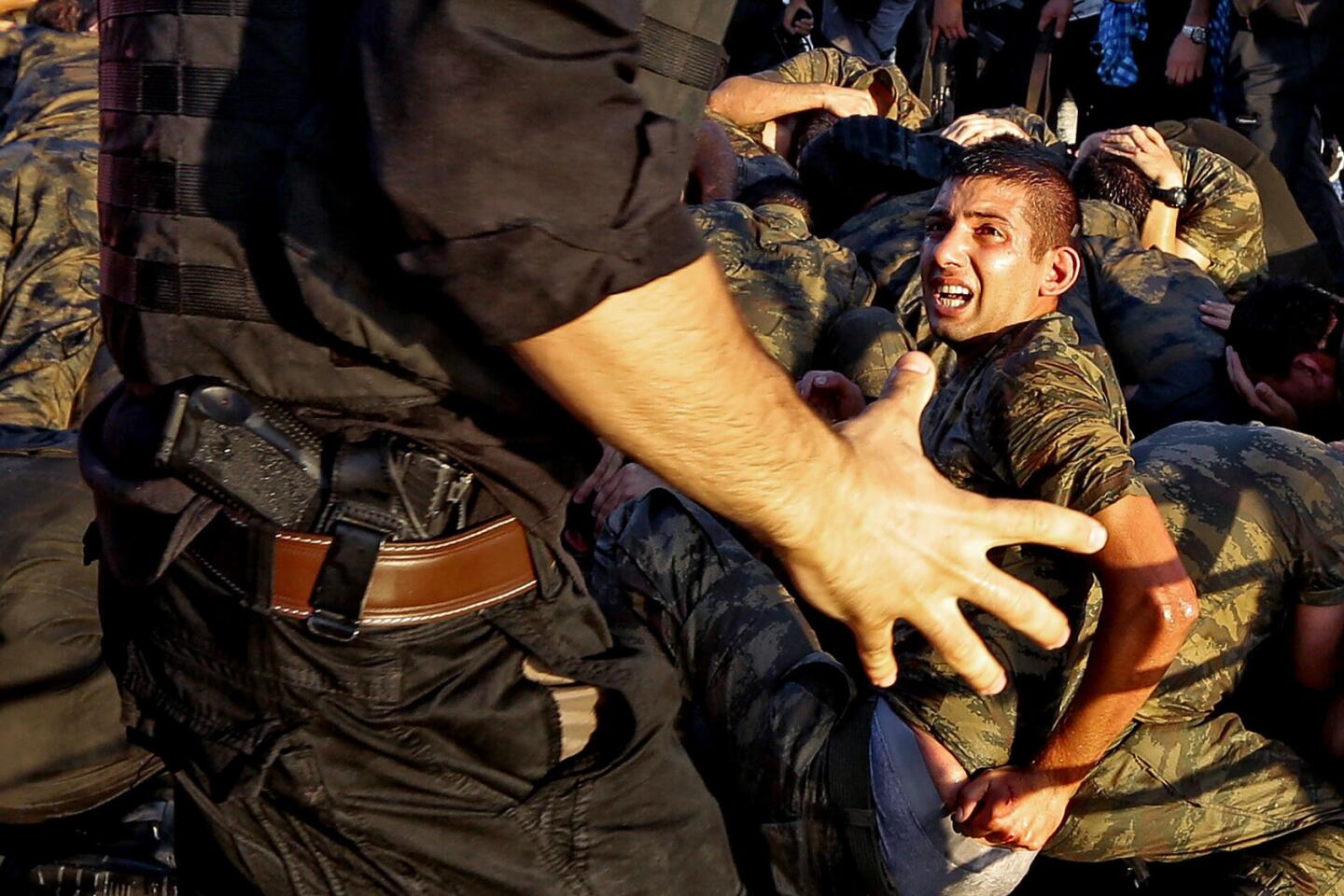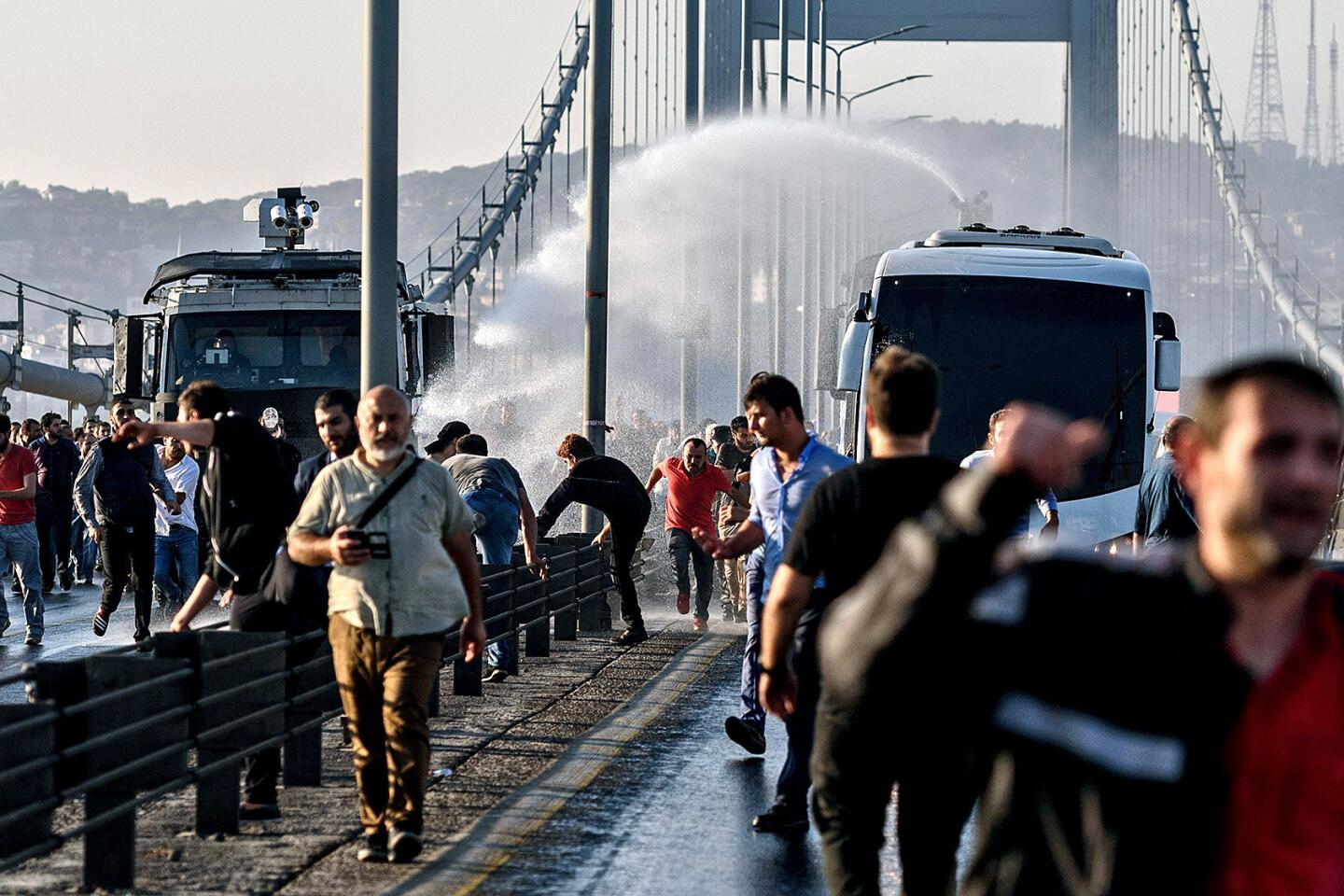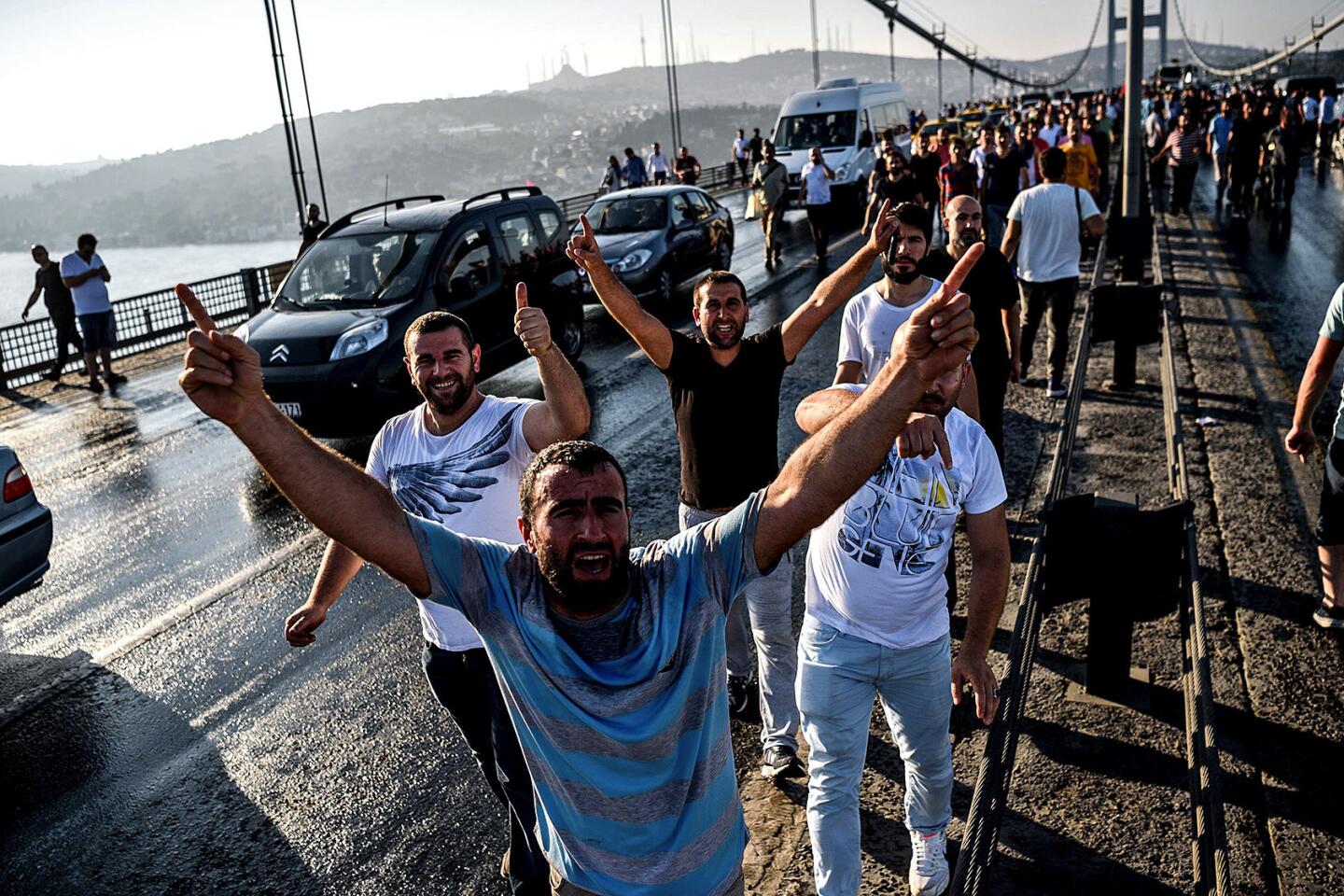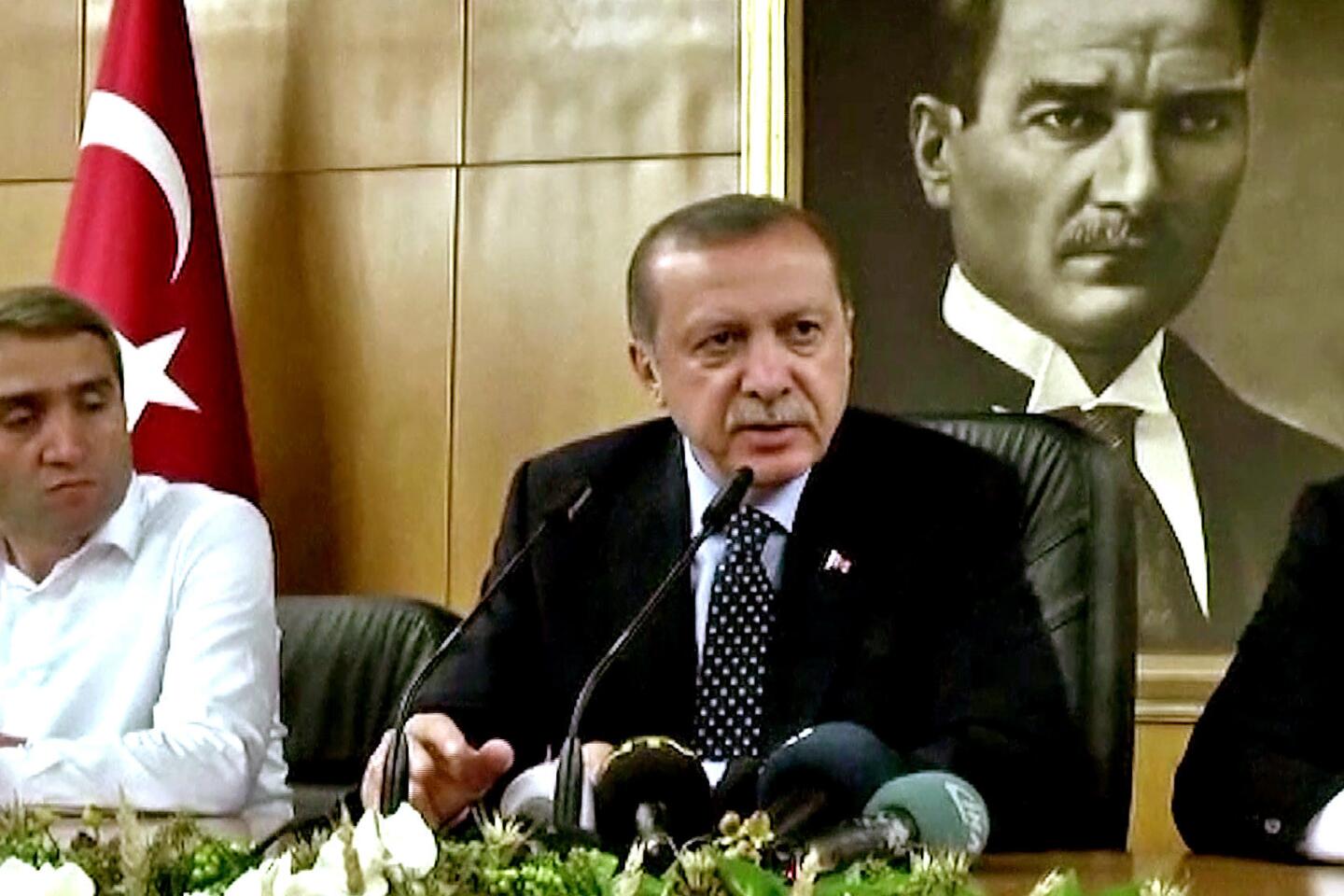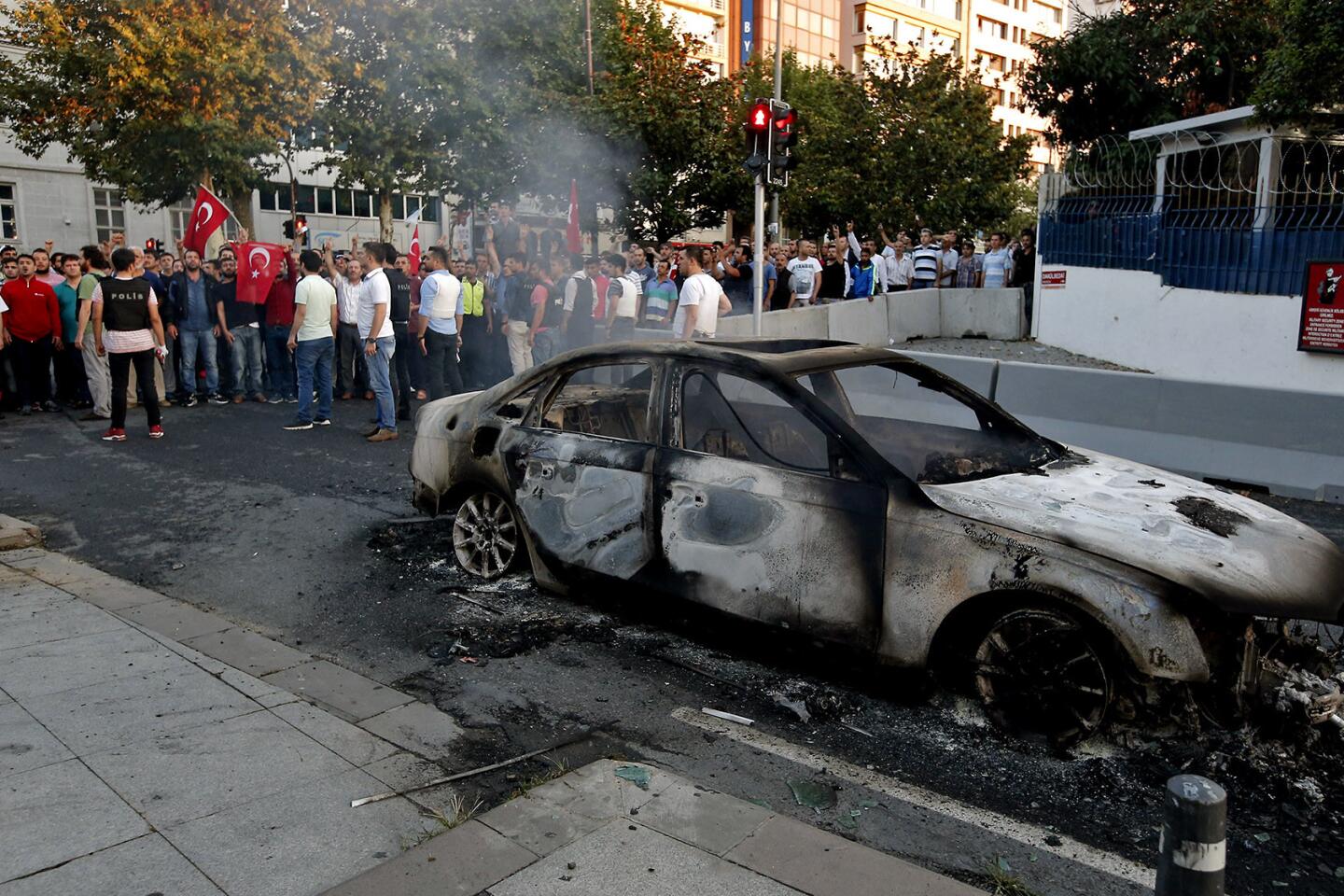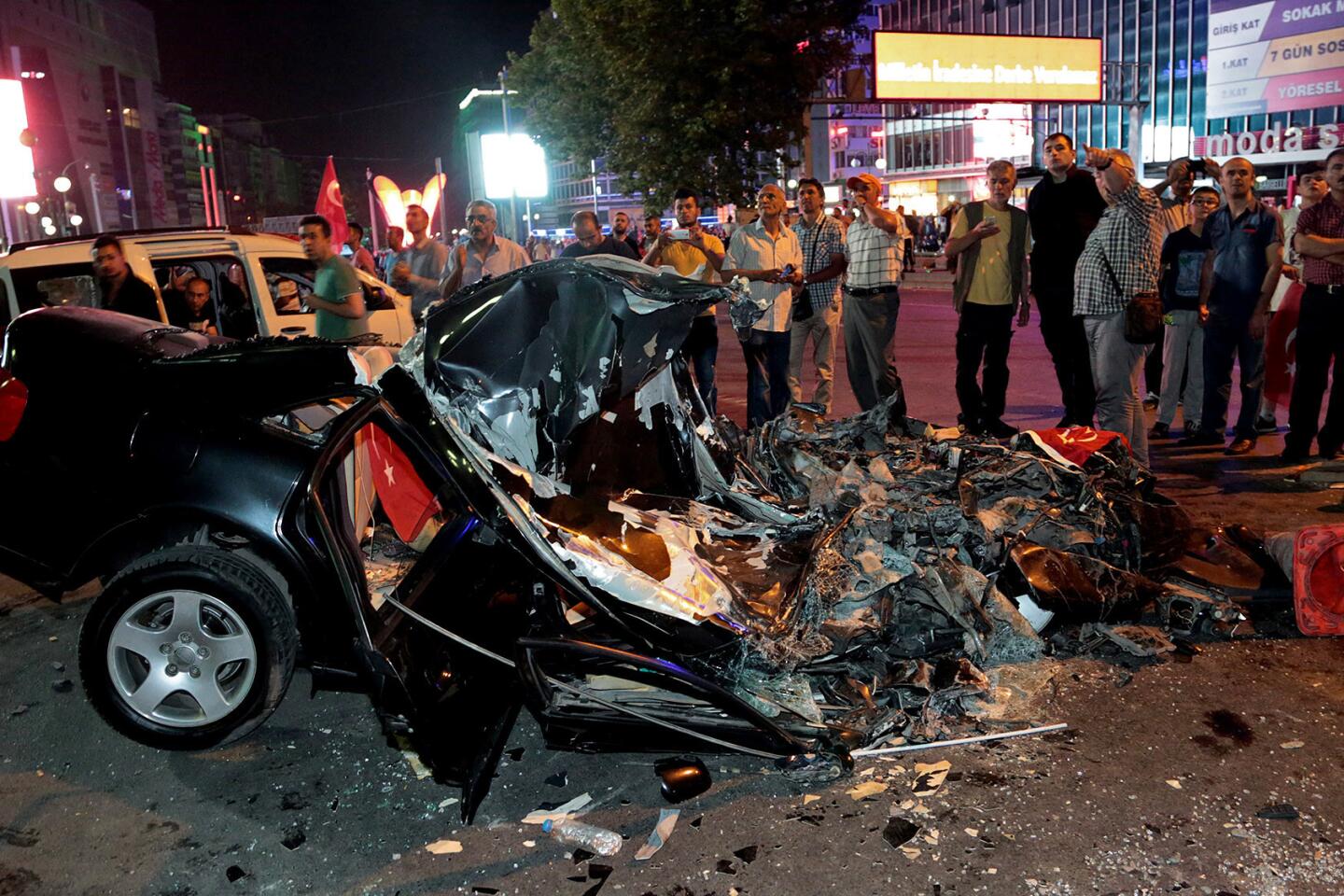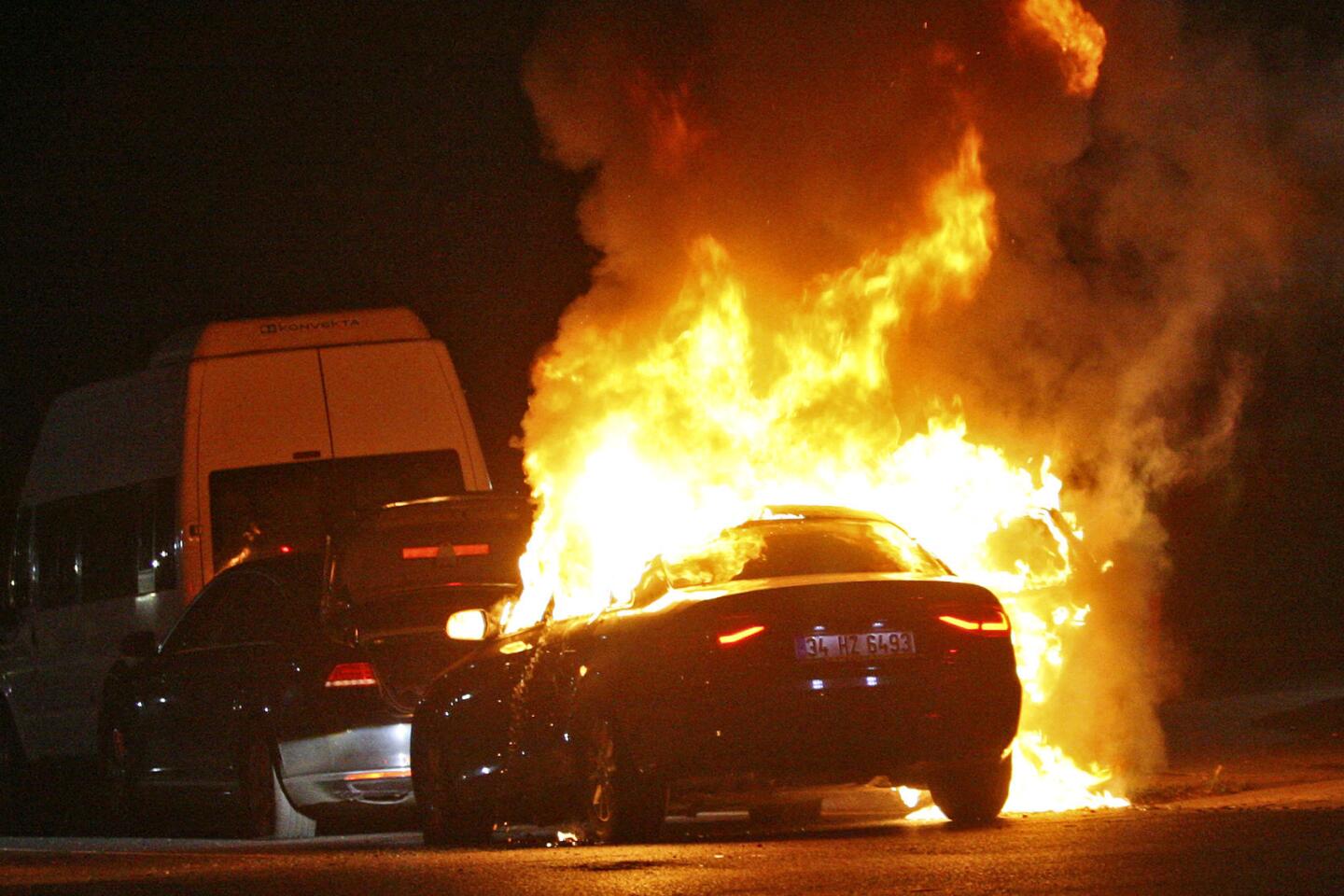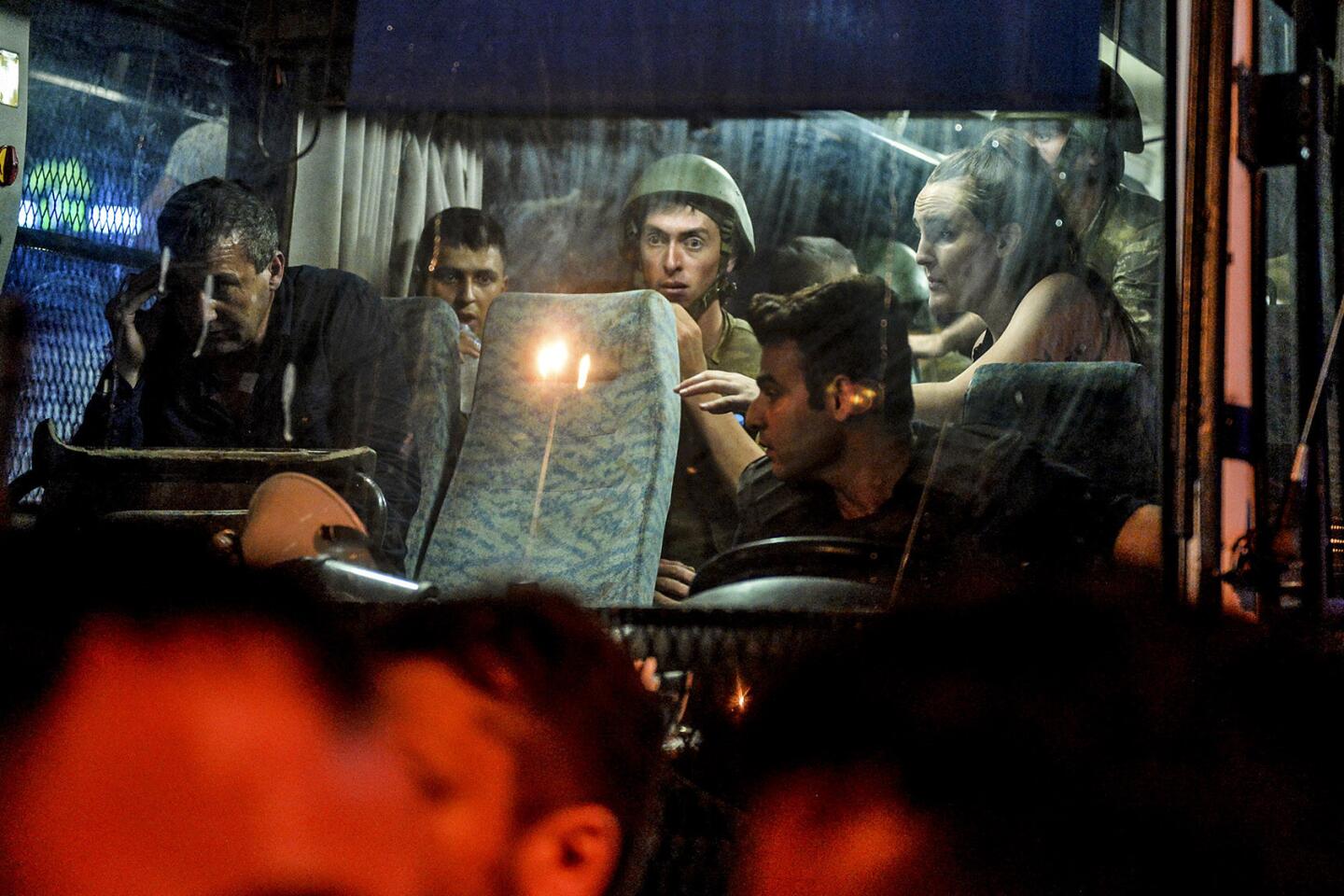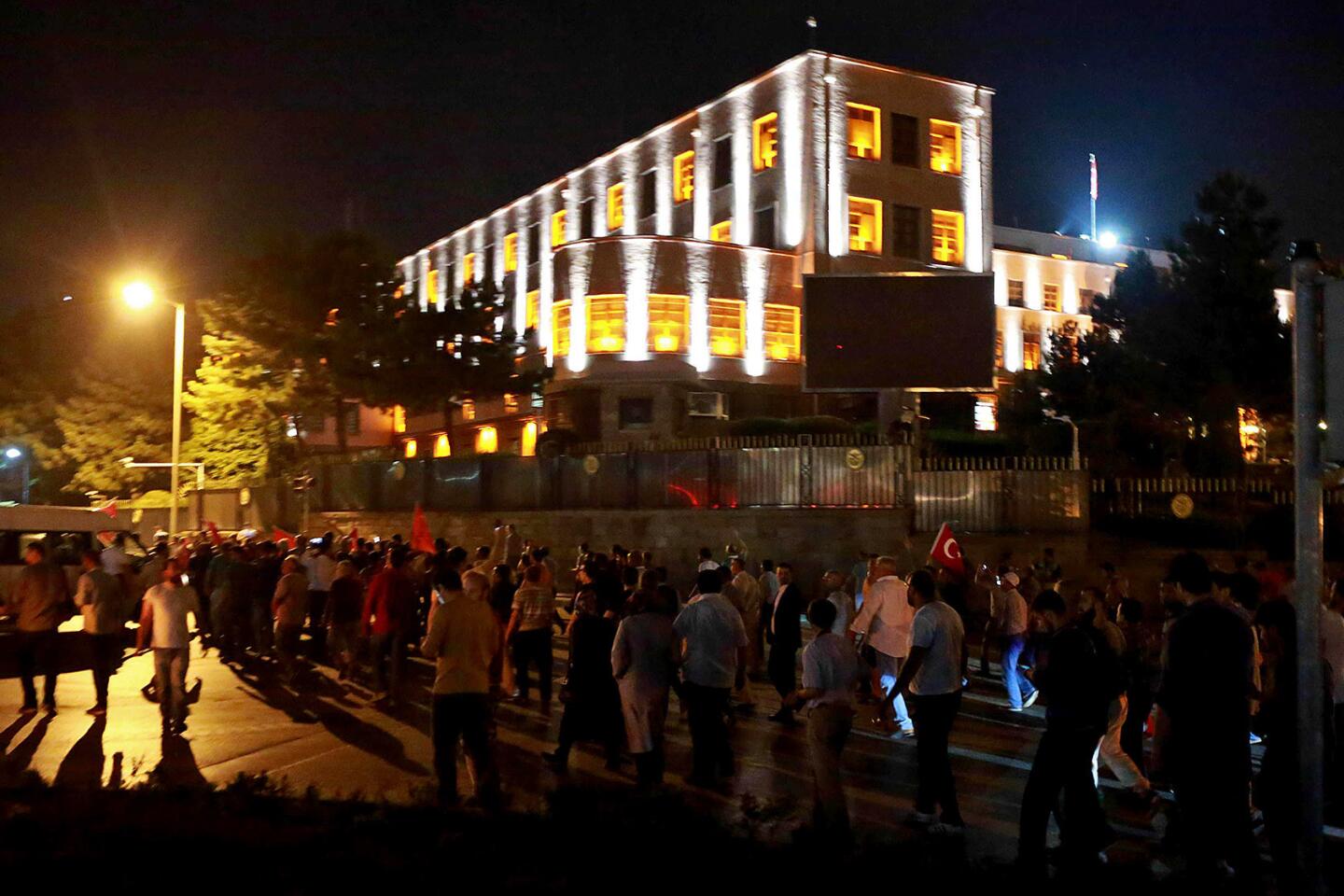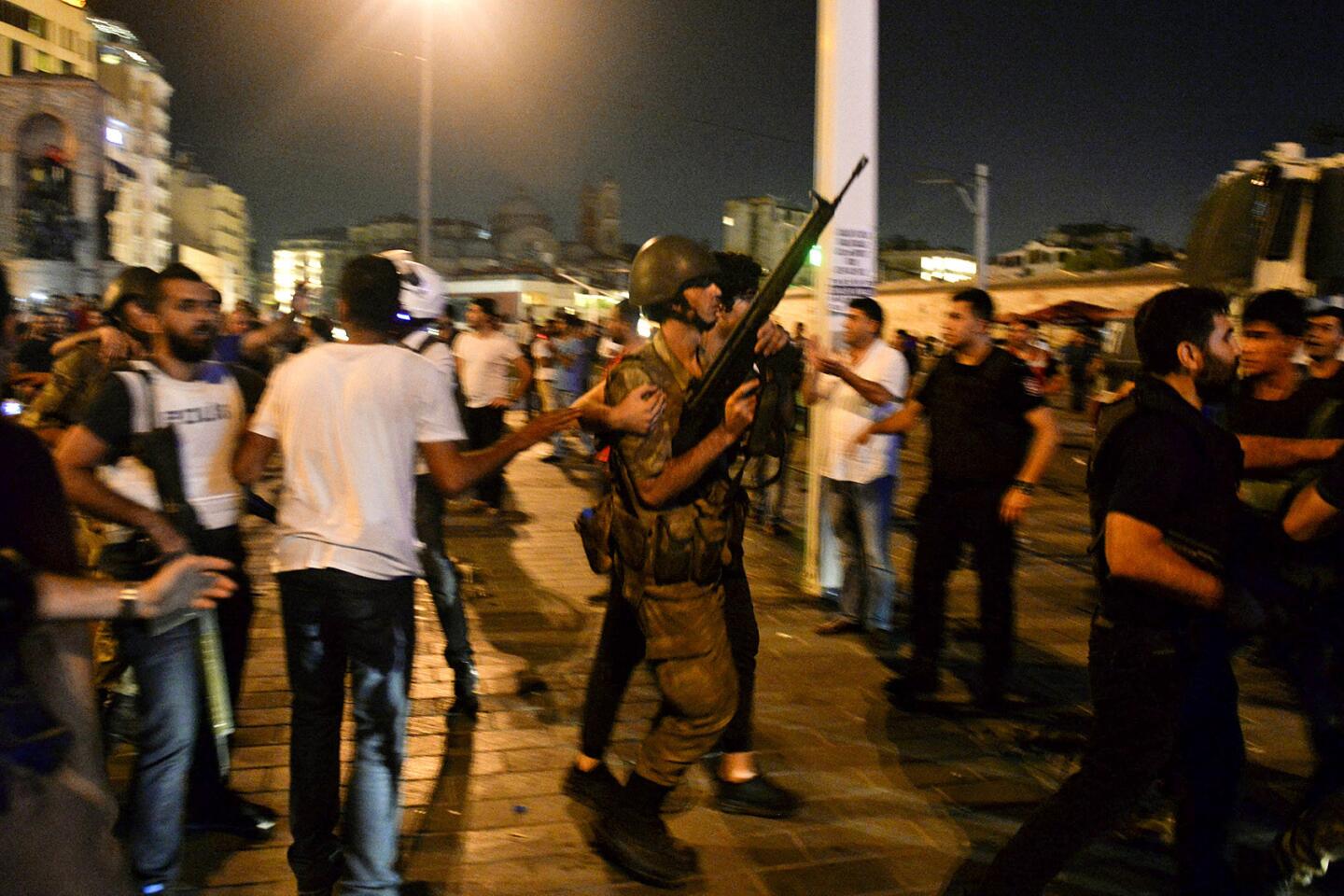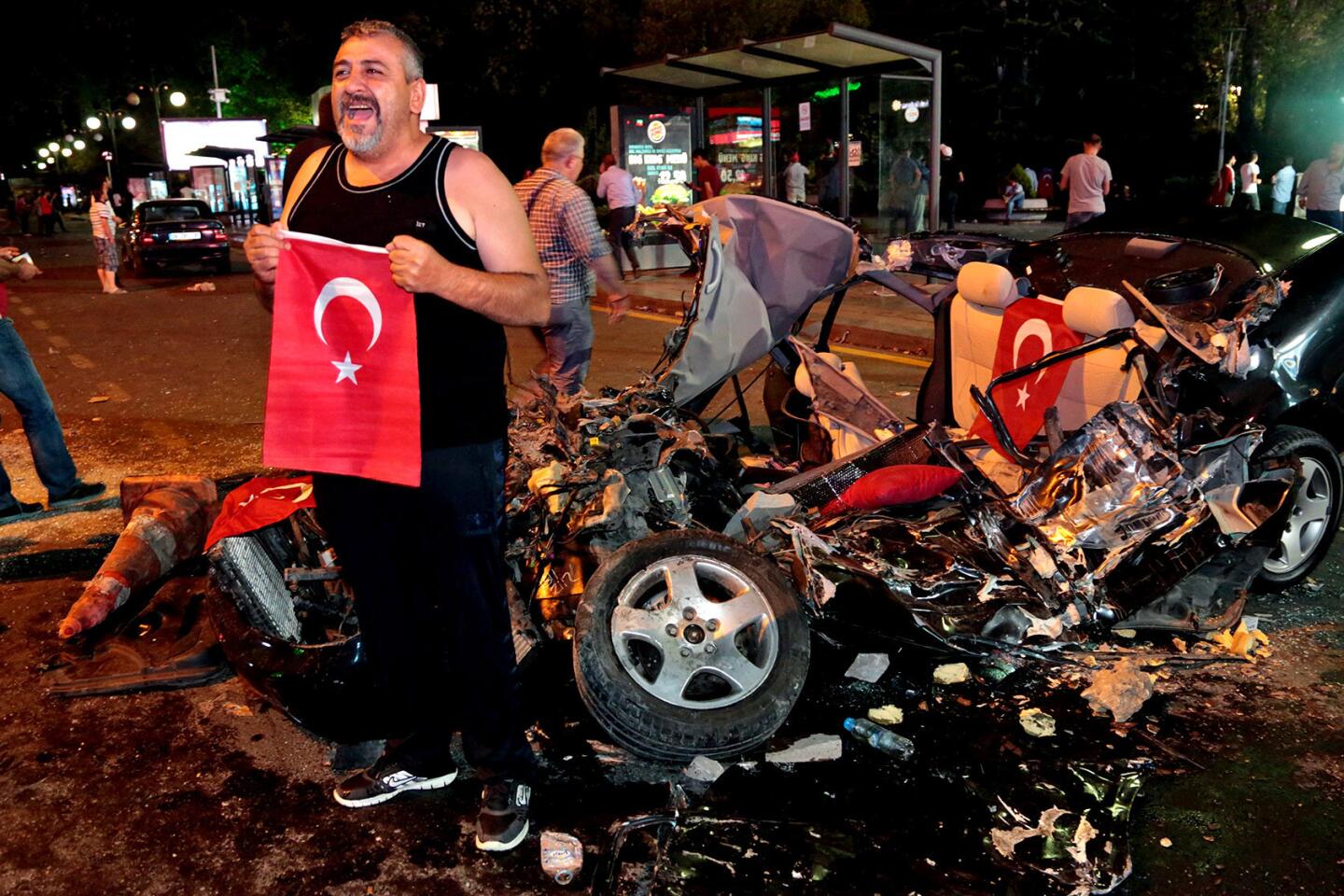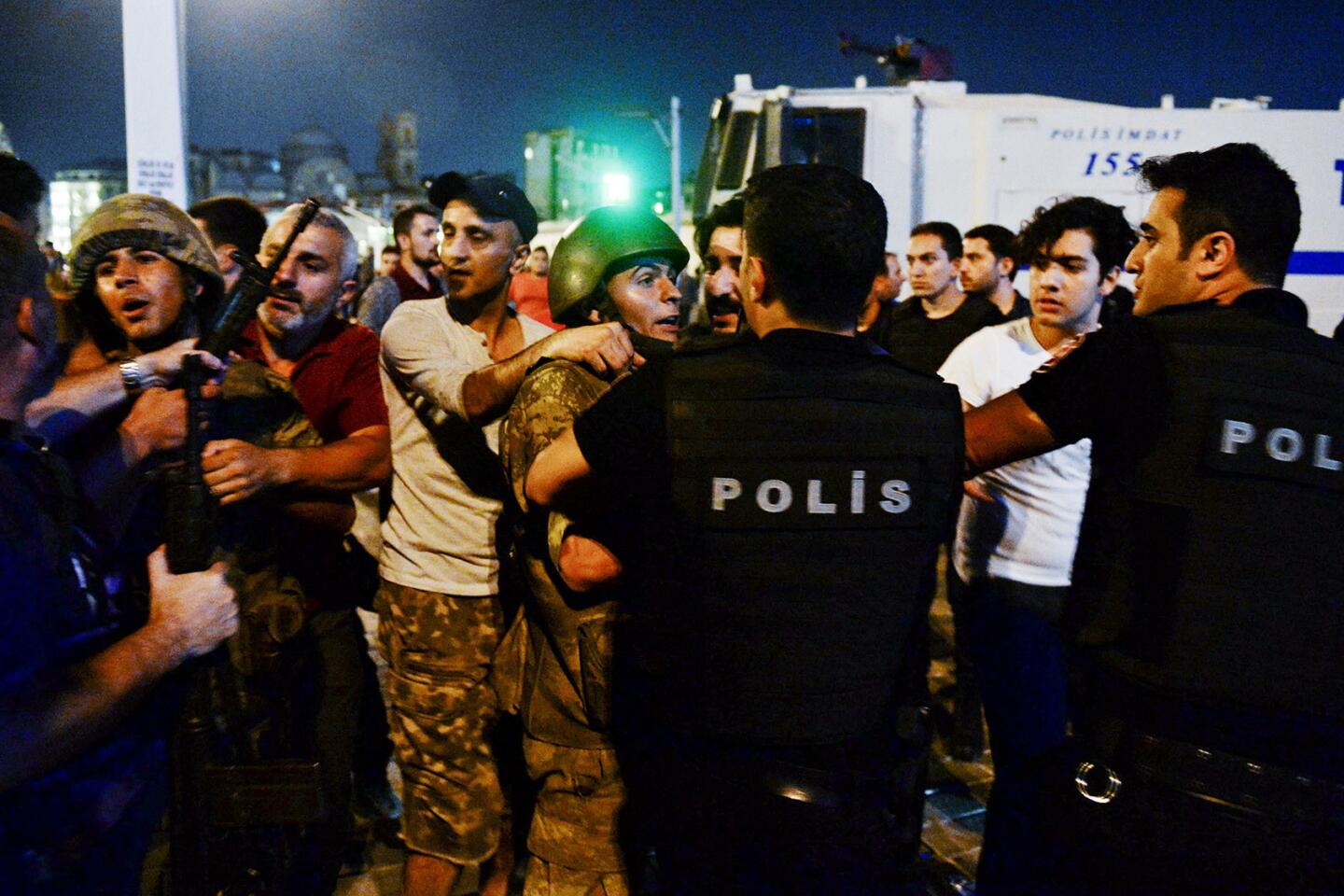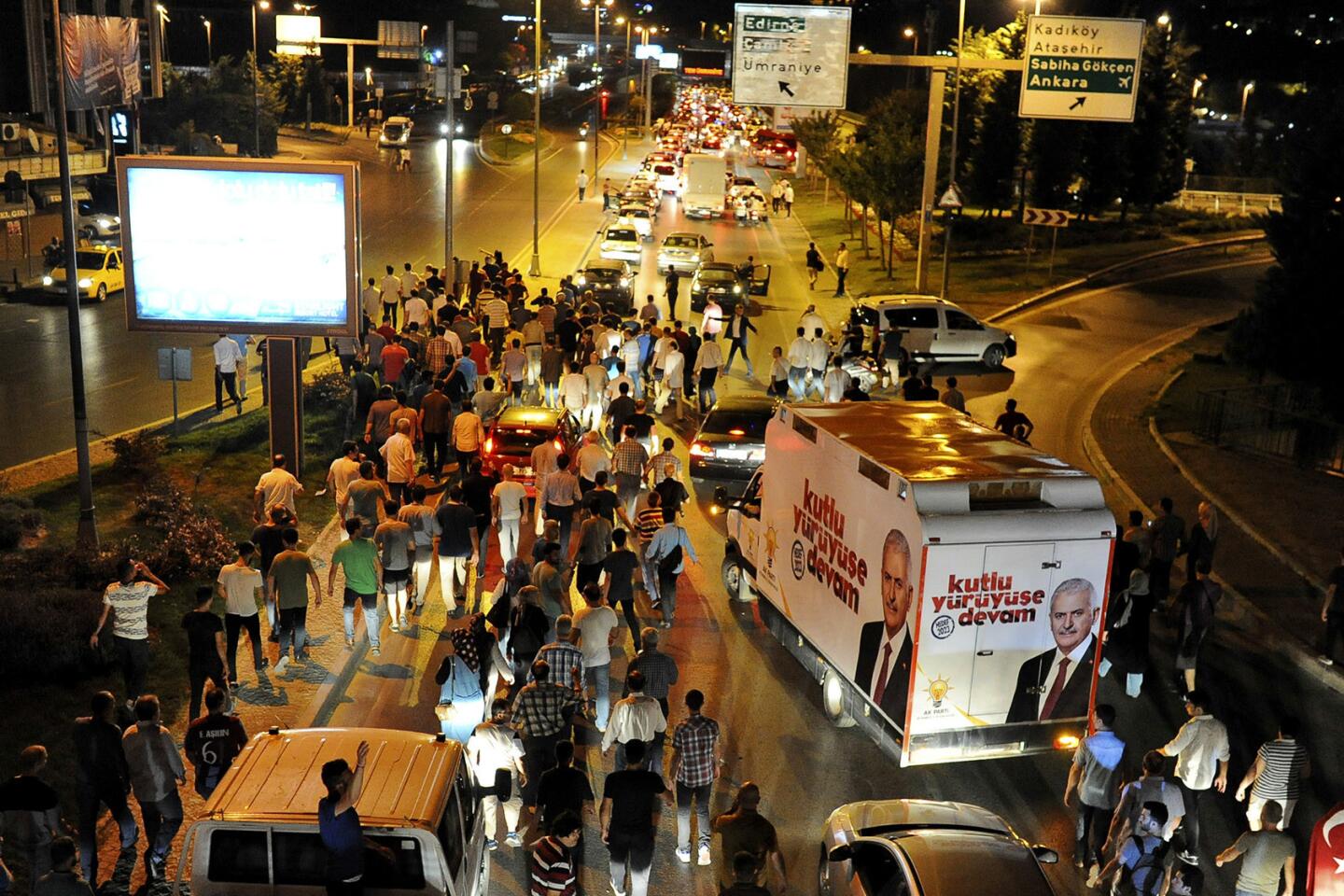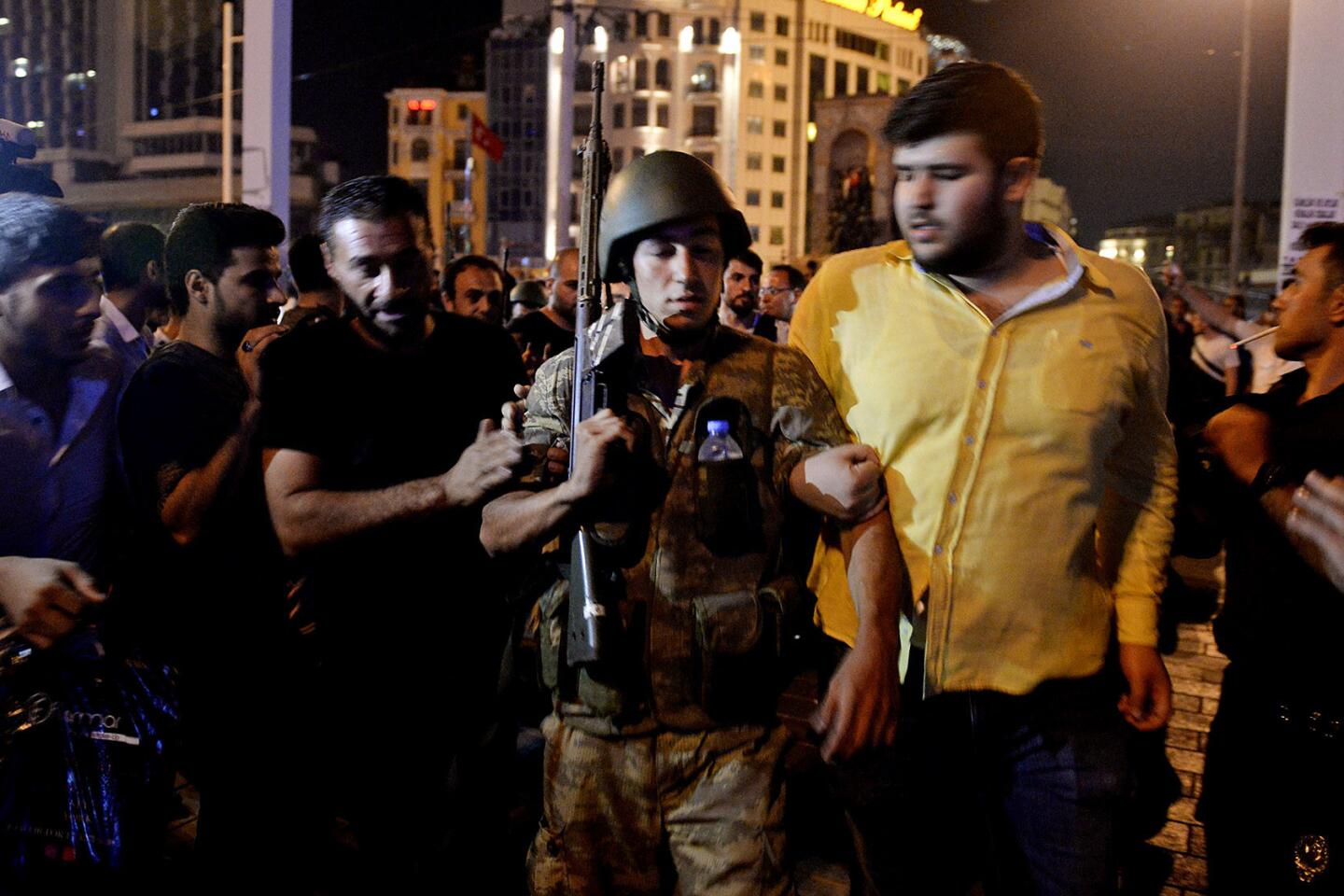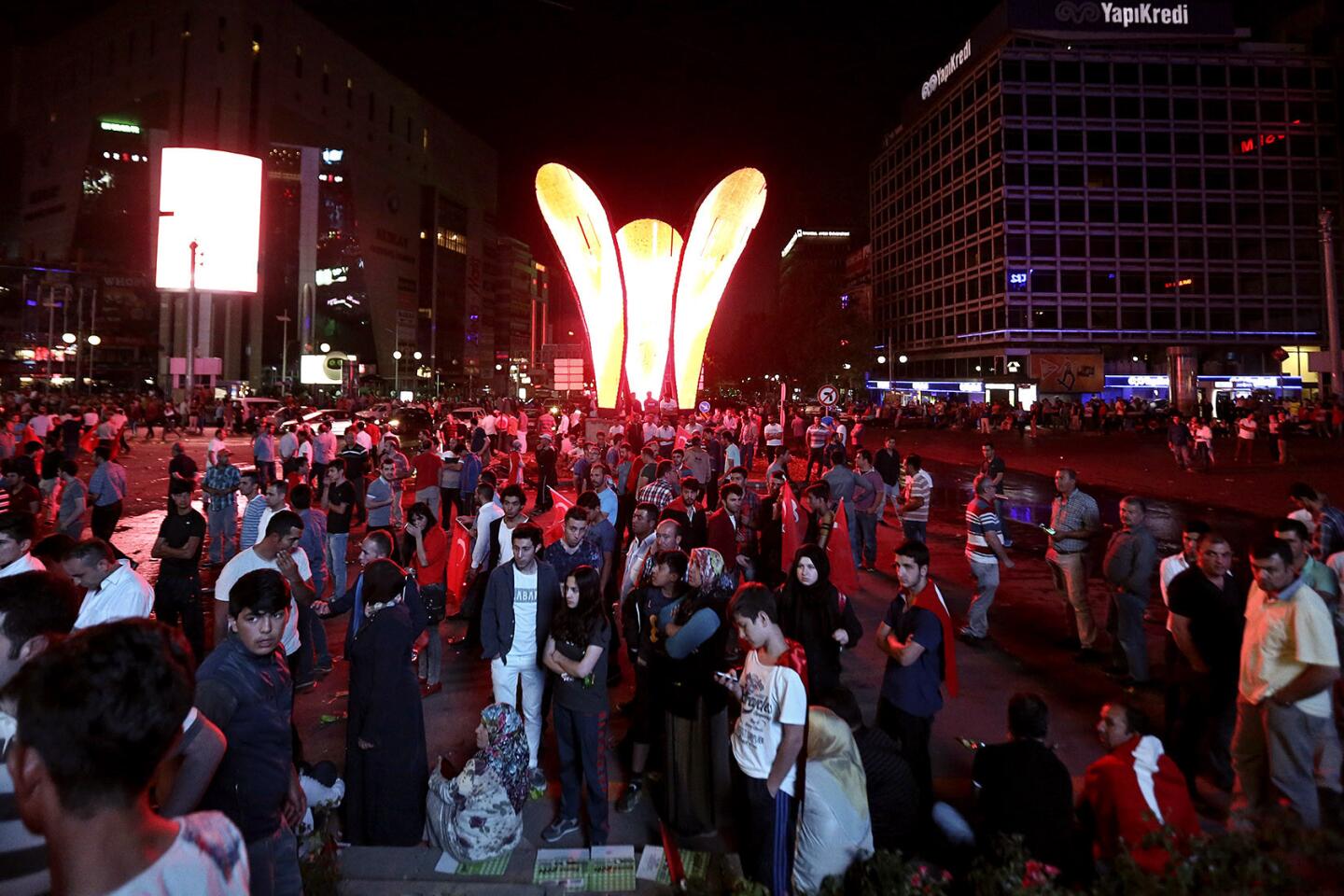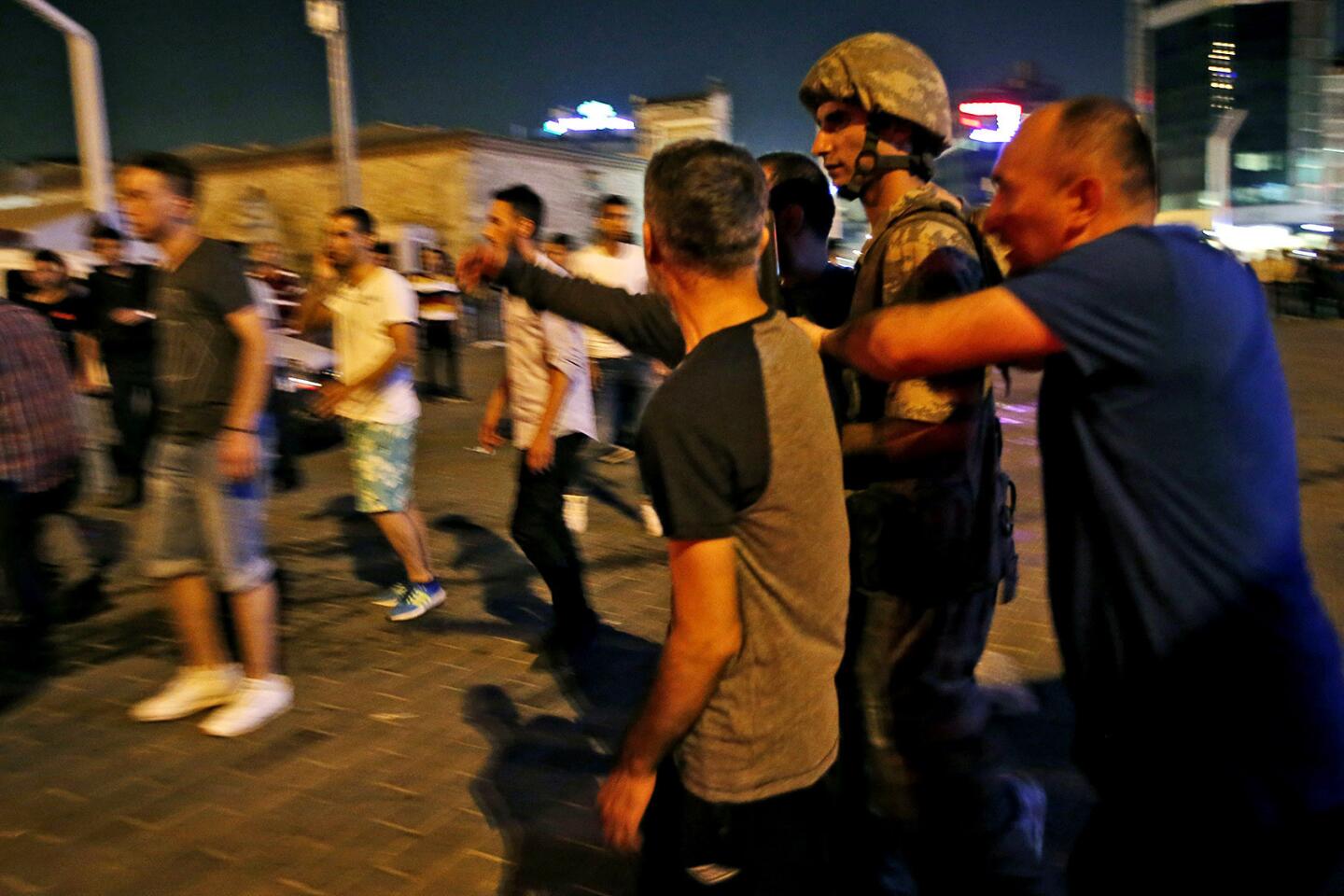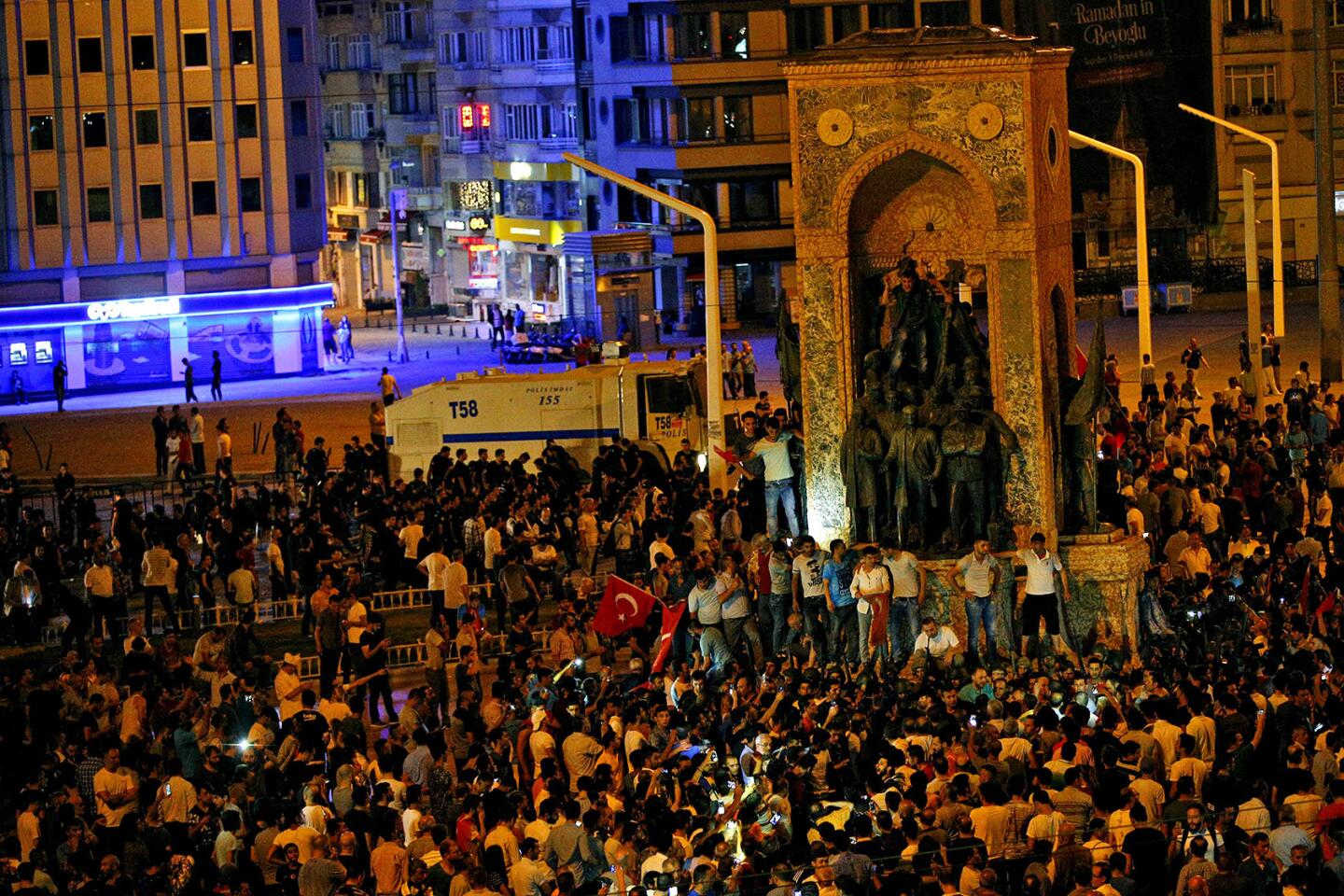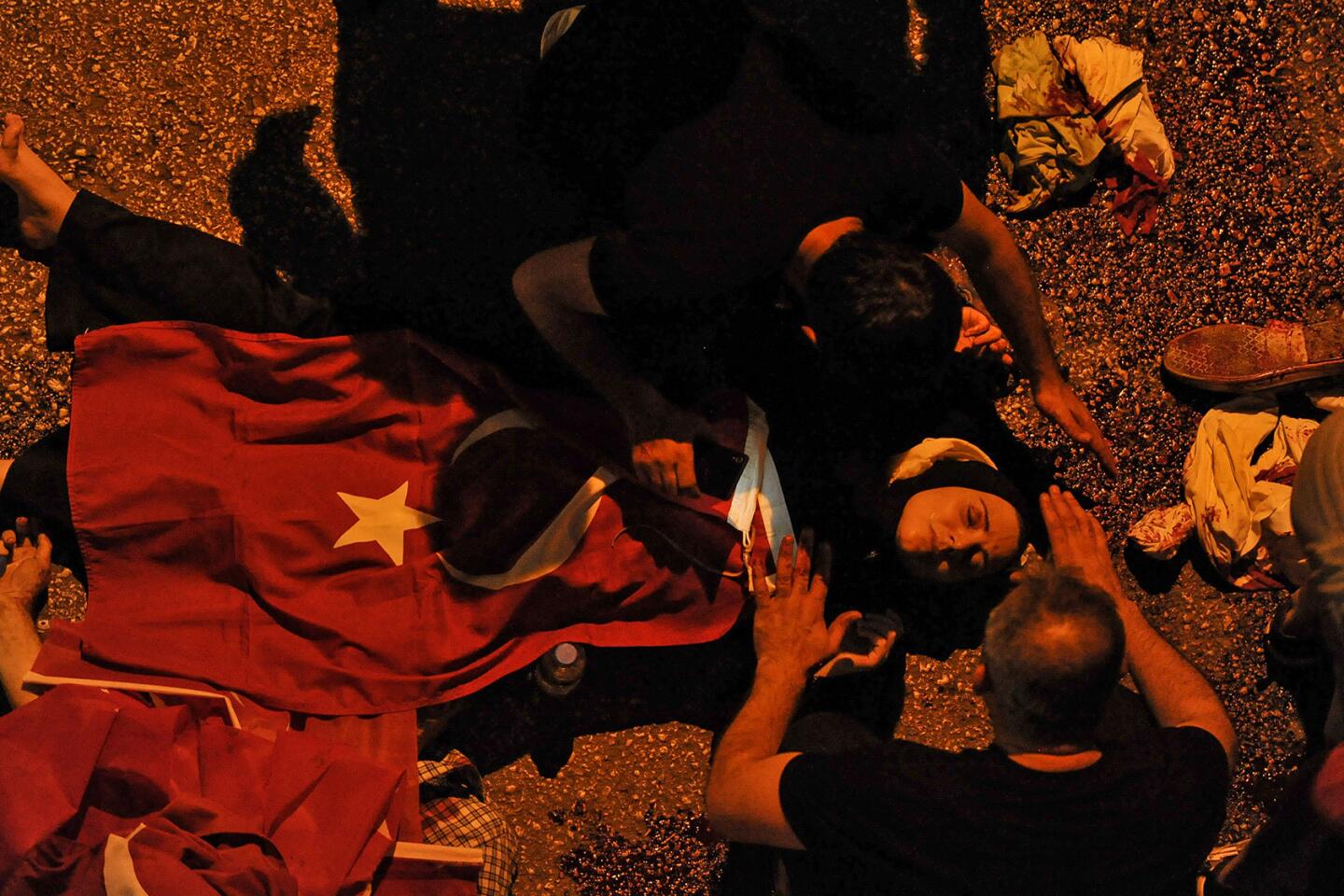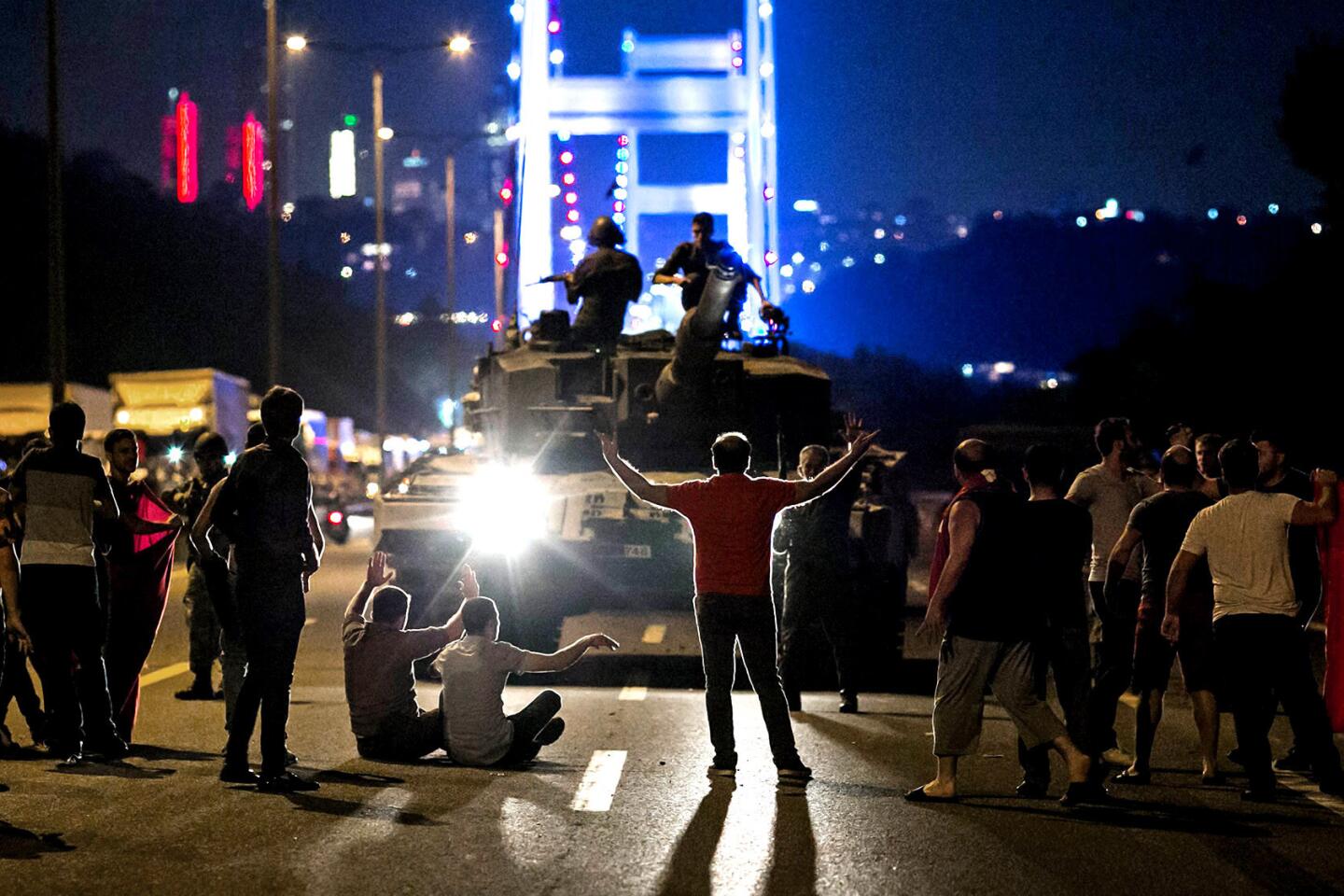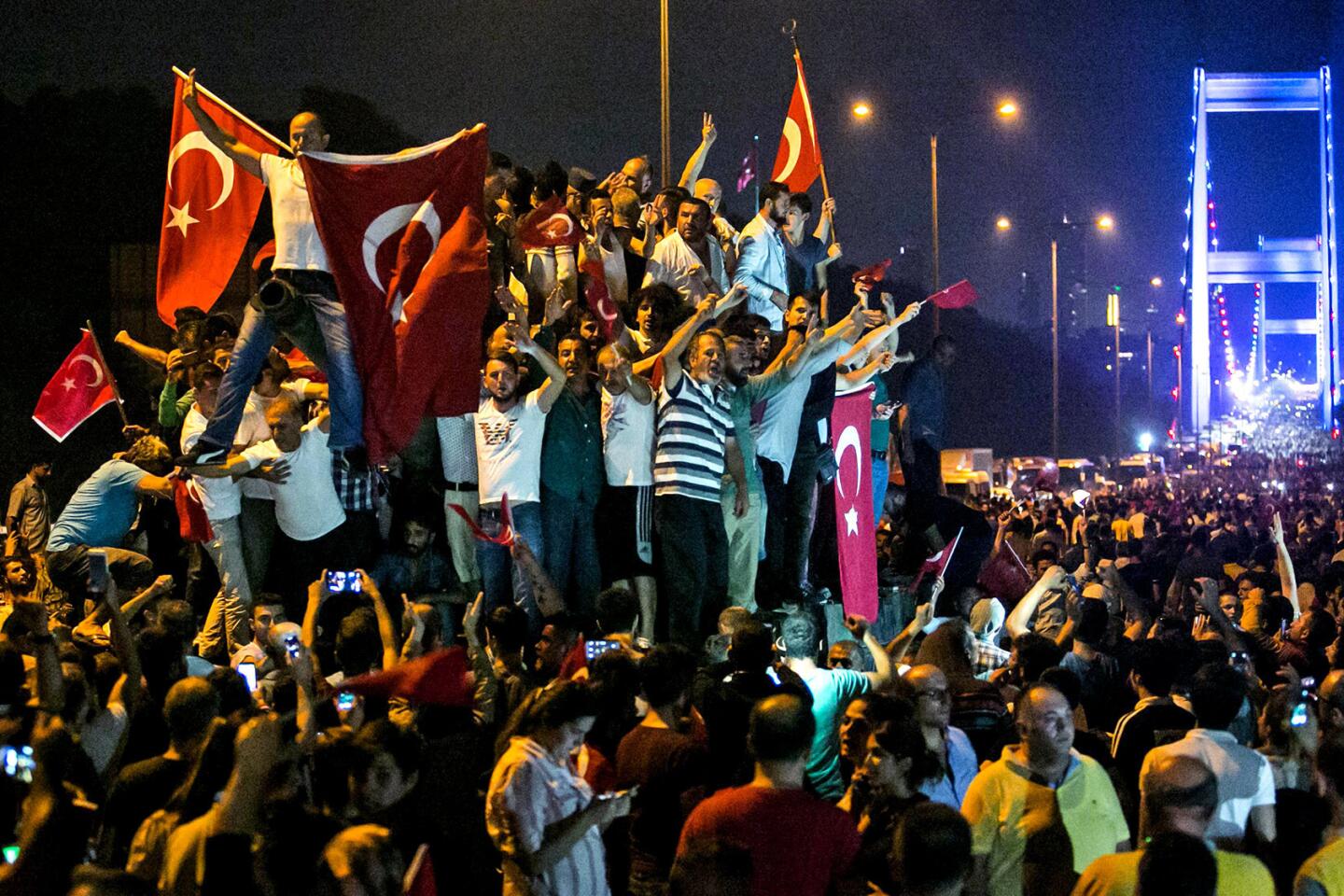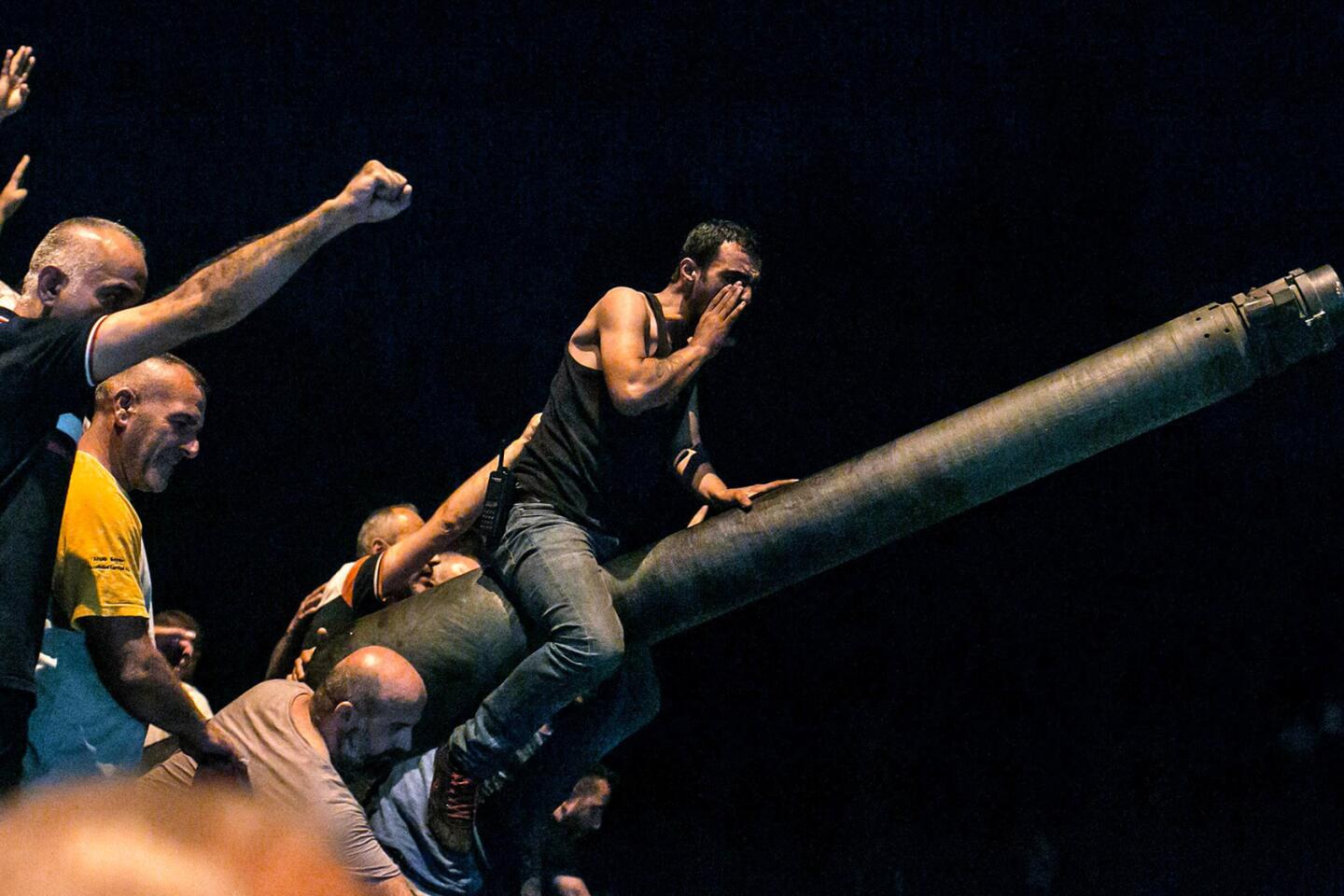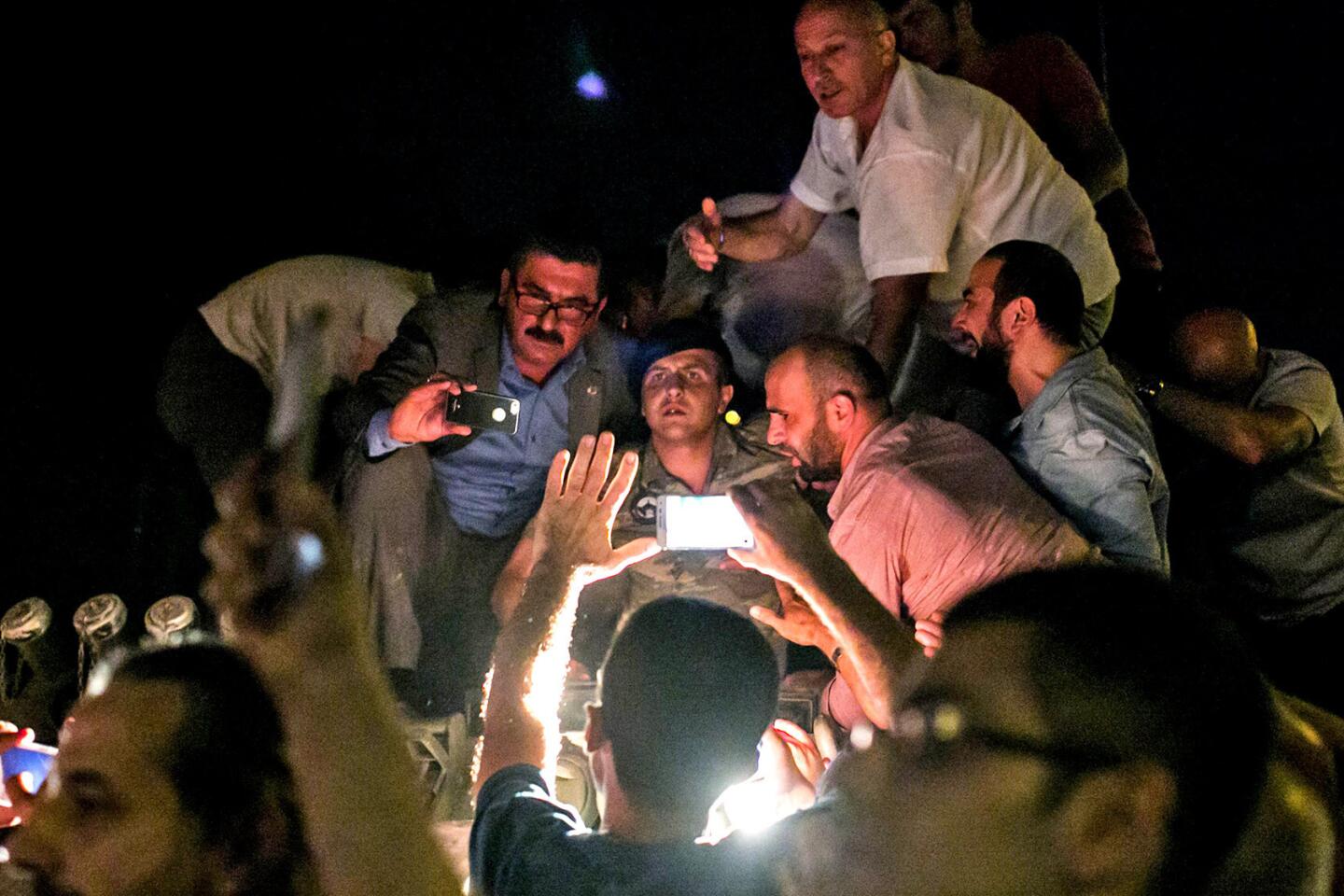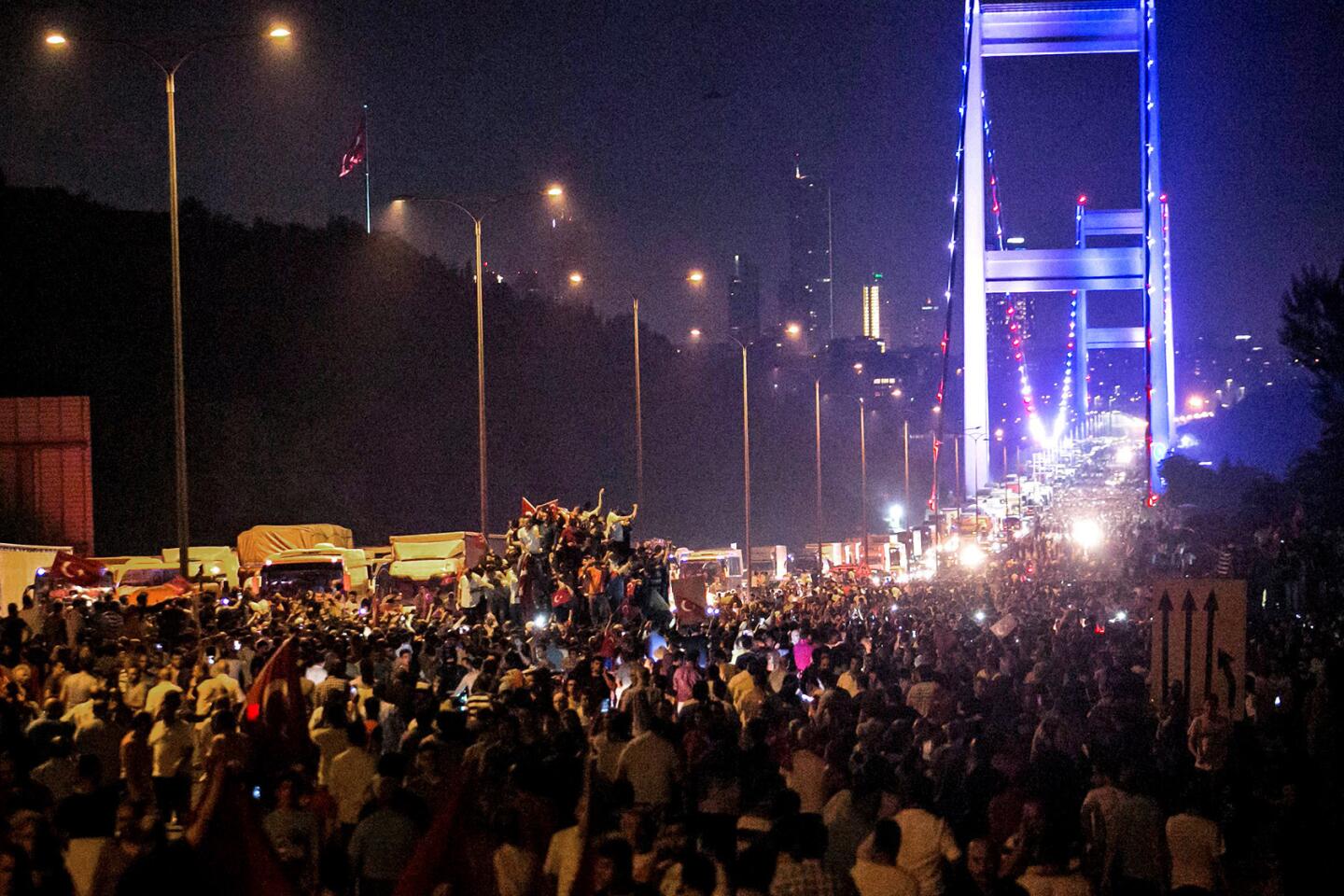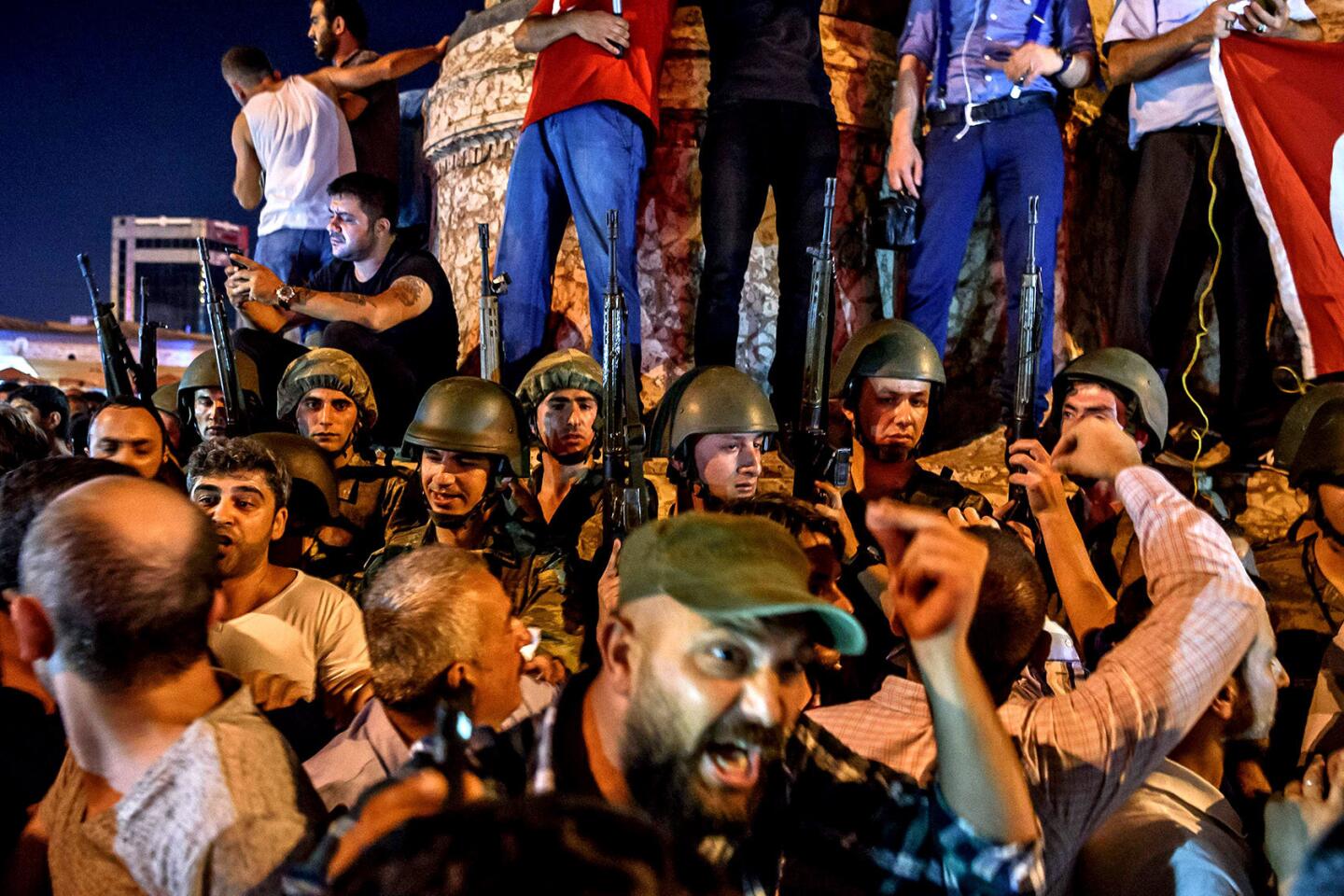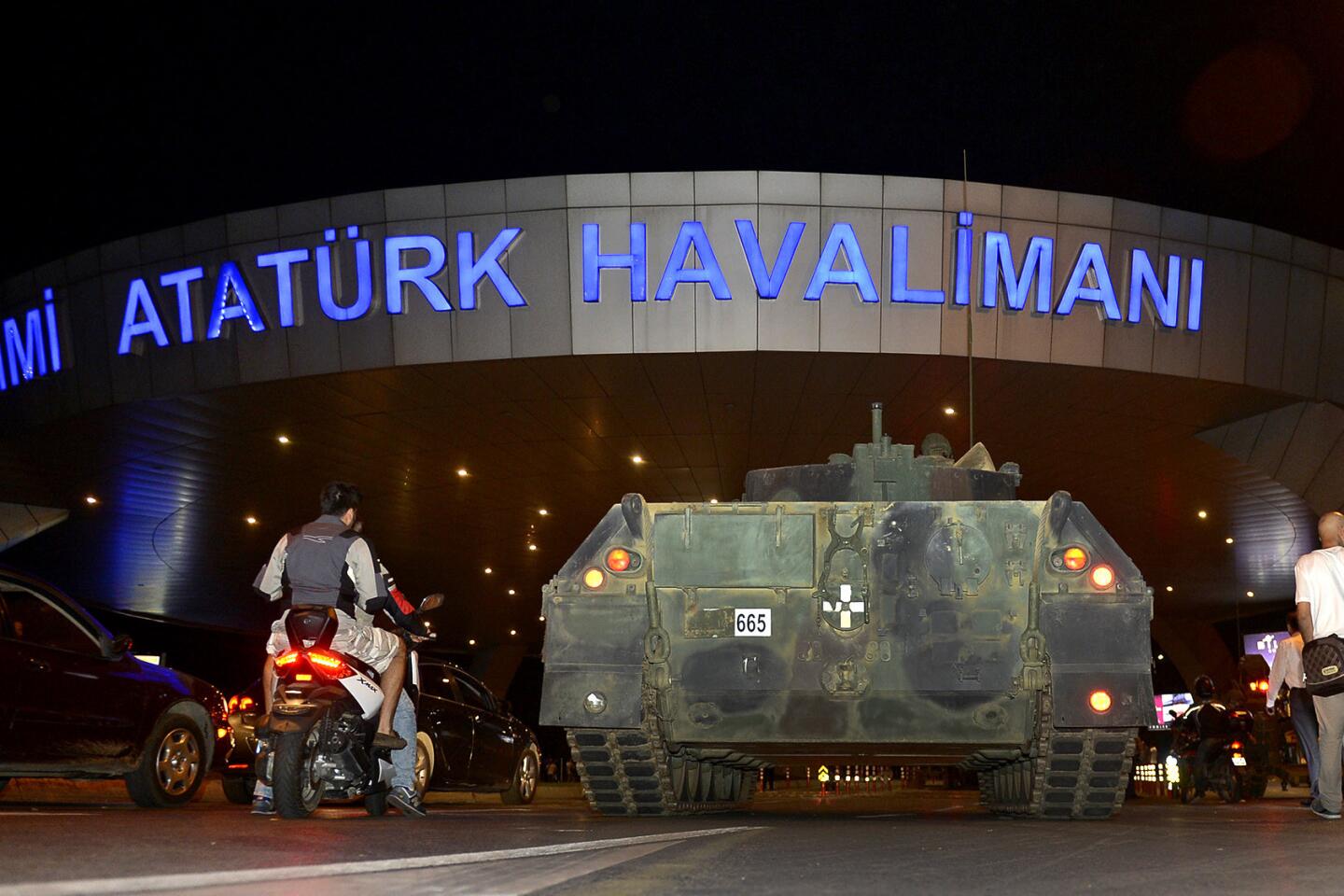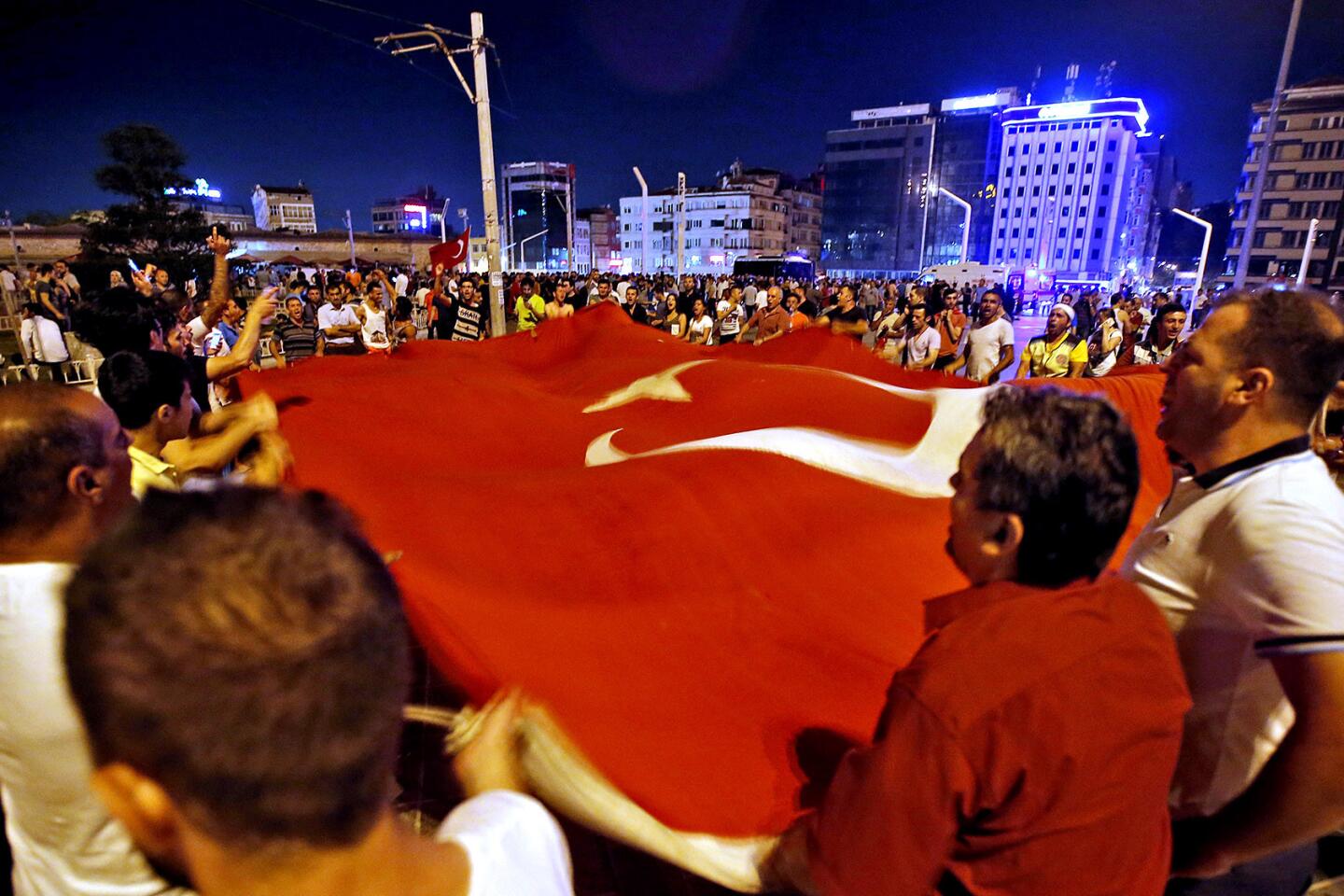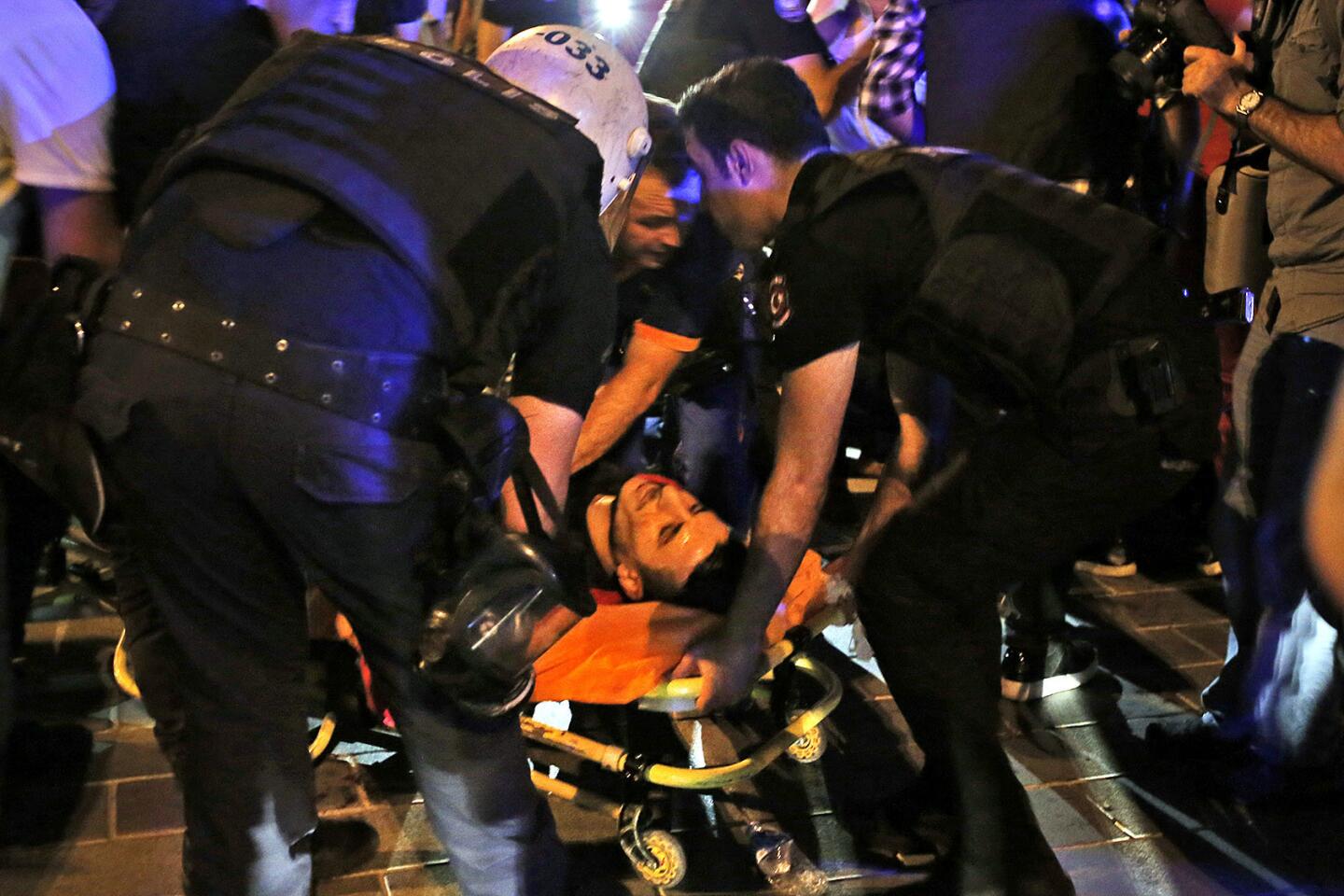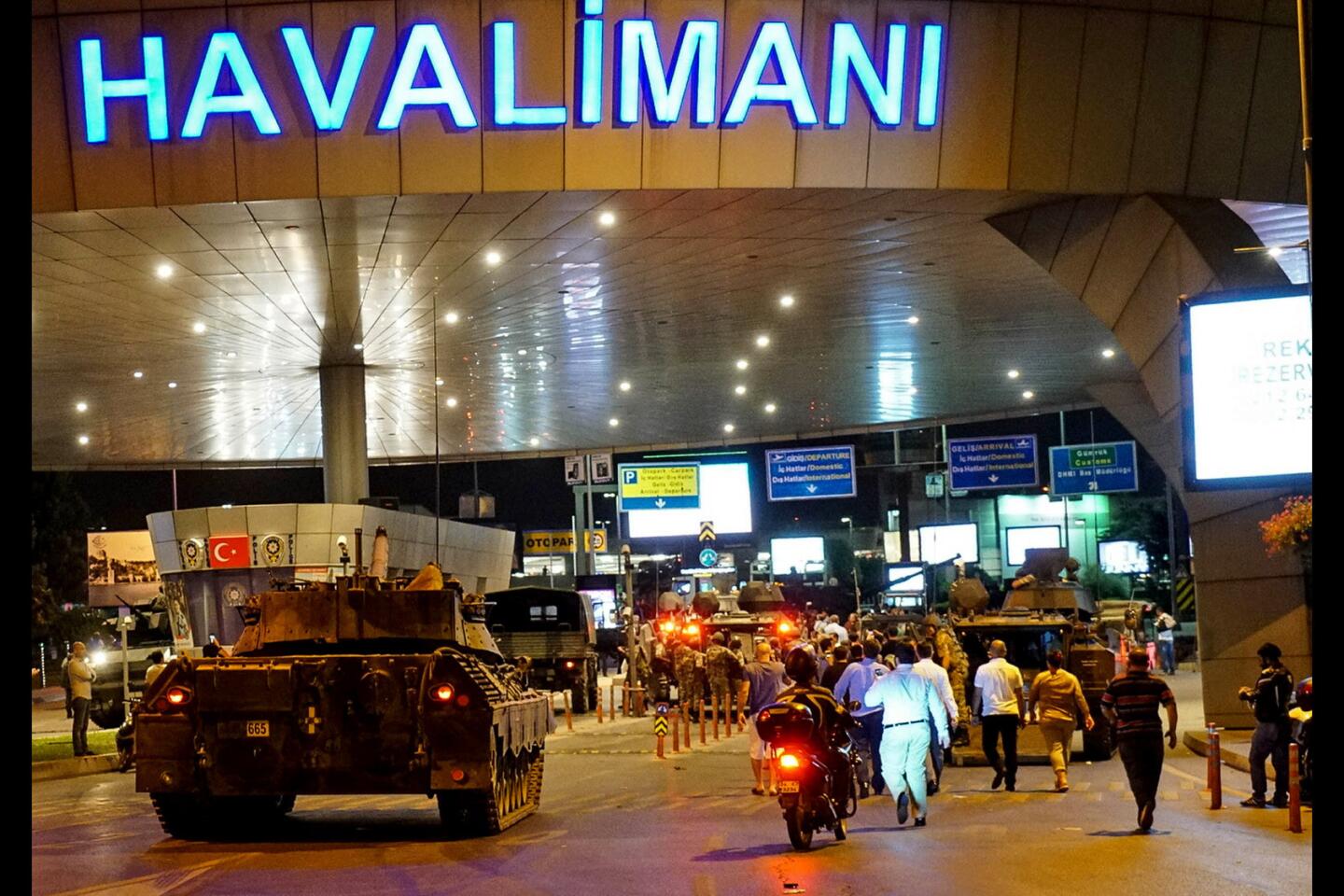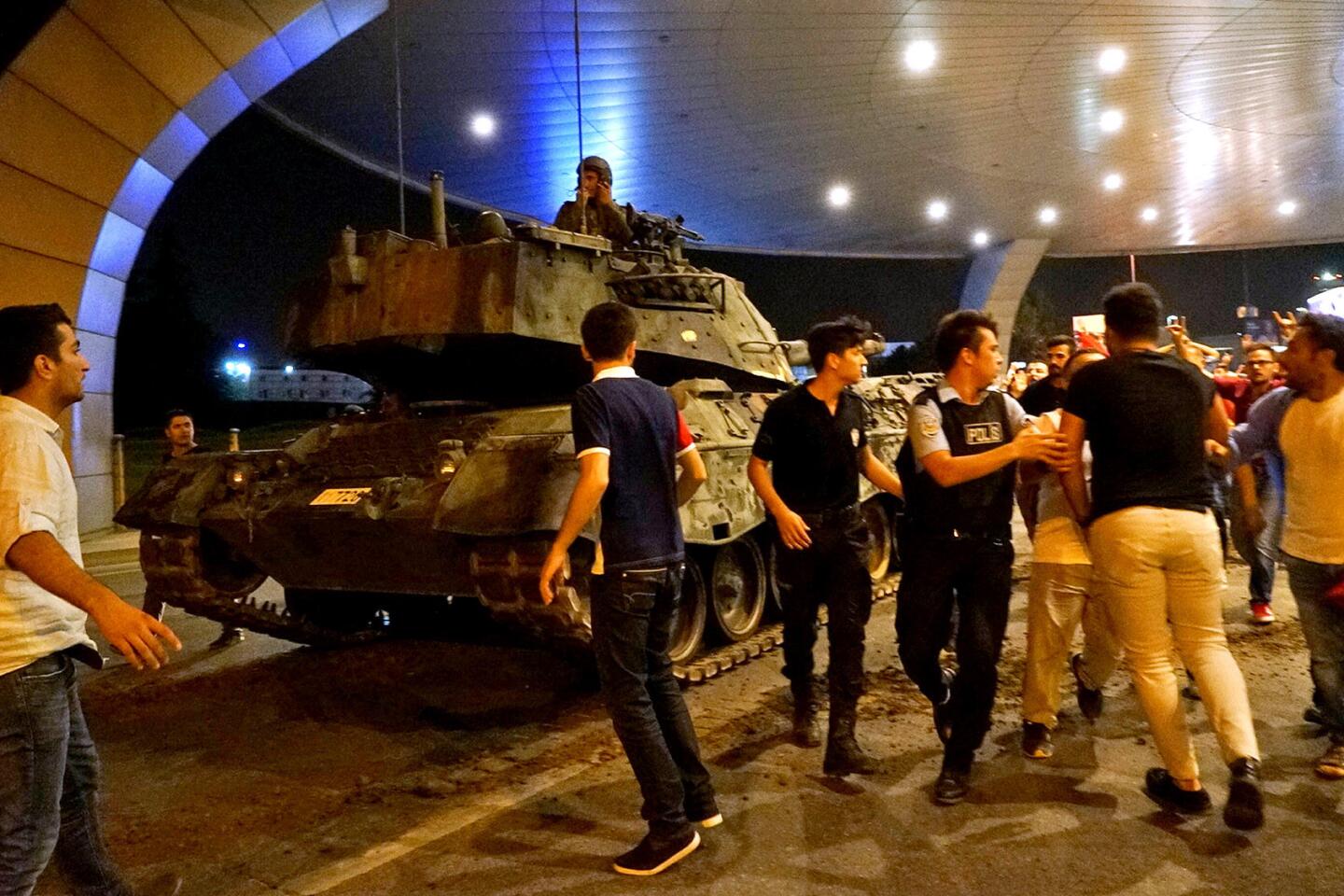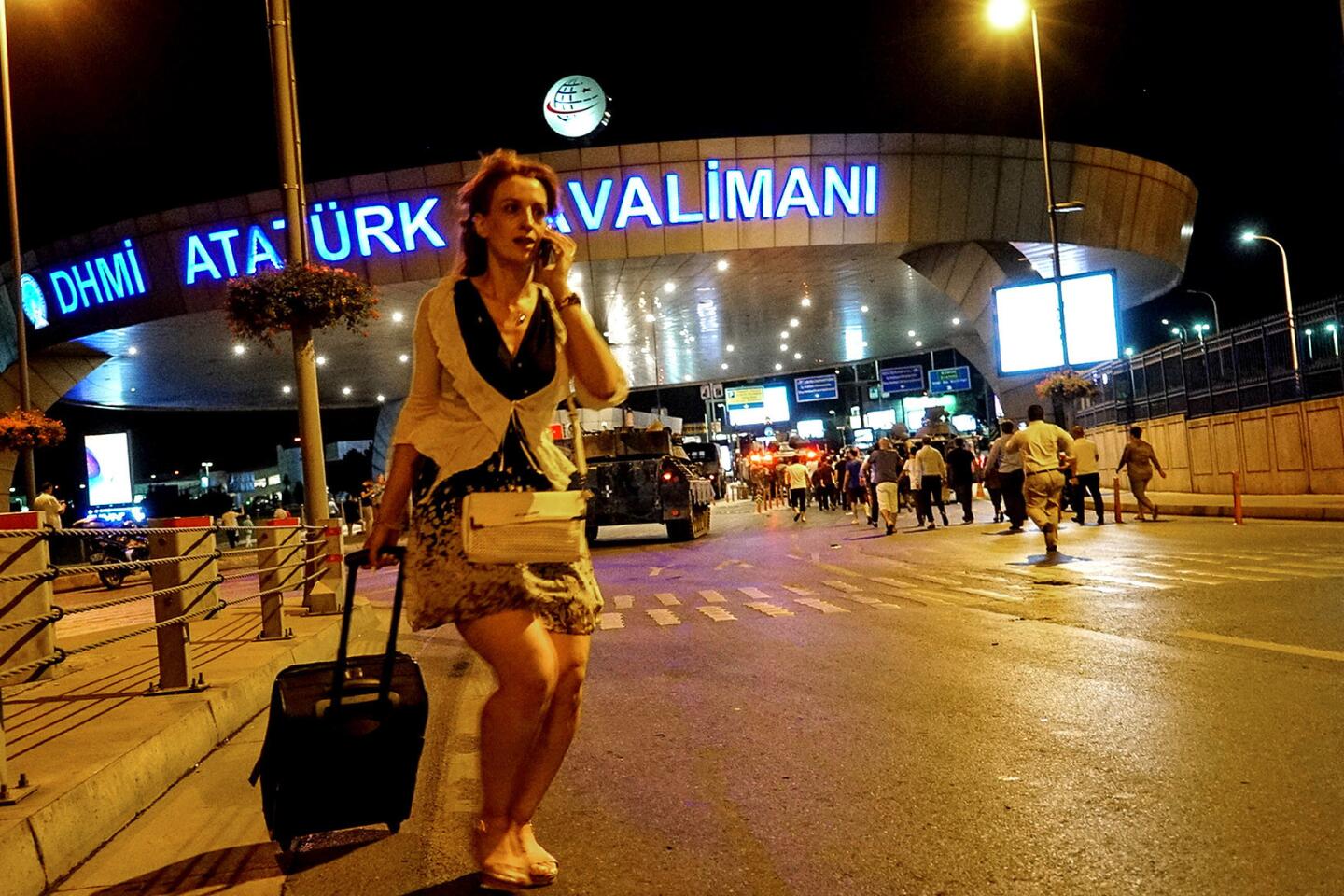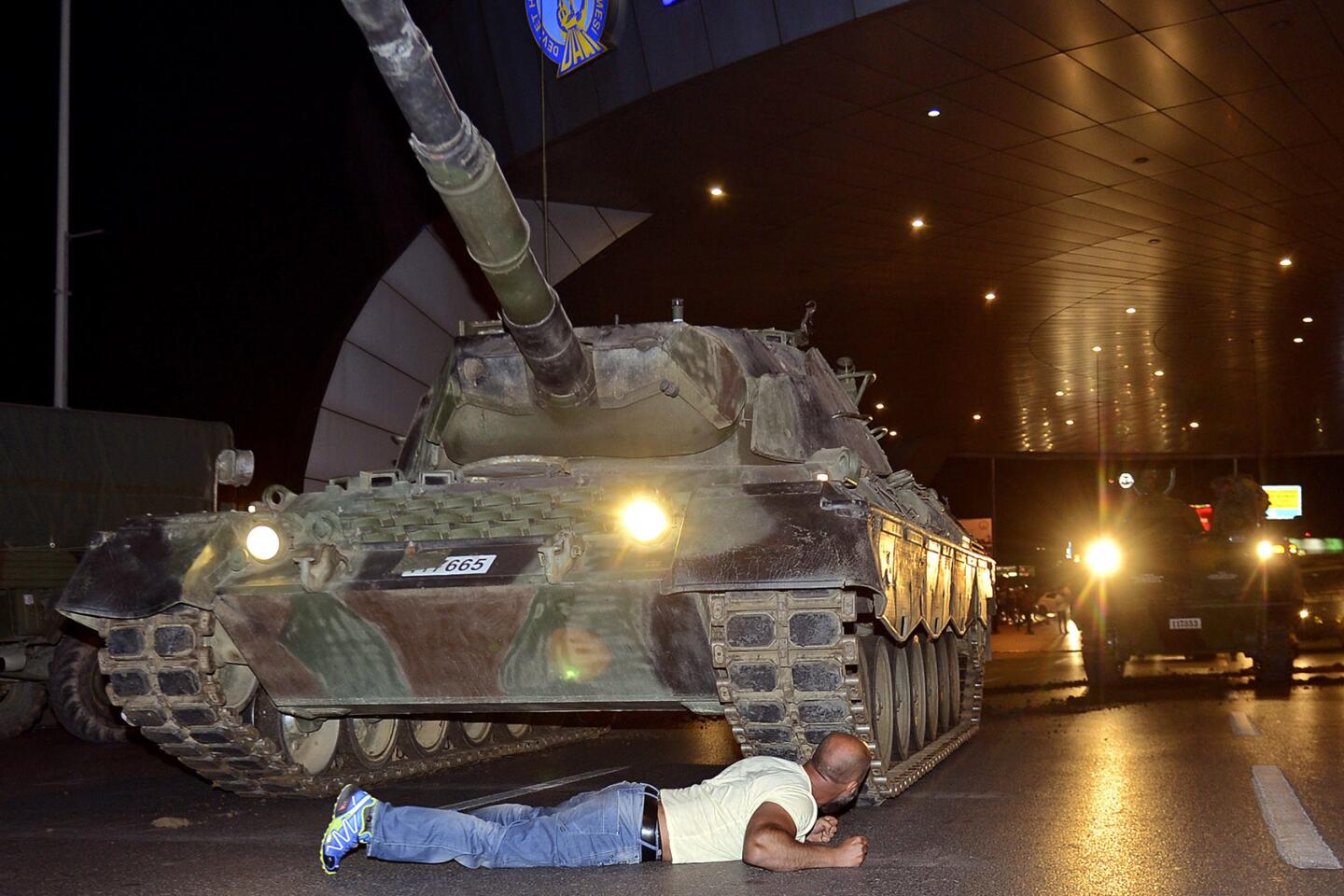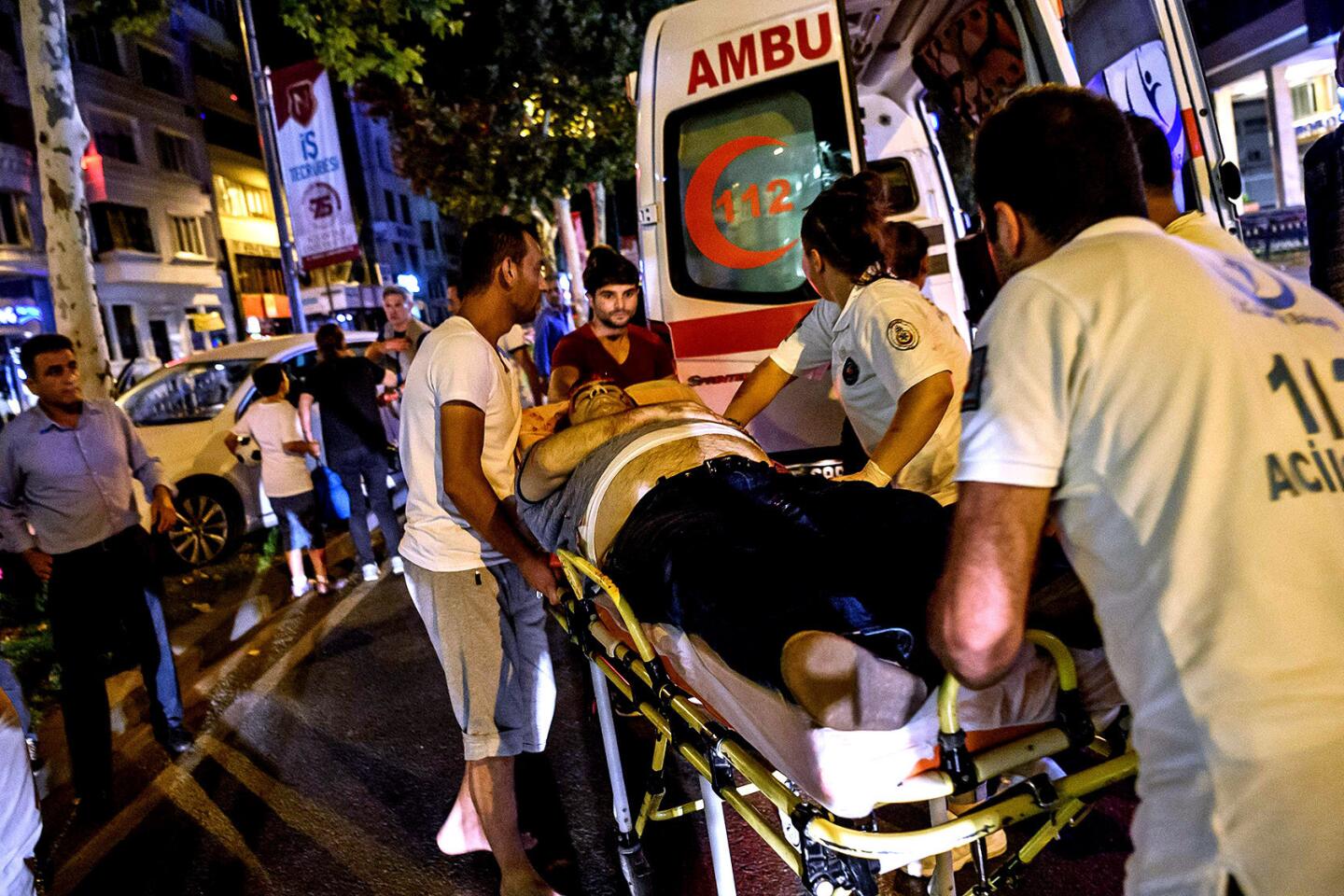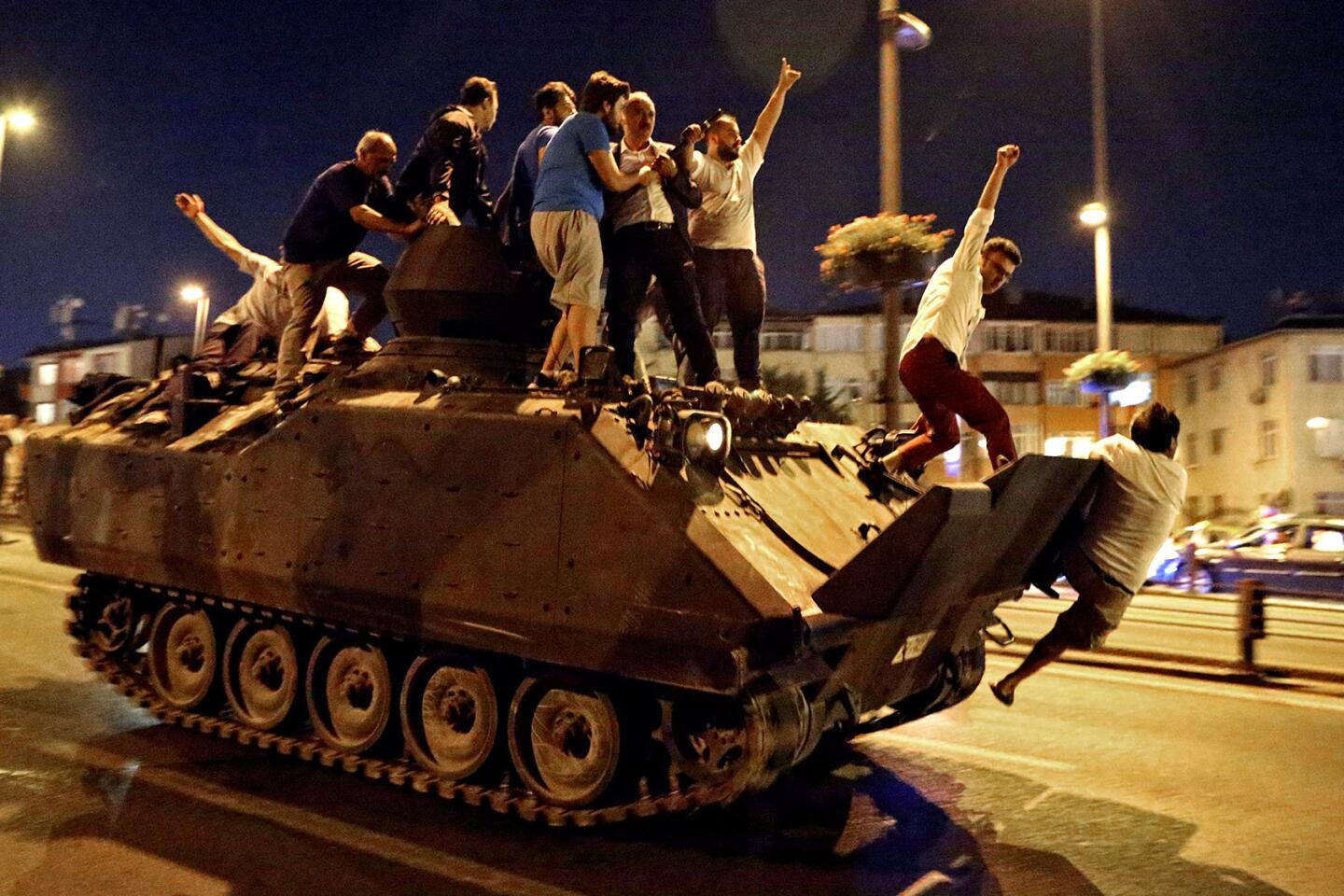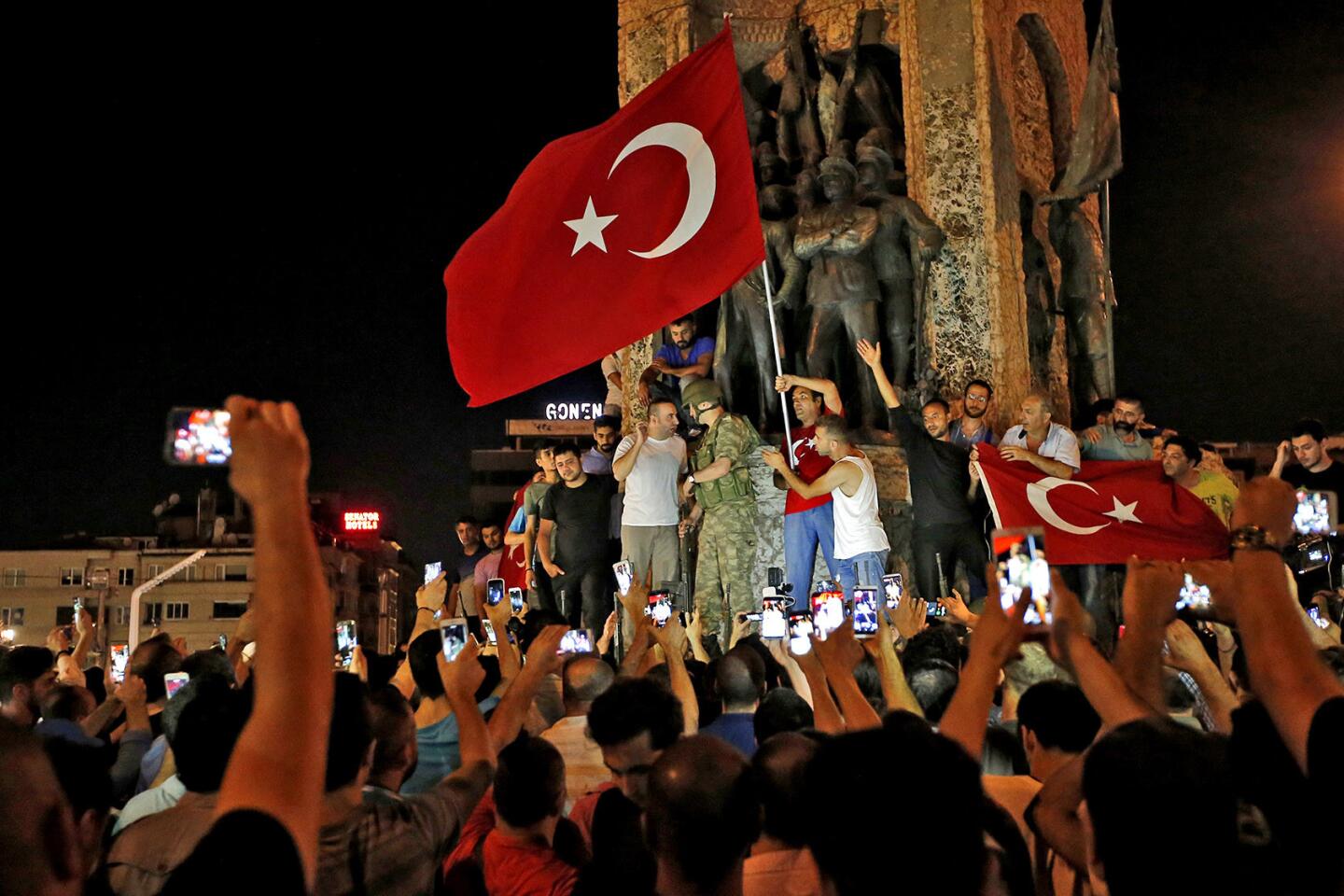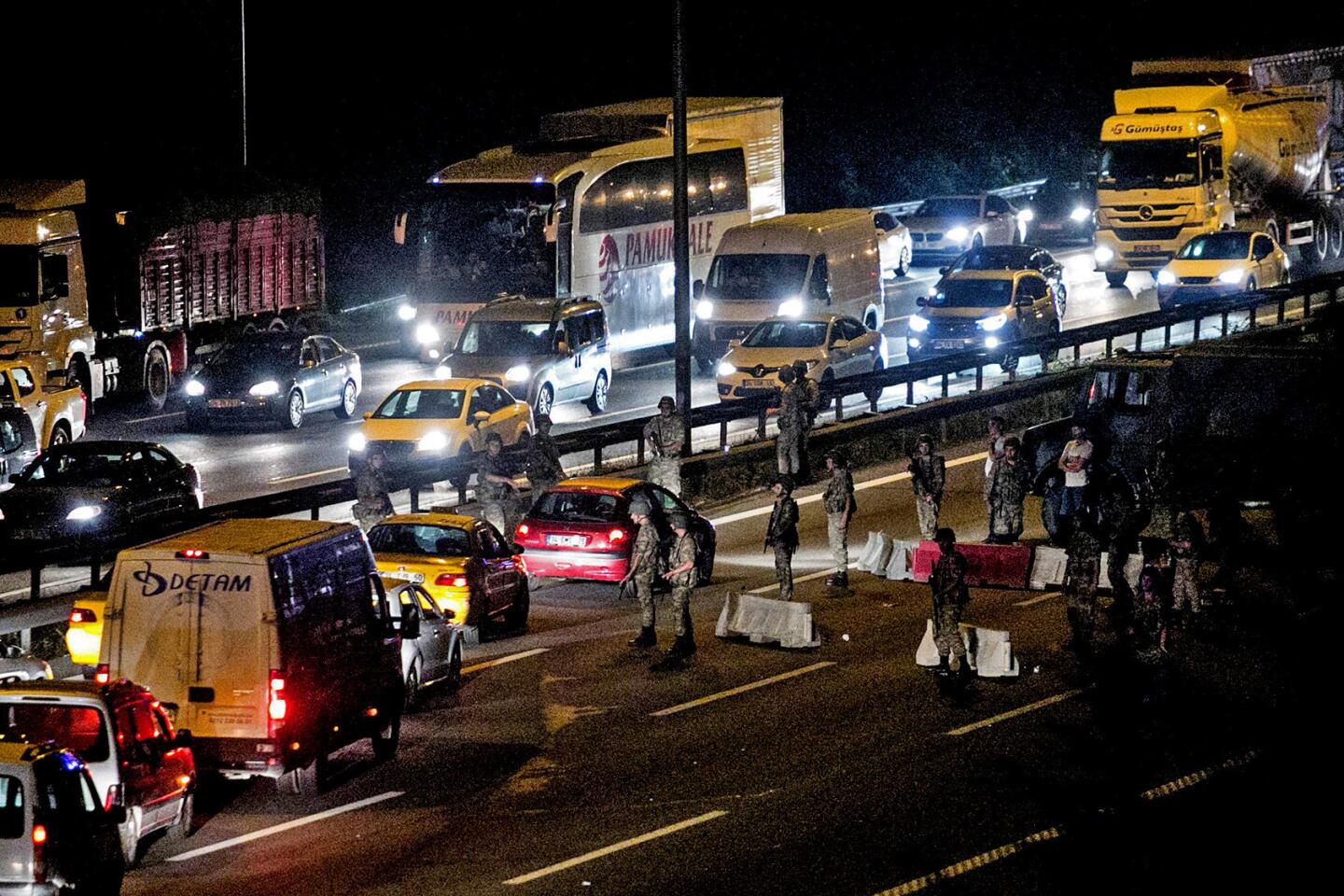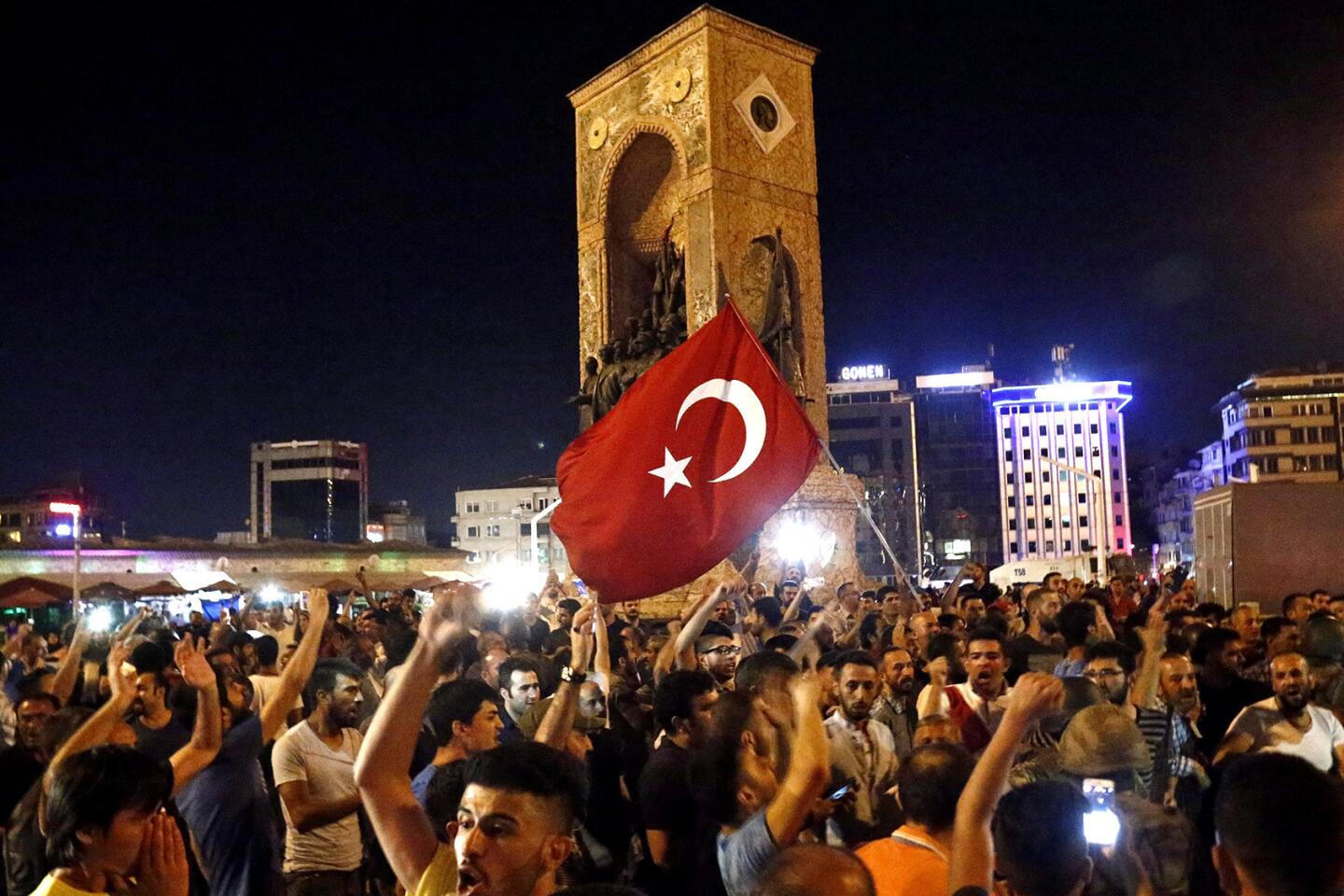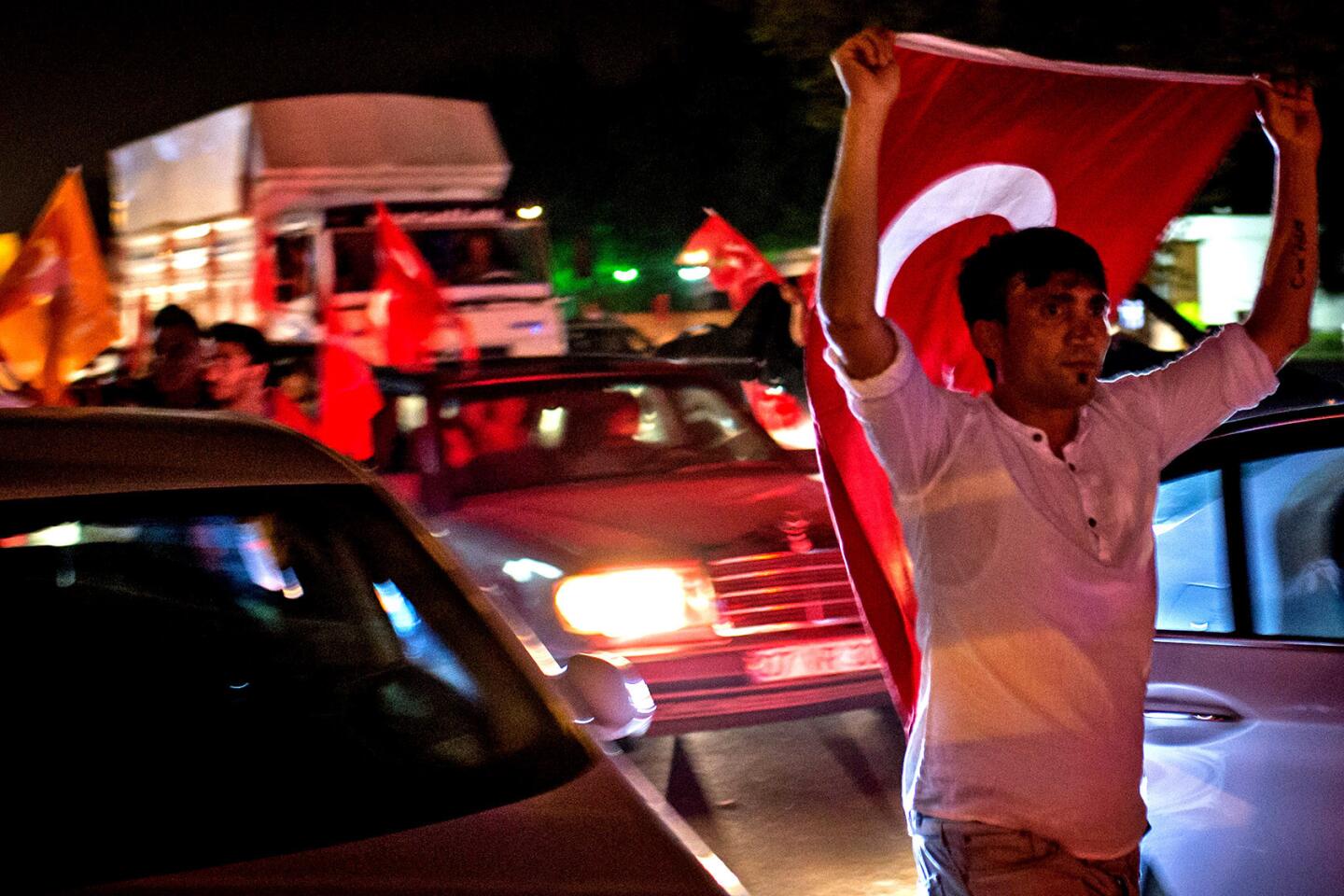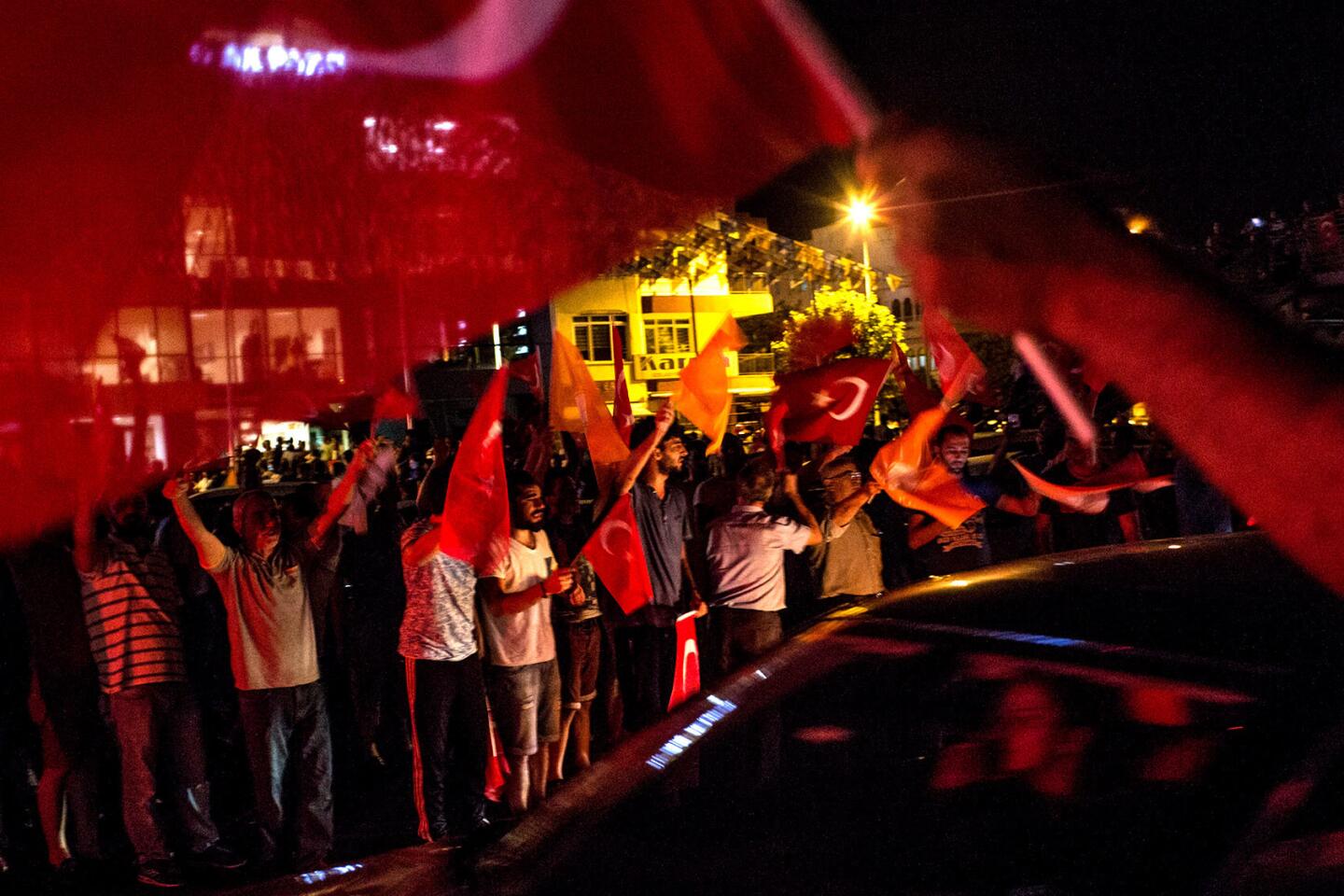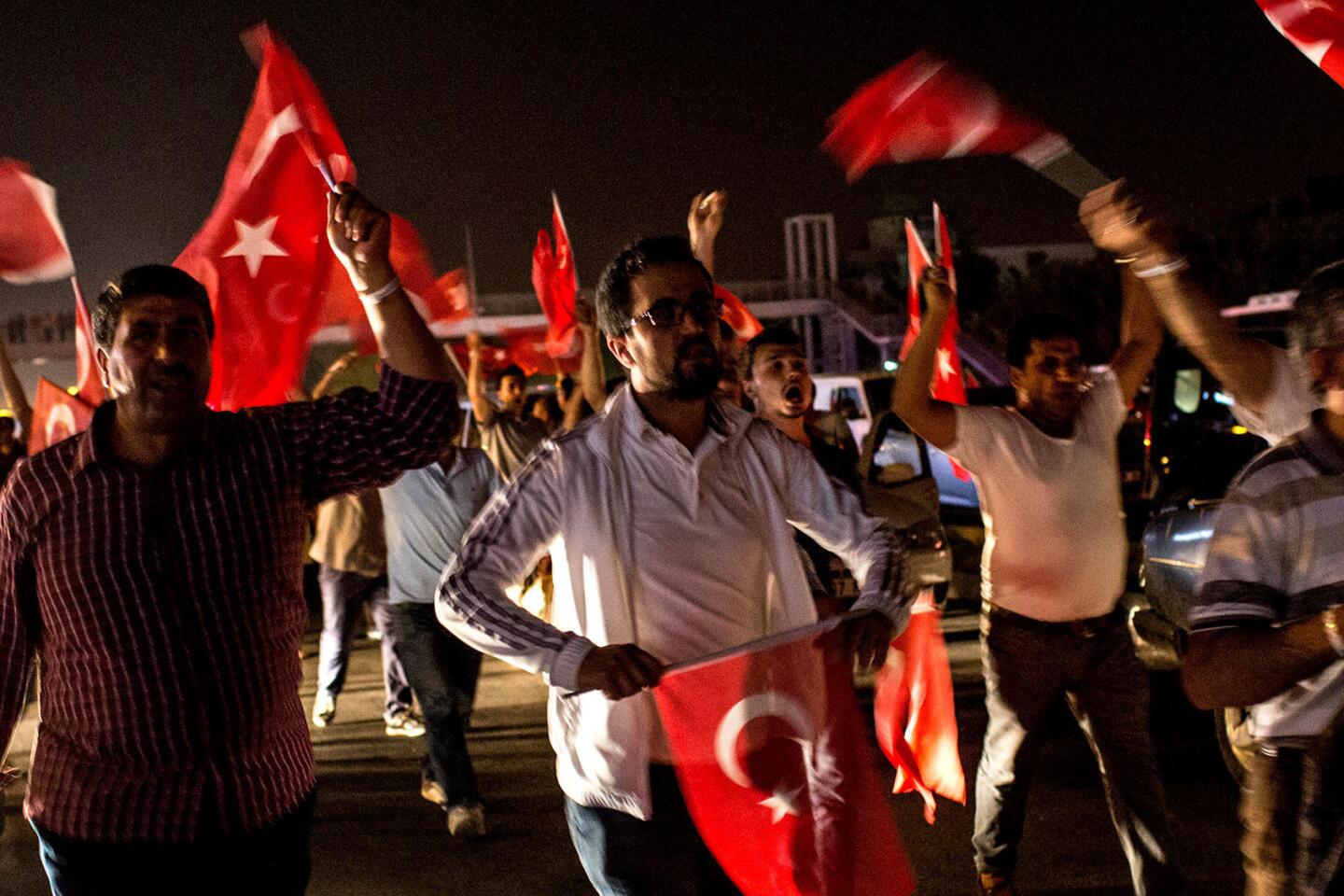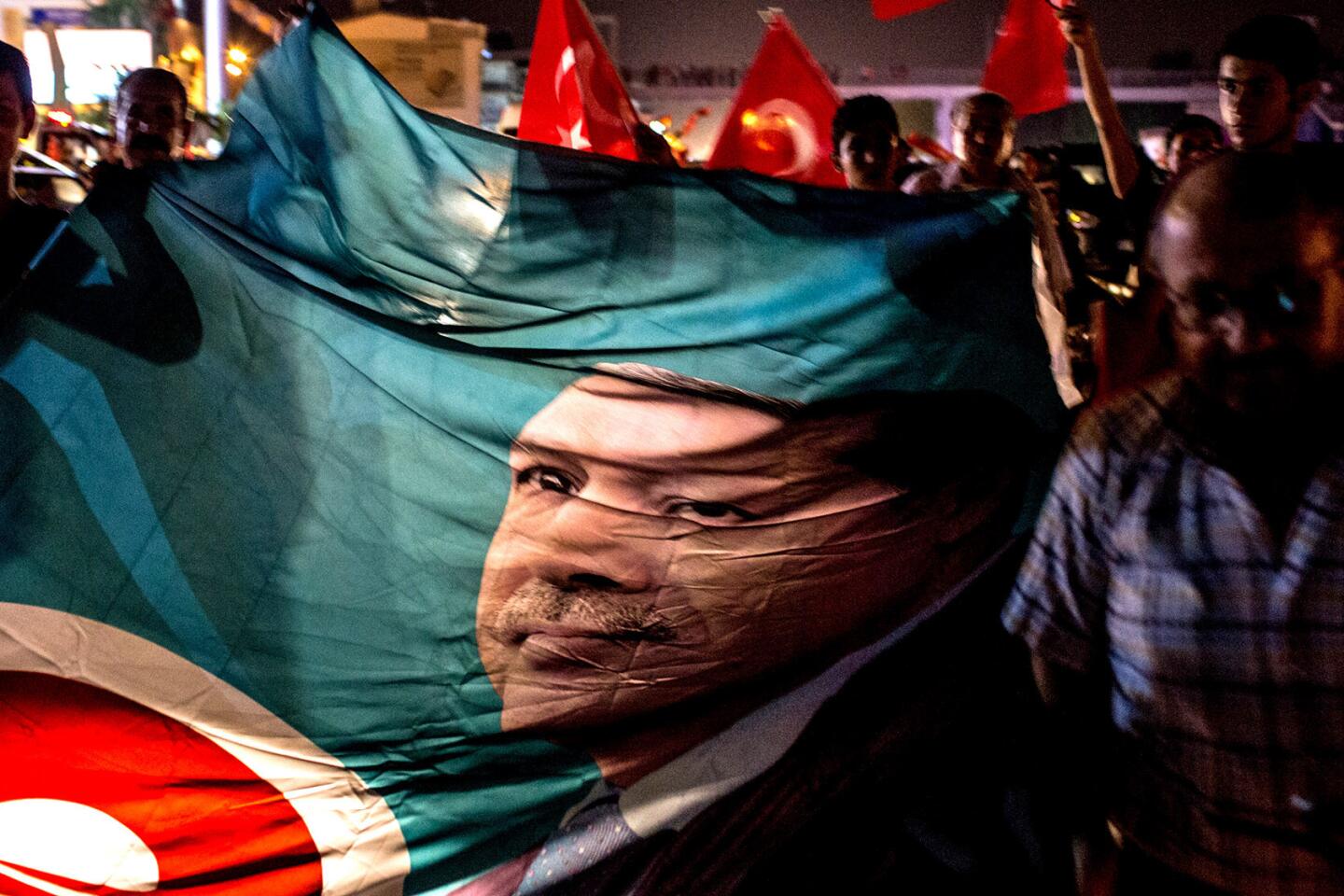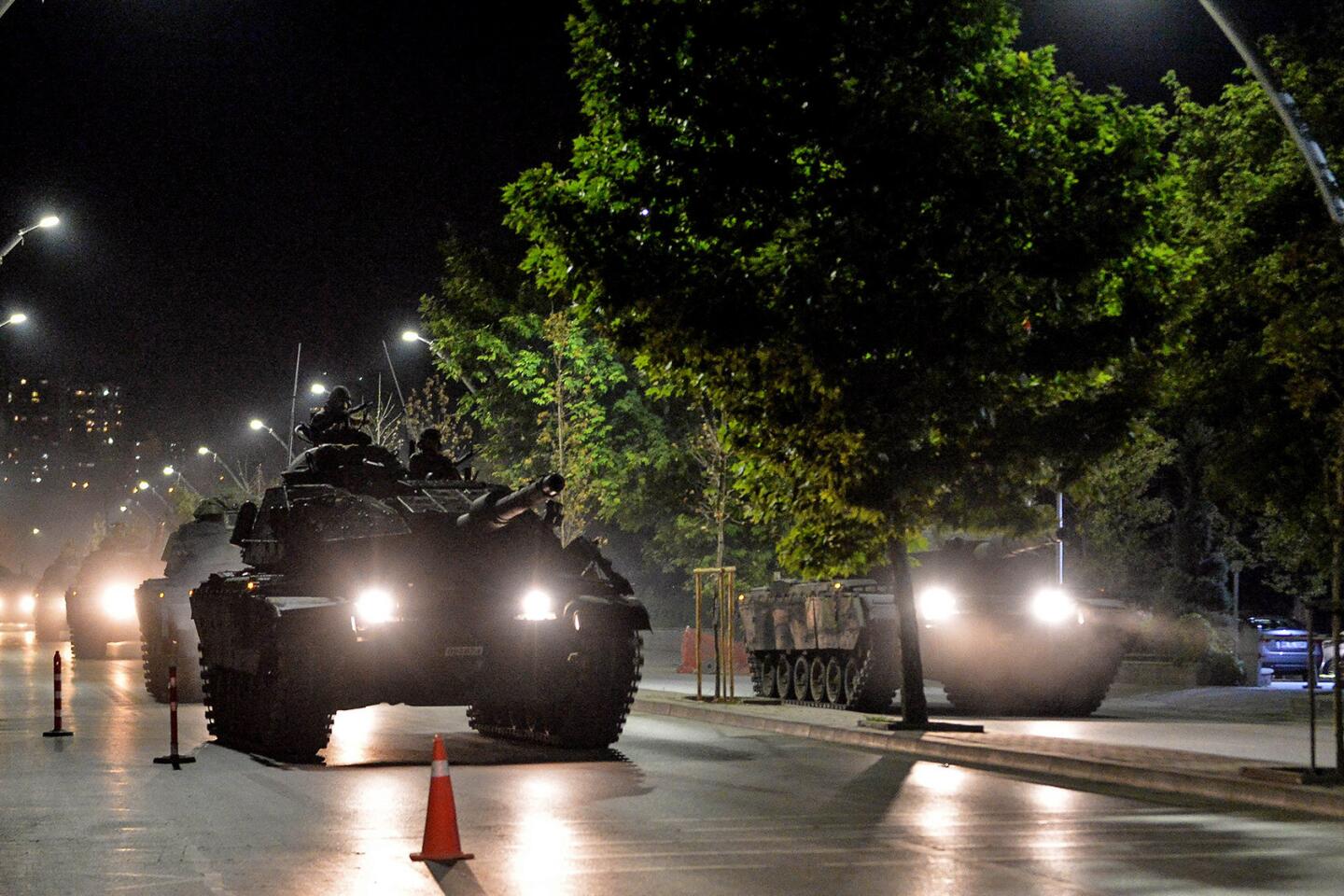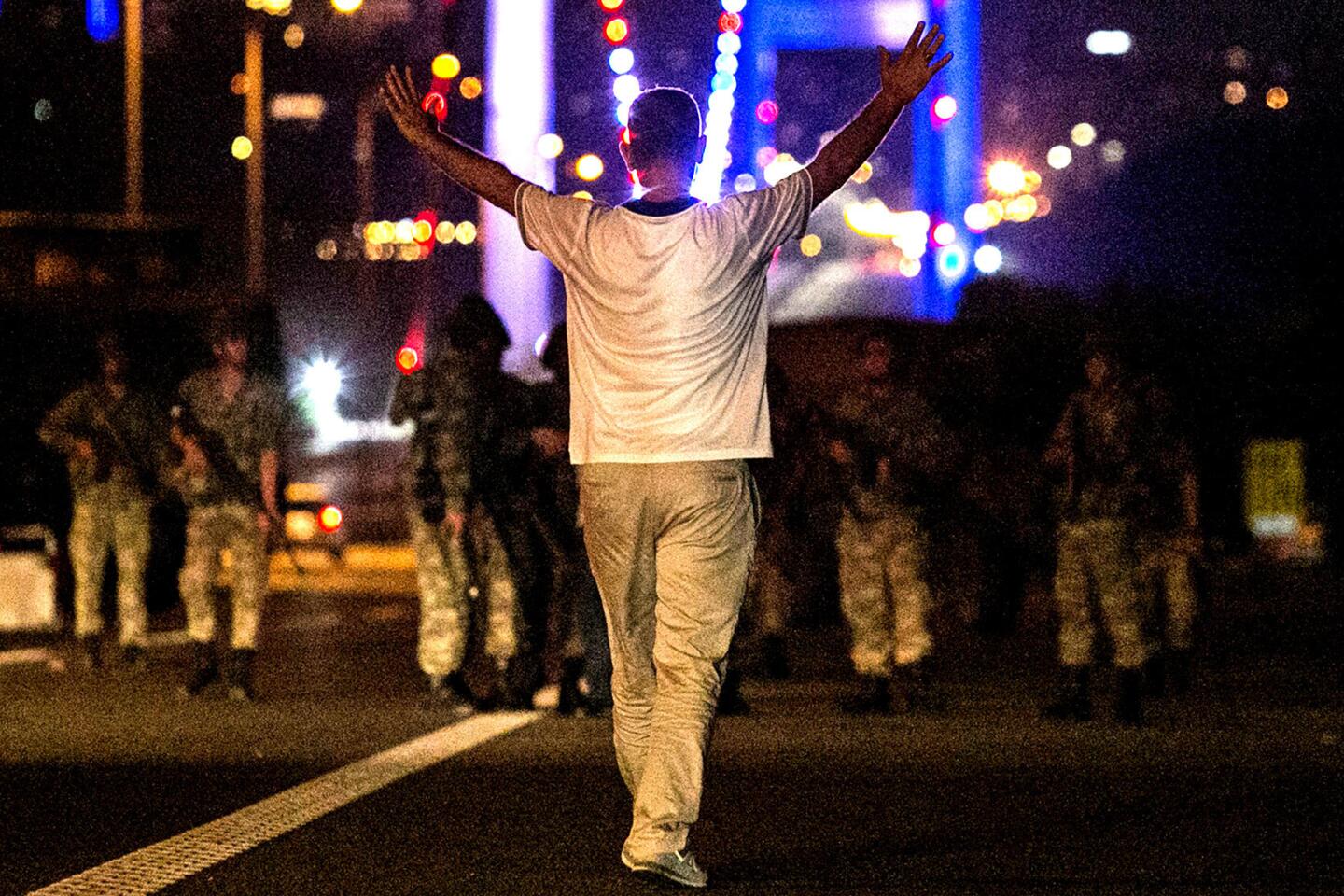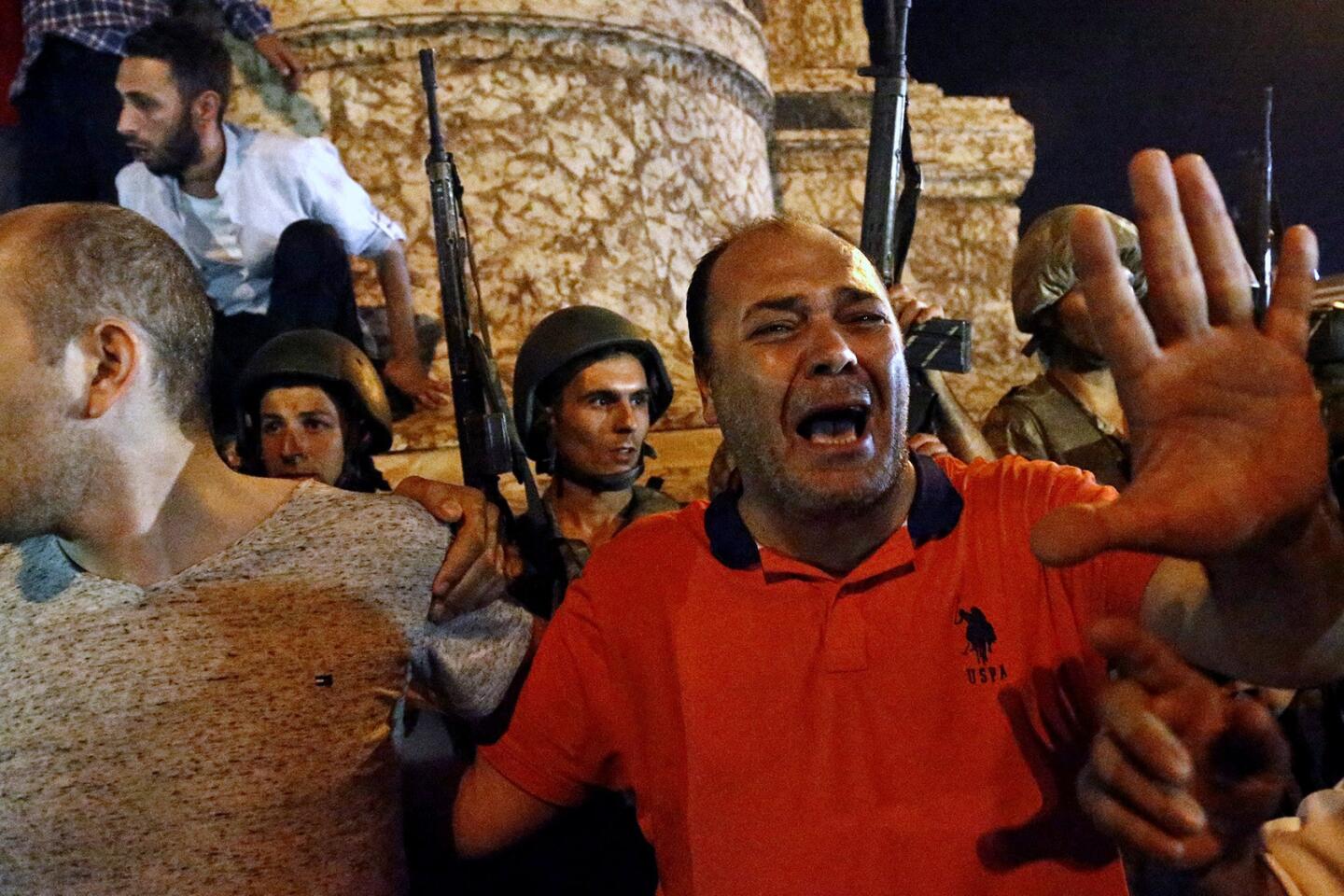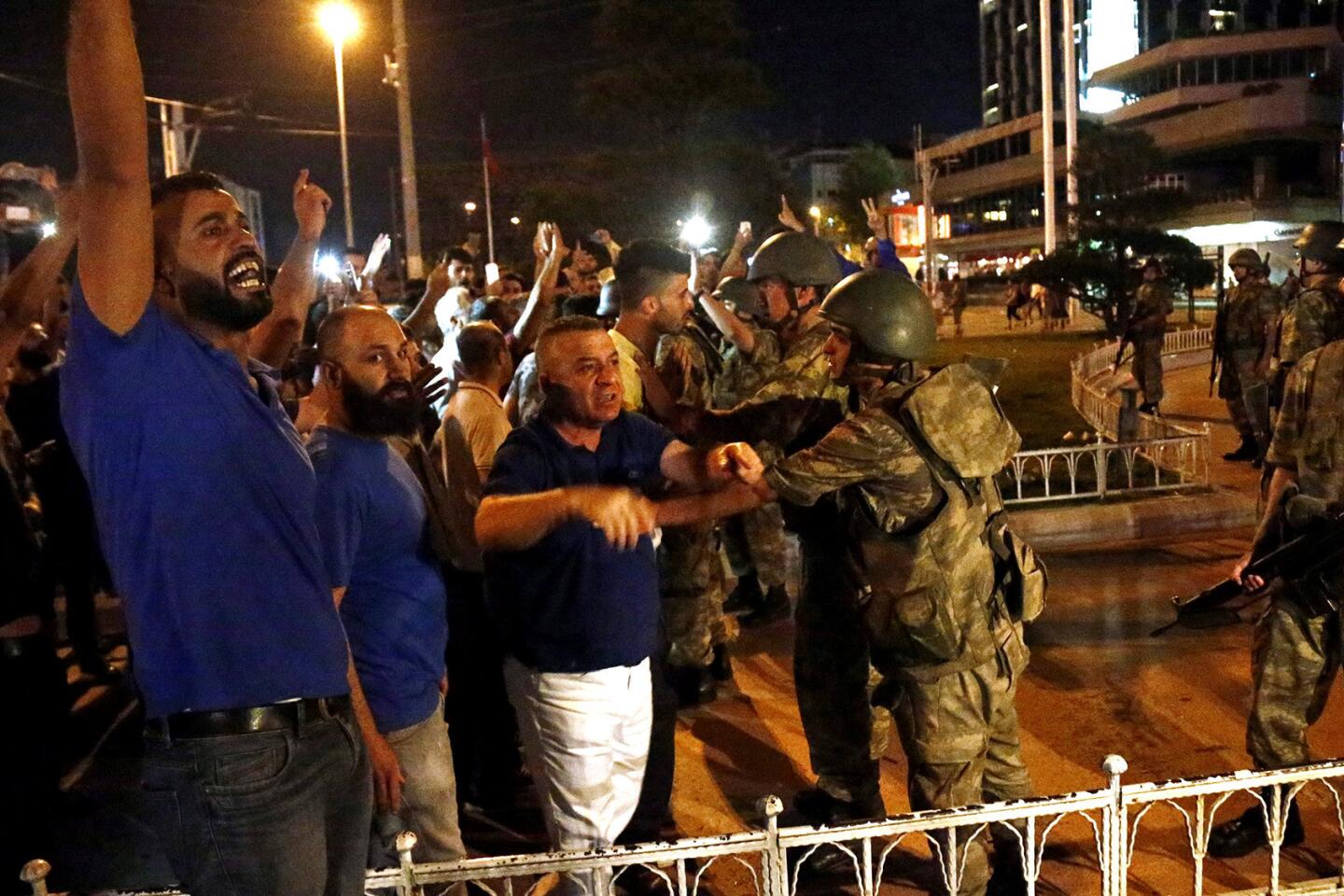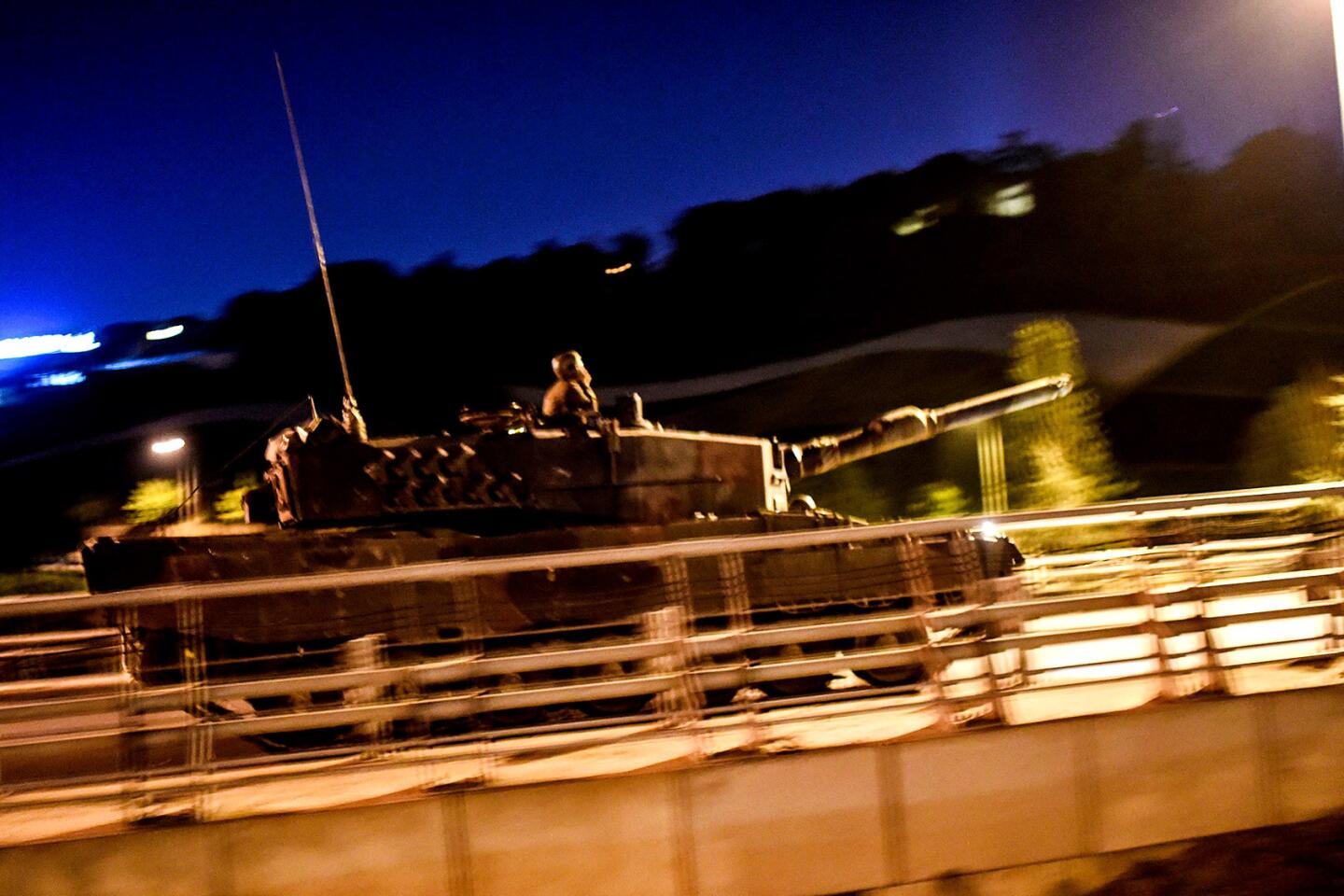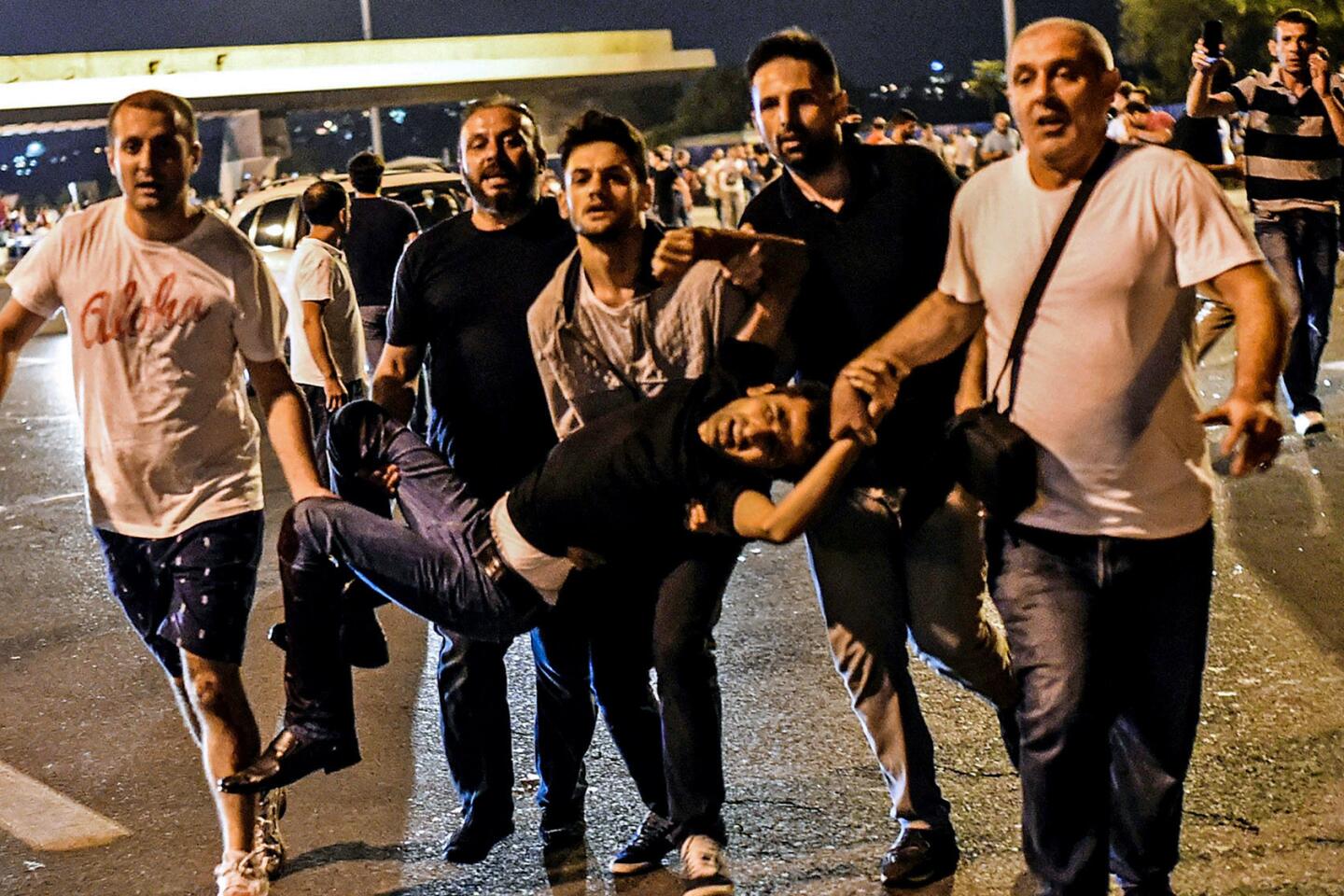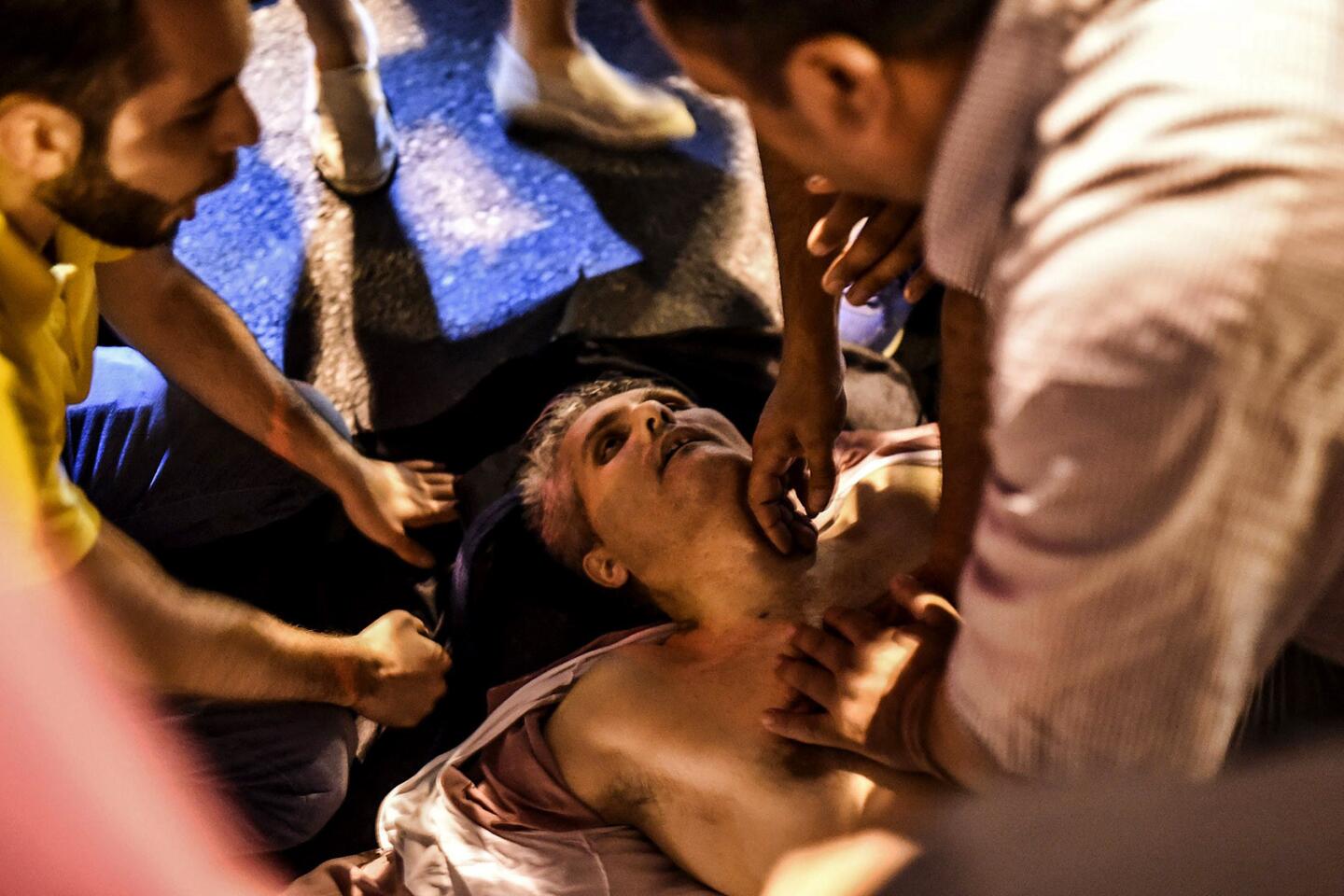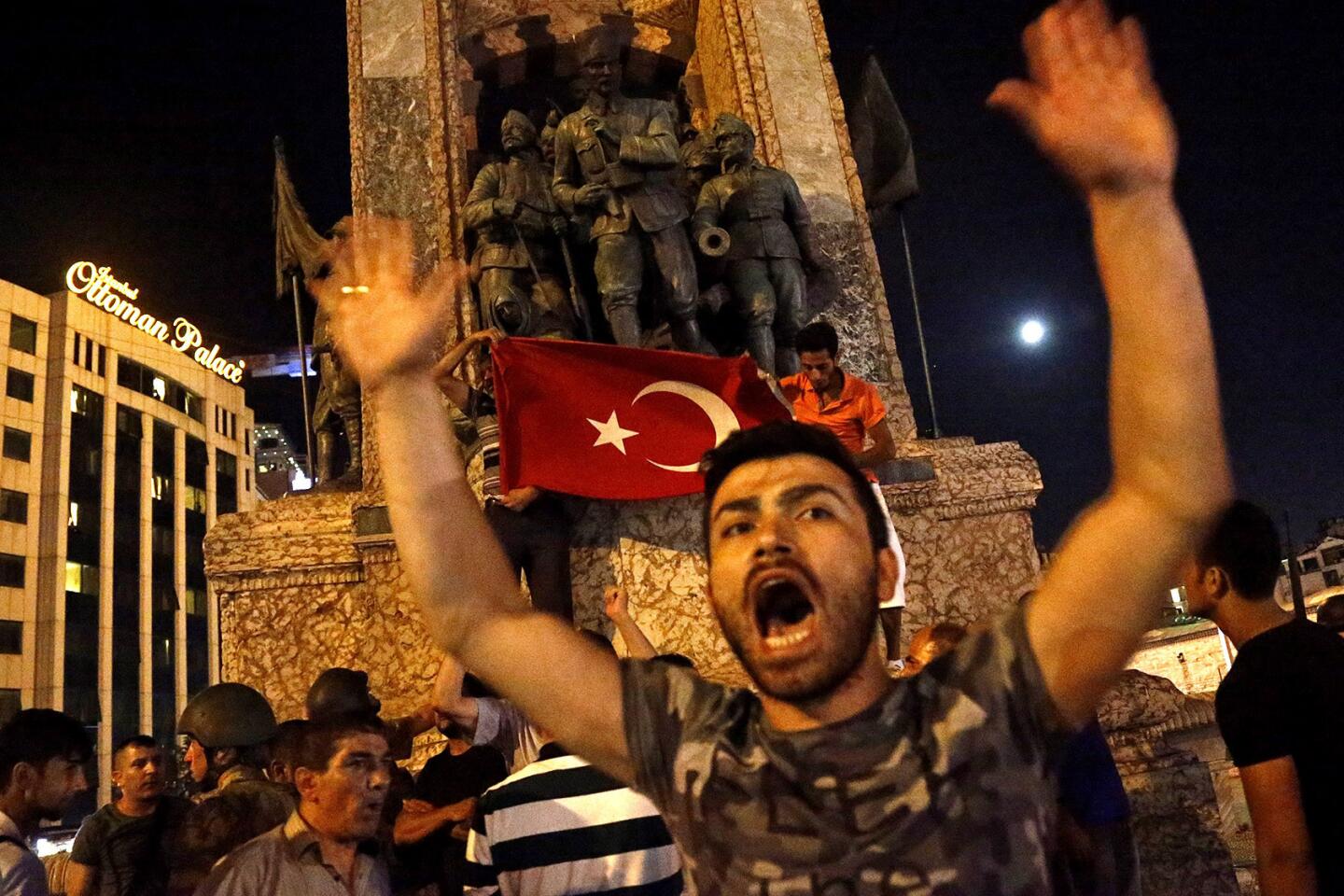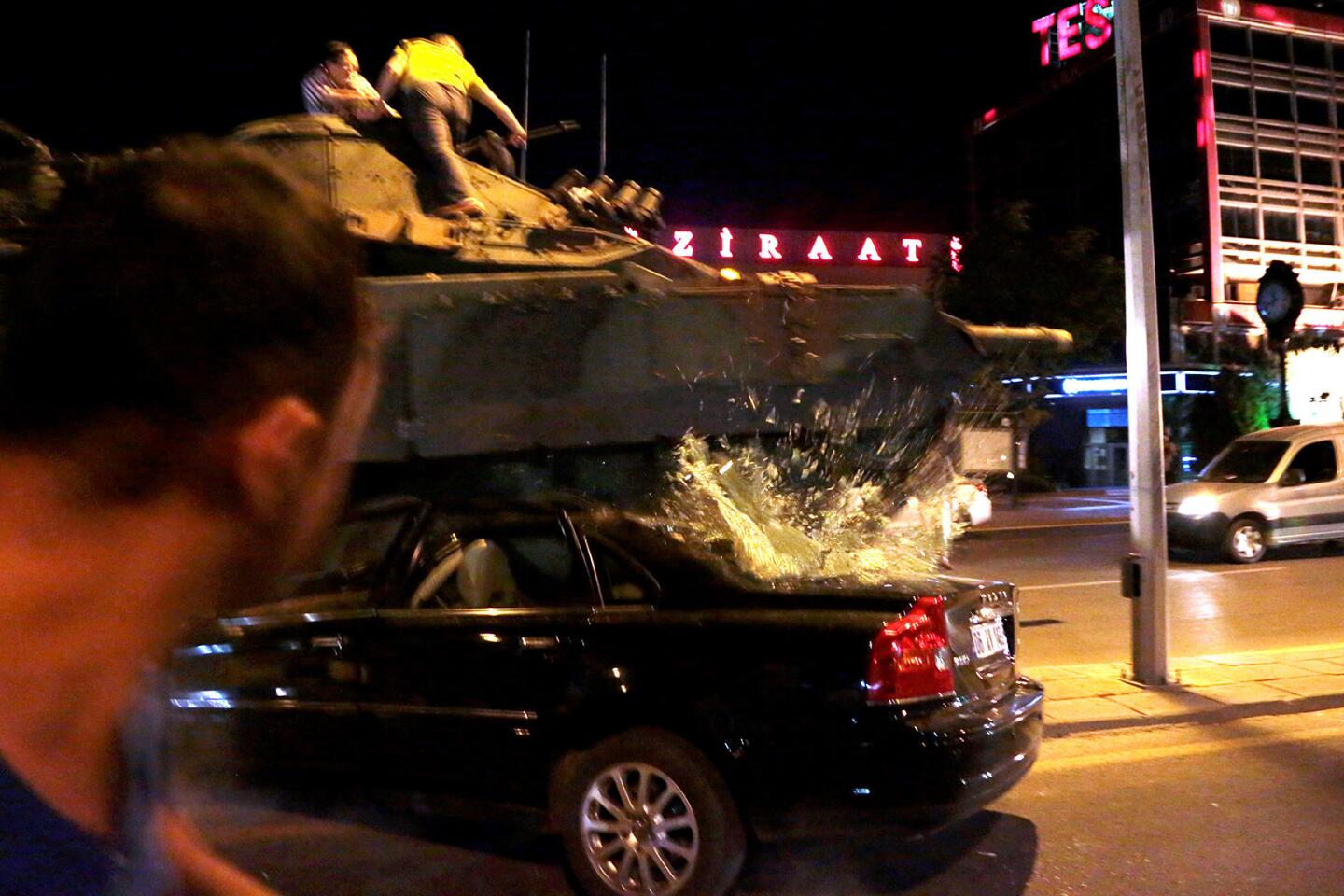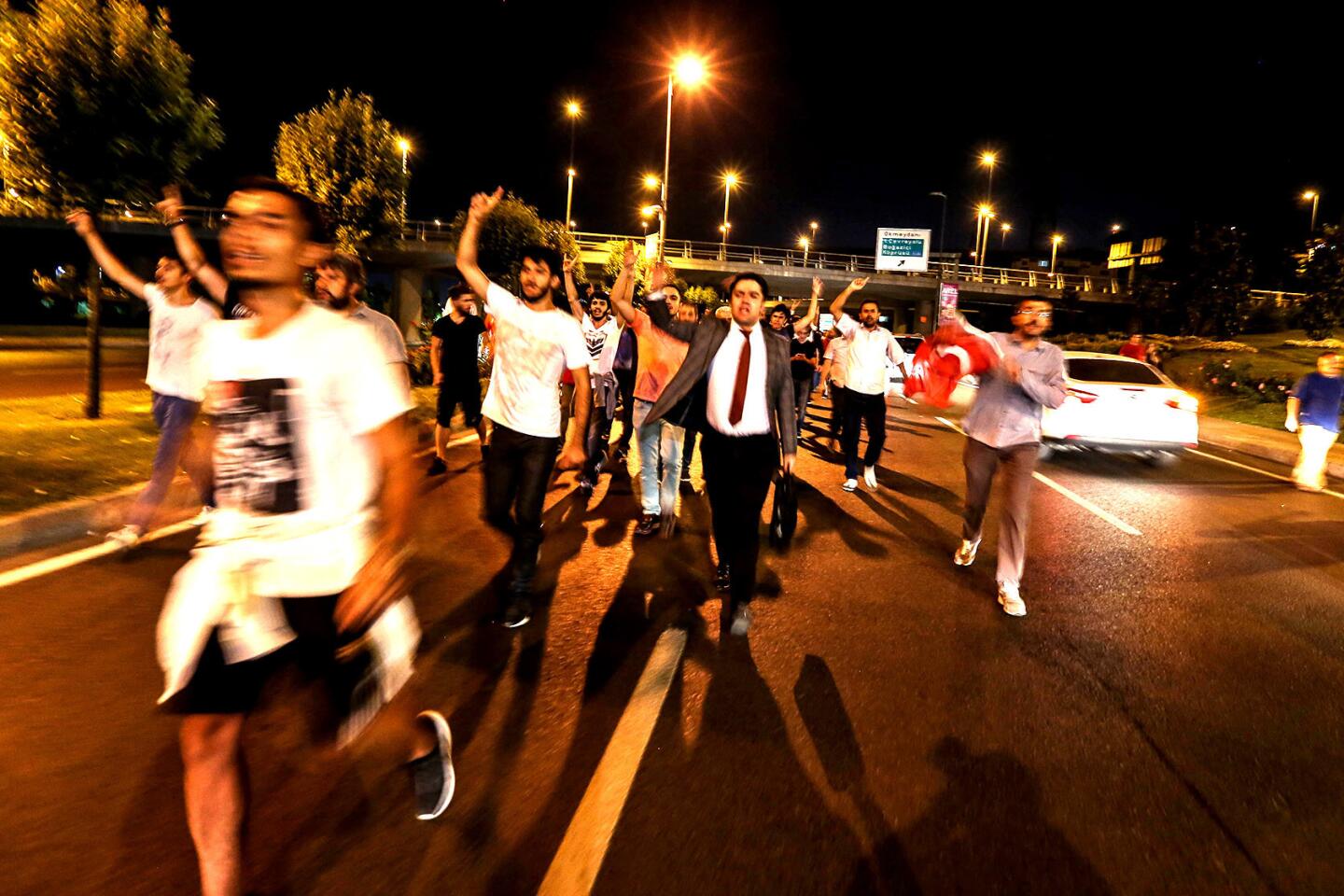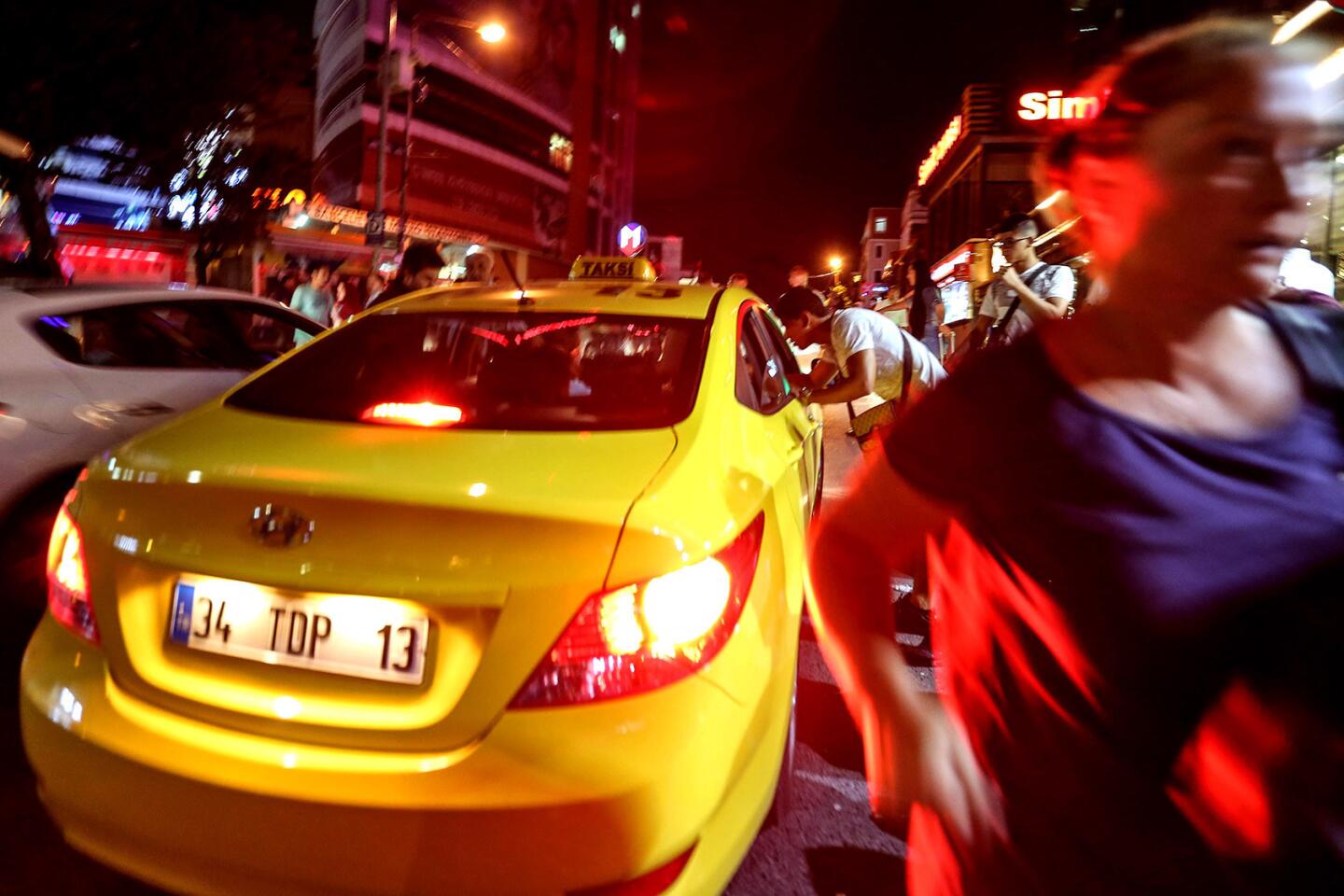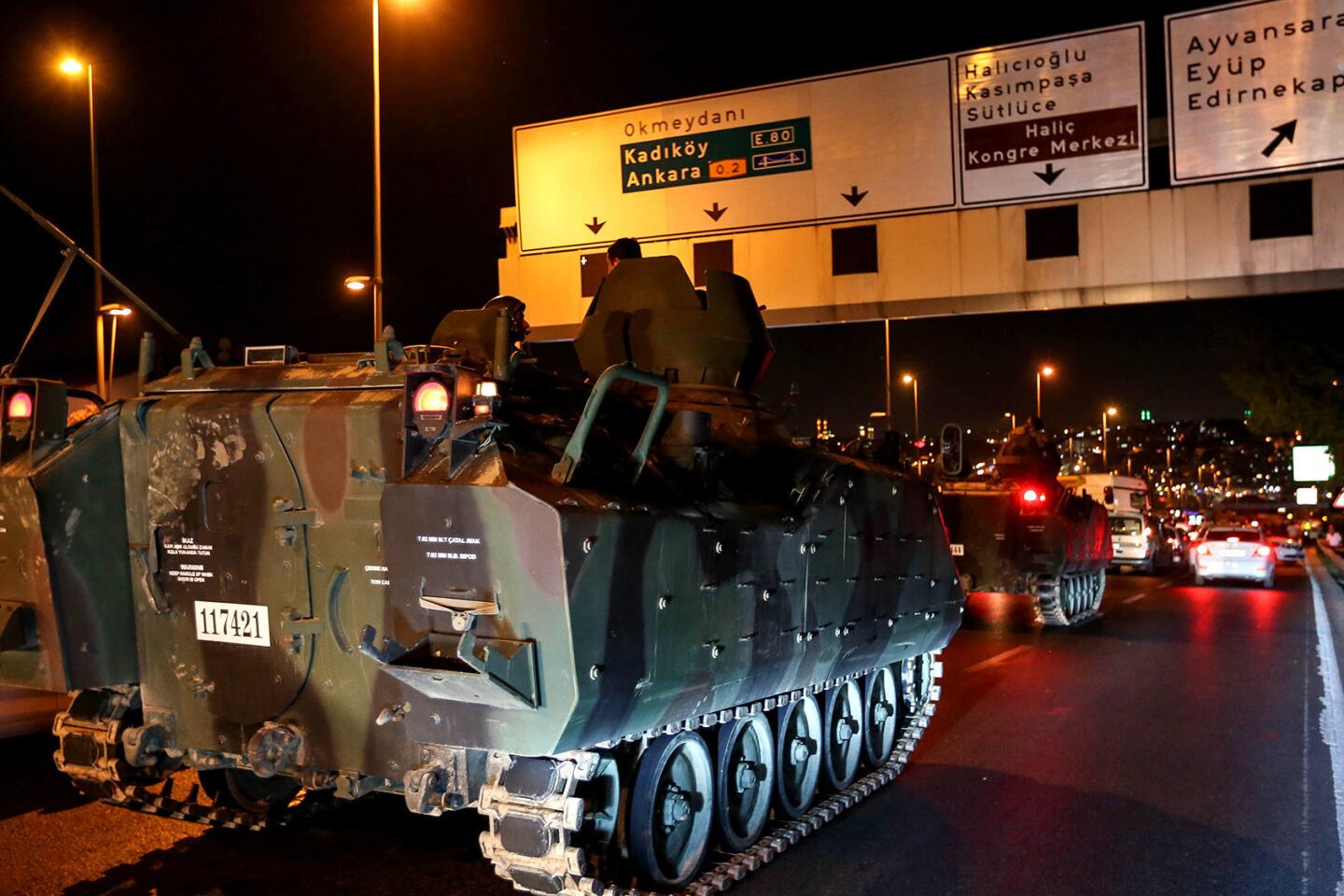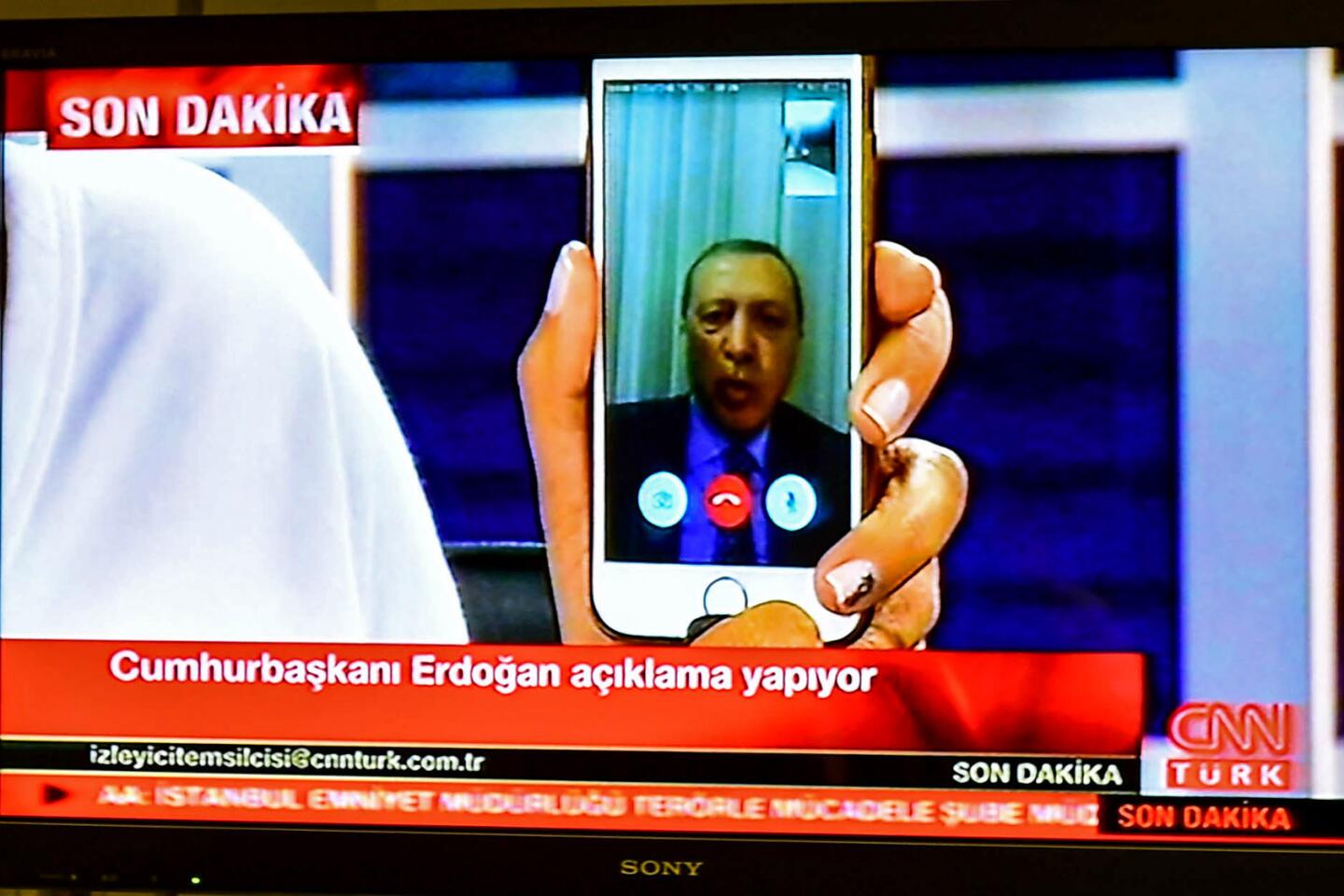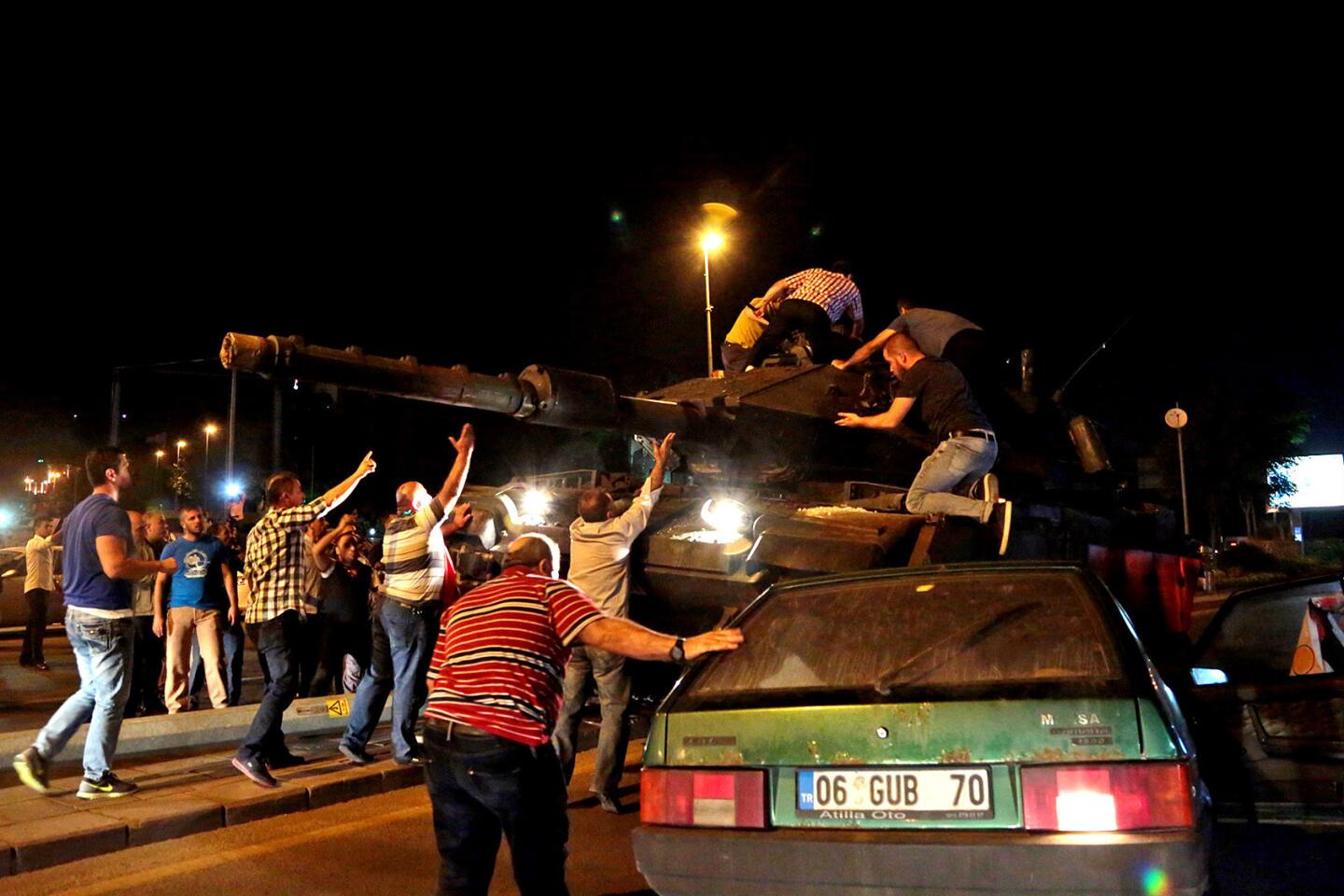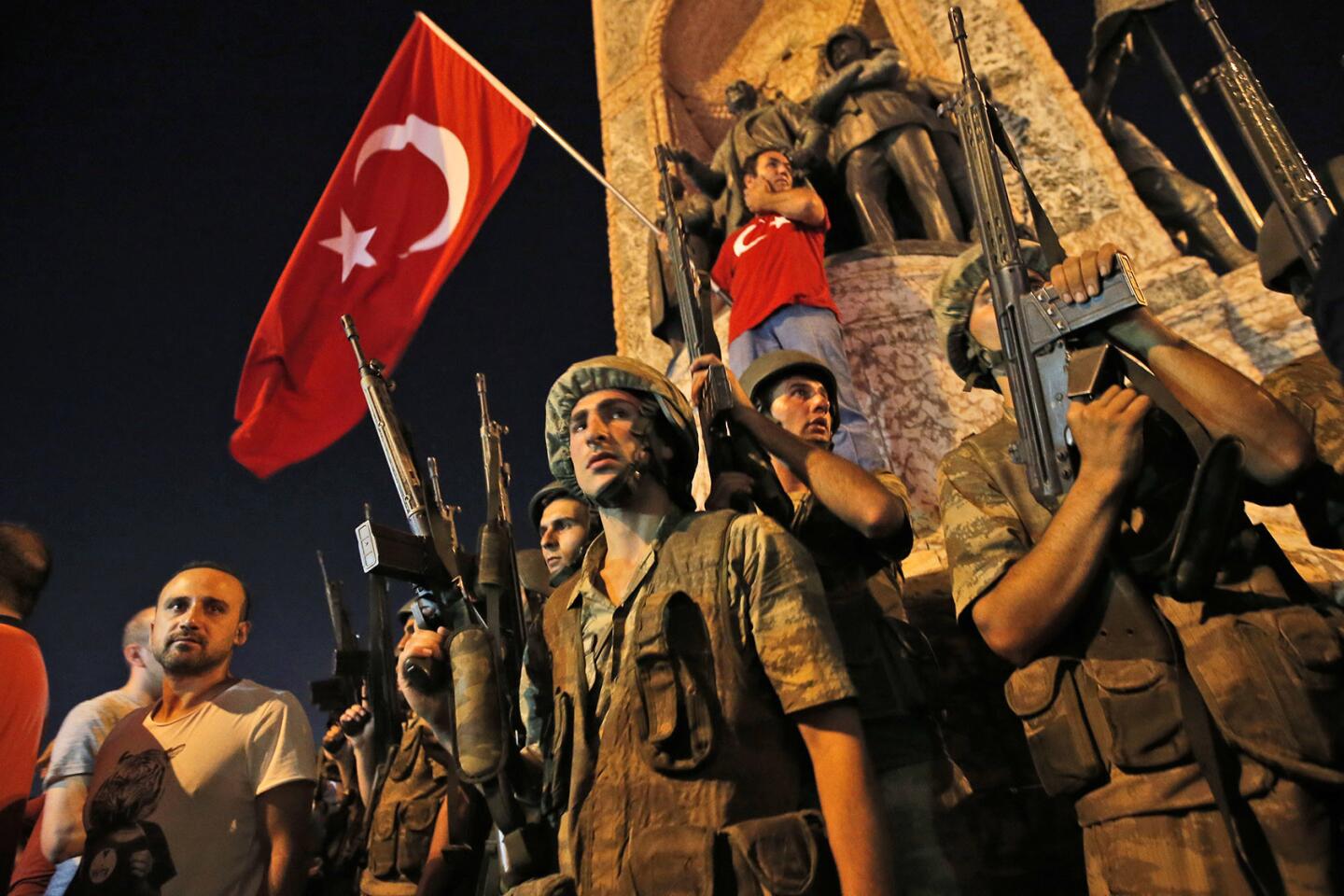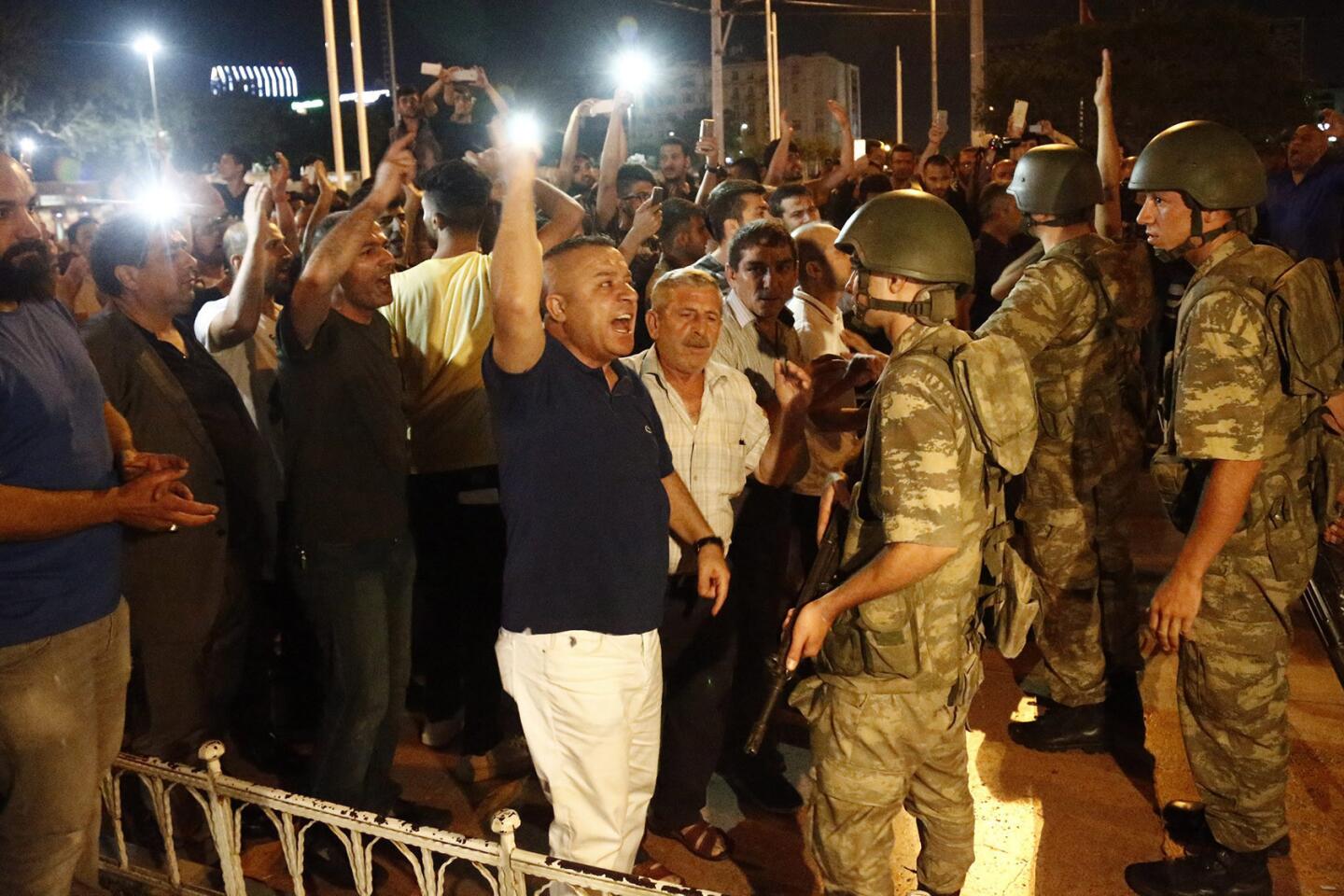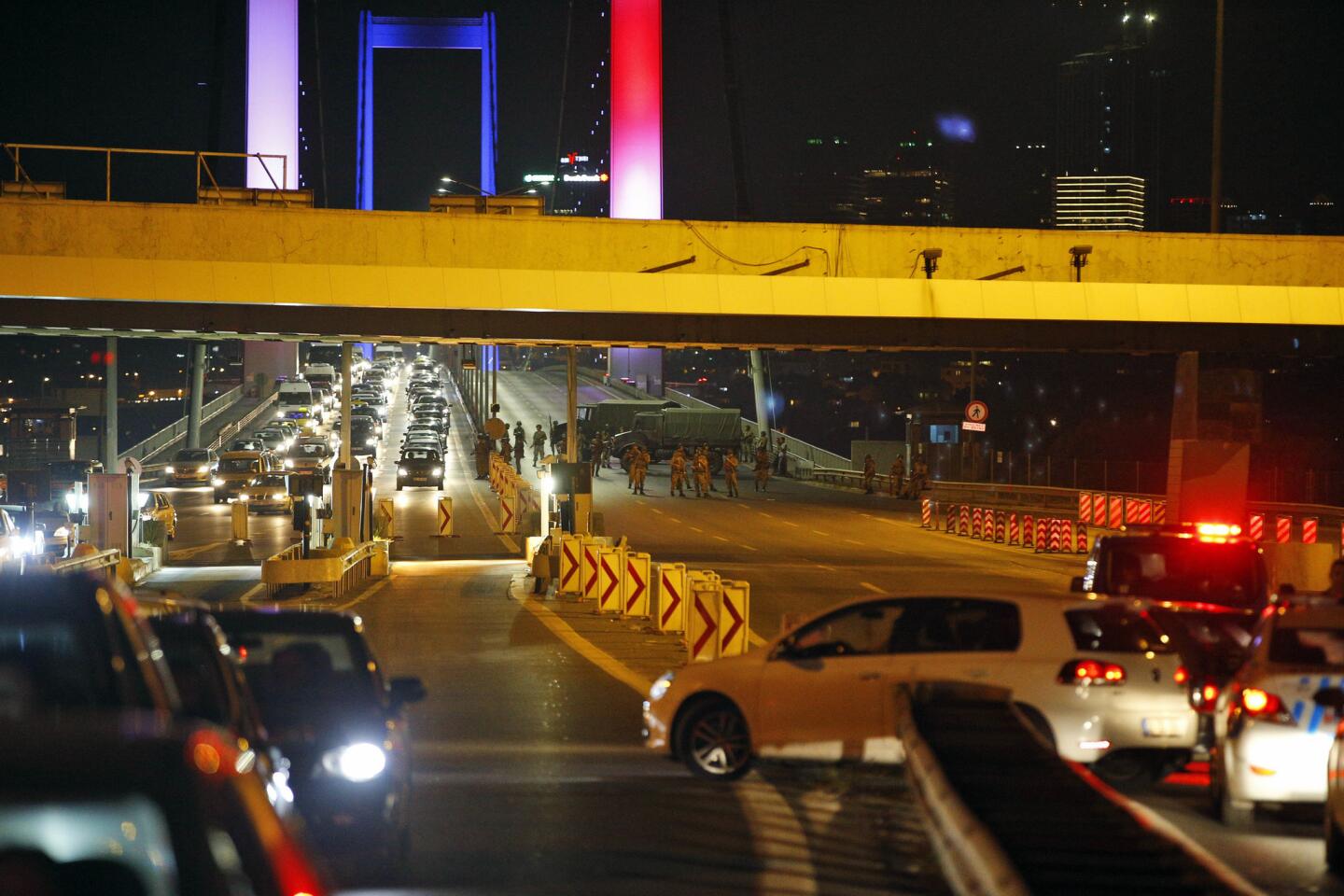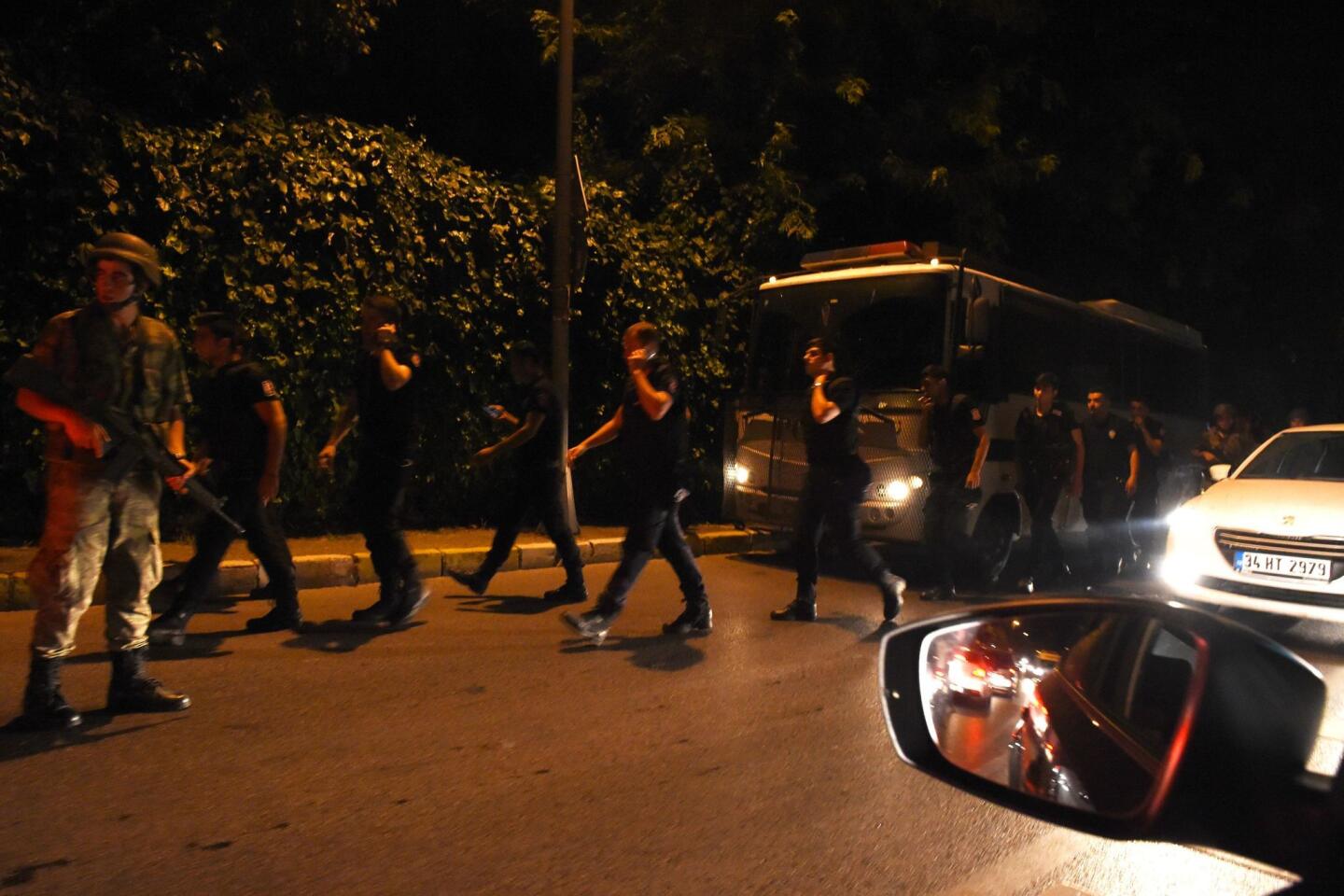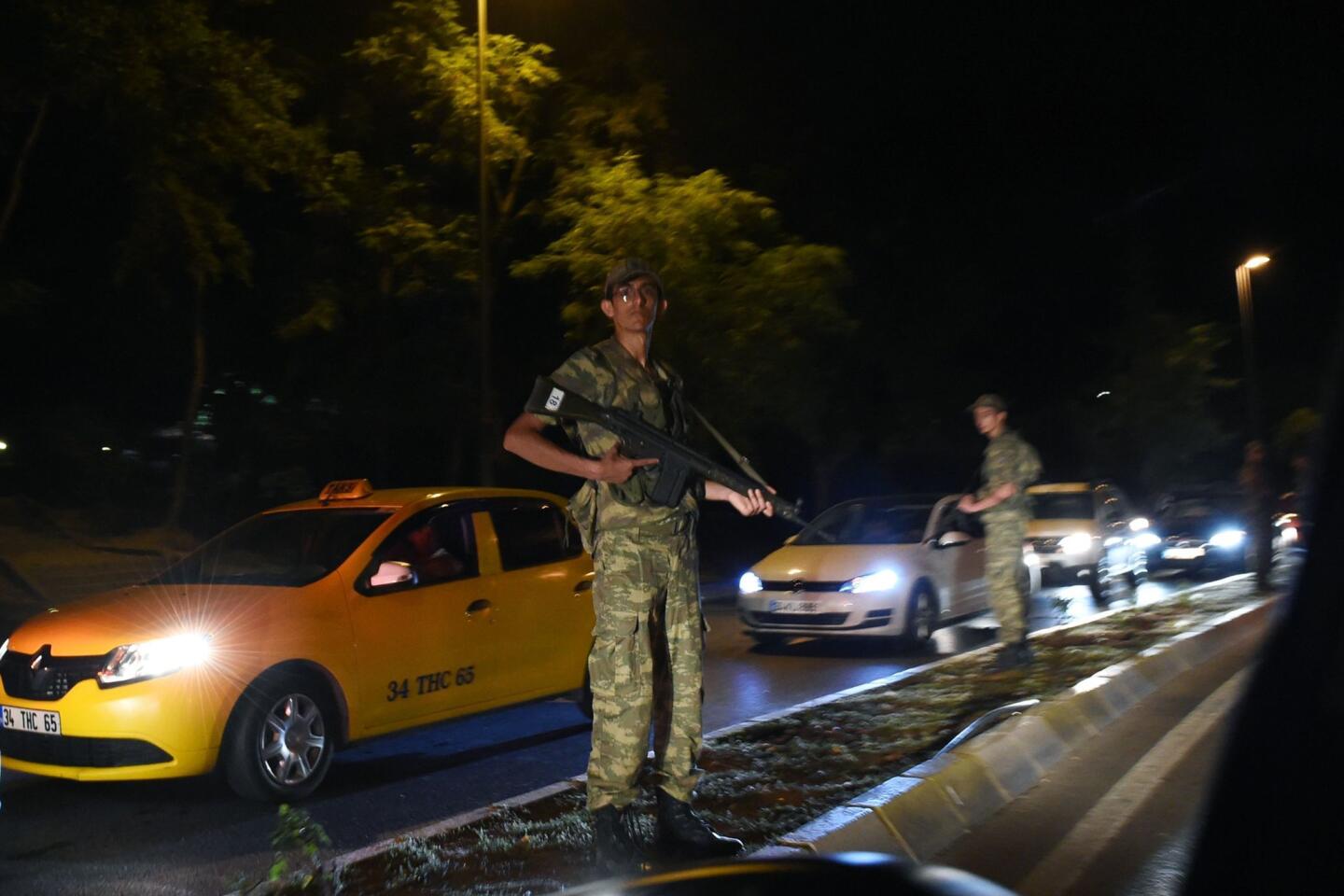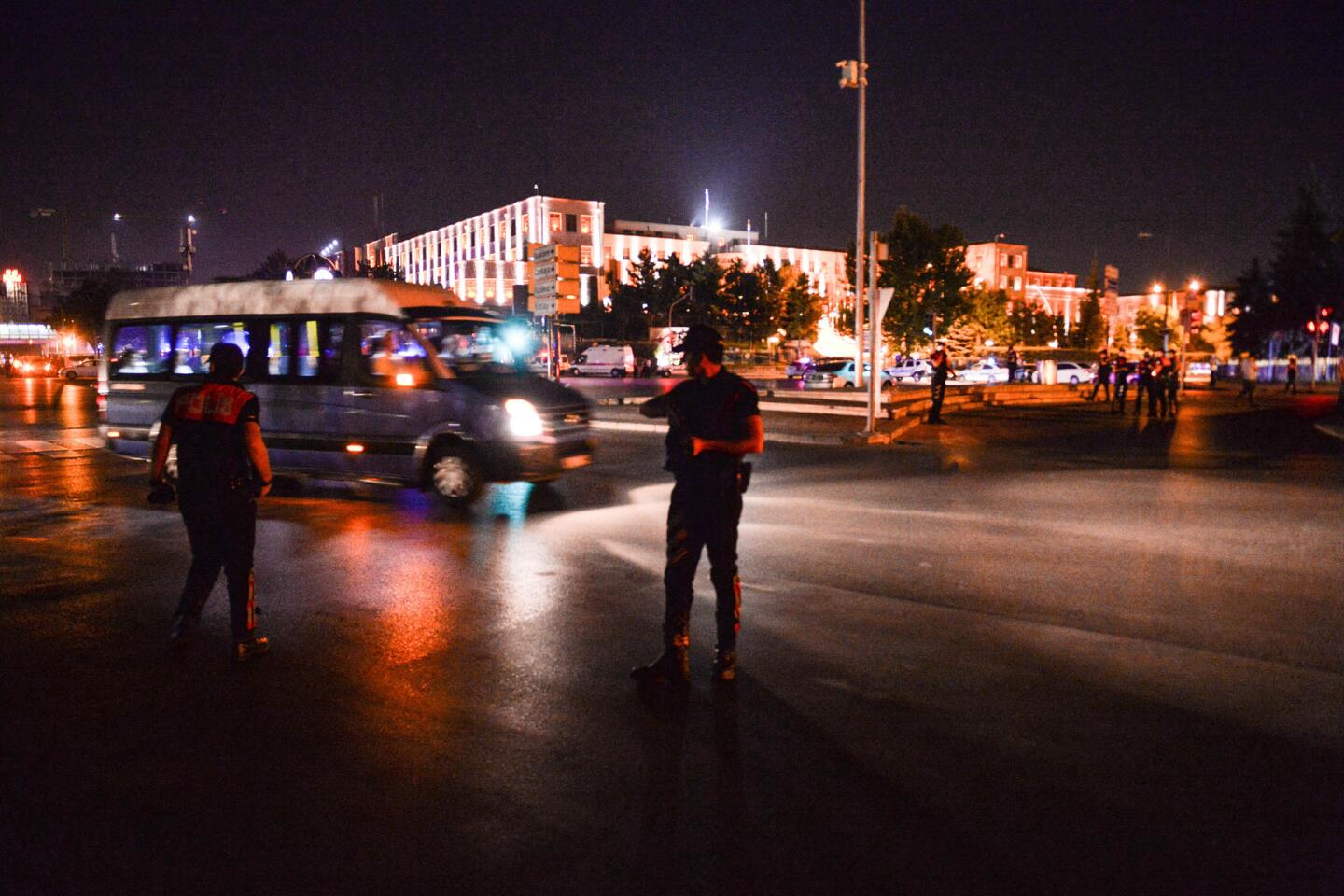Istanbul, Turkey — Turkish President Recep Tayyip Erdogan has apparently put down a clumsy military coup, but the fallout, as he punishes those who challenged his government, will plunge Turkey’s domestic politics and its relations with the U.S. into new turmoil.
A vital strategic ally to Washington, NATO member Turkey was generally calm Saturday, after a long night in which rival factions in tanks and F-16 fighter jets battled for control of the country before Erdogan ended the uprising.
Those responsible for the coup “will pay a heavy price for this treason,” Erdogan said.
His enemies said they were challenging Erdogan because of his efforts to consolidate and enhance his own power, weaken opponents and inject a more Islamic flavor into secular Turkish institutions. With the failure of the coup, Erdogan emerges stronger than ever and is likely to become an even greater authoritarian, to the detriment of Turkish democracy, analysts say.
More than 250 people were killed in the attempted coup, including 104 soldiers identified as coup backers. Thousands of alleged coup participants — among them five generals and 29 colonels, along with numerous judges — have been arrested.
The Erdogan government blamed the rebellion on a Turkish Muslim theologian living in exile in Pennsylvania, and demanded that the U.S. extradite him. Failure to do so would be viewed as an act of hostility, the government said.
Turkey, at least temporarily, also shut down the critical Incirlik Air Base in southern Turkey, which the United States uses to fly missions into Syria and to attack the militant group Islamic State. This will force U.S. pilots to fly from more distant air bases and could seriously hamper the campaign against Islamic State militants and the government of Syrian President Bashar Assad.
Turkish officials maintain that a contingent of Turkish soldiers at Incirlik supported the coup attempt, which began about 7:30 p.m. Friday, when a dissident military faction sent tanks to close Istanbul’s two bridges over the Bosporus strait linking Europe with Asia.
Declaring that they were in complete charge of the country, the faction declared a national curfew, seized the General Staff headquarters, took over state television and sent tanks to surround the federal parliament. Later the faction carried out bombing raids against the parliament as well as other key security installations before tens of thousands of Erdogan supporters took to the streets and, along with the police and loyal factions of the military, helped put down the rebellion.
Analysts said the shoddy conduct of the attempted overthrow ultimately plays into Erdogan’s hands and will allow the president to tighten his grip on politics and society. Turkey has censored, harassed or arrested journalists, politicians from the Kurdish minority and numerous voices of criticism of Erdogan.
1/89
Mourners carry the coffin of a man who died during the coup attempt at a funeral ceremony at Kocatepe Mosque in Ankara, Turkey. Support from the highest ranks in the army helped keep President Recep Tayyip Erdogan in power.
(Dimitar Dilkoff / AFP/Getty Images) 2/89
Women react during the funeral of a victim of the failed coup attempt in Istanbul, Turkey.
(Gurcan Ozturk / AFP/Getty Images) 3/89
A Turkish police officer restrains a man during an operation in front of the courthouse in Ankara. Turkey has detained more than 7,500 suspects it says were involved in the failed coup attempt.
(Ilyas Akengin / AFP/Getty Images) 4/89
Turkish police patrol during an operation in front of the courthouse in Ankara.
(Ilyas Akengin / AFP/Getty Images) 5/89
A boy is wrapped in a flag of the founder of modern Turkey, Mustafa Kemal Ataturk, in Taksim Square. Turkish authorities pressed on with a crackdown against suspects in the failed coup against President Recep Tayyip Erdogan.
(Daniel Mihailescu / AFP/Getty Images) 6/89
Relatives of Turkish geologist Cuma Dag, 39, who was killed by helicopter gunfire Friday while protesting the coup attempt, mourn at his funeral in Ankara.
(Hussein Malla / Associated Press) 7/89
Members of the public cheer as Turkish Prime Minister Binali Yildirim speaks after a meeting with the Turkish Speaker of Parliament at the Turkish Grand Assembly in Ankara.
(ADEM ALTAN / AFP/Getty Images) 8/89
Women try to take pictures of Turkish President Tayyip Erdogan walking through the crowd of supporters, as security officers stand on a roof in Istanbul
(Defne Karadeniz / Getty Images) 9/89
Turkish anti riot police officers escort Turkish soldiers who allegedly took part in a military coup in the Bakirkoy district in Istanbul
(OZAN KOSE / AFP/Getty Images) 10/89
People kick and beat a Turkish soldier that participated in the attempted coup, on Istanbul’s Bosporus Bridge.
(Selcuk Samiloglu / AP) 11/89
Supporters of Turkish President Recep Tayyip Erdogan shout slogans and hold flags during a demonstration, against the failed Army coup attempt.
(SEDAT SUNA / EPA) 12/89
A woman takes a picture of herself in front a damaged Turkish military APC that was attacked by protesters near the Turkish military headquarters in Ankara.
(Hussein Malla / AP) 13/89
Pro-Erdogan protesters wave Turkish flags and shout slogans as they demonstrate in Istanbul in support the government following a failed coup attempt.
(ARIS MESSINIS / AFP/Getty Images) 14/89
Turkish citizens wave their national flags as they protest against the military coup outside Turkey’s parliament near the Turkish military headquarters in Ankara, Turkey.
(Hussein Malla / Associated Press) 15/89
A Turkish police officer embraces a man atop an empty tank that had been used in the coup attempt in Istanbul.
(Bulent Kilic / AFP/Getty Images) 16/89
People wave Turkish flags at the Ataturk airport in Istanbul, which was taken over by supporters of President Recep Tayyip Erdogan.
(Gurcan Ozturk / AFP/Getty Images) 17/89
A lawmaker addresses a nearly empty chamber of Turkey’s parliament in Ankara on July 16, 2016.
(Burhan Ozbilici / Associated Press) 18/89
Passengers whose flights were canceled because of the coup attempt wait at Ataturk airport in Istanbul on July 16, 2016.
(Tolga Bozoglu / EPA) 19/89
People waving Turkish flags take to the streets of Ankara in opposition to the military coup attempt.
(Adem Altan / AFP/Getty Images) 20/89
People sit next to a giant Turkish flag after they took over a military position at the Ataturk airport in Istanbul.
(Gurcan Ozturk / AFP/Getty Images) 21/89
People react after they take over a military position on the Bosphorus bridge in Istanbul on July 16, 2016. (BULENT KILIC / AFP/Getty Images)
22/89
Turkish people holding flags are driven in a car, backdropped by Istanbul’s iconic Bosphorus Bridge, Saturday, July 16, 2016.
(Emrah Gurel / Associated Press) 23/89
Turkish people celebrate as Turkish police officers, loyal to the government, stand atop tanks abandoned by Turkish army officers against a backdrop of Istanbul’s iconic Bosporus Bridge, Saturday, July 16, 2016. (Emrah Gurel / Associated Press)
24/89
Women react after people took over military positions on the Bosphorus bridge in Istanbul on July 16, 2016. (OZAN KOSE / AFP/Getty Images)
25/89
People try to stop a Turkish police armored vehicle carrying Turkish soldiers that participated in the coup and surrendered, Saturday, July 16, 2016. (Emrah Gurel / Associated Press)
26/89
Soliders involved in the coup attempt surrender on Bosphorus bridge. (Gokhan Tan / Getty Images)
27/89
Clothes and weapons beloging to surrendered soldiers involved in the coup attempt lie abandoned on the ground on Bosphorus Bridge.
(Gokhan Tan / Getty Images) 28/89
Soliders involved in the coup attempt surrender on Bosphorus bridge. (Gokhan Tan / Getty Images)
29/89
Soldiers involved in the coup attempt surrender on Bosphorus bridge. (Gokhan Tan / Getty Images)
30/89
A police officer talks with soldiers involved in the coup attempt after they surrendered on Bosphorus bridge. (Gokhan Tan / Getty Images)
31/89
Turkish anti-riot police officers use water cannon on people as a police bus carrying detained Turkish soldiers passes over the Bosphorus Bridge in Istanbul.
(Ozan Kose / AFP/Getty Images) 32/89
People react after they took over military positions on the Bosphorus bridge in Istanbul. (OZAN KOSE / AFP/Getty Images)
33/89
In this image taken from video provided by Anadolu Agency, Turkish president Recep Tayyip Erdogan speaks to the media Saturday, July 16, 2016 in Istanbul. Erdogan said that his government was working to crush a coup attempt after a night of explosions, air battles and gunfire that left dozens dead and at least 150 people wounded. (Anadolu Agency / Associated Press)
34/89
Turkish people gather near a burned car in Istanbul, Saturday, July 16, 2016. (Emrah Gurel / Associated Press)
35/89
People gather around a car which was crushed by a tank in Kizilay Square. (Burhan Ozbilici / Associated Press)
36/89
A car burns during a firefight between Turkish army and Turkish police in Istanbul’s Taksim Square. (Cavit Ozgul / Associated Press)
37/89
Turkish soldiers arrested by police sit in a police bus in Istanbul’s Taksim Square, early Saturday, July 16, 2016. (Selcuk Samiloglu / Associated Press)
38/89
People take to the streets in Ankara, Turkey. (ADEM ALTAN / AFP/Getty Images)
39/89
A Turkish soldier, arrested by civilians, is led to be handed to police officers in Taksim Square in Istanbul, Turkey, early Saturday, July 16, 2016. (Selcuk Samiloglu / Associated Press)
40/89
A man holds the flag of Turkey in front of a destroyed car, crashed by a military tank. (Burhan Ozbilici / Associated Press)
41/89
Turkish soldiers, arrested by civilians, are handed to police officers in Istanbul’s Taksim Square. (Selcuk Samiloglu / Associated Press)
42/89
Turkish people, protesting against the coup, in Istanbul early Saturday, July 16, 2016. (Omer Kuscu / Associated Press)
43/89
A Turkish soldier, arrested by civilians, is walked to be handed to police officers, in Istanbul’s Taksim Square. (Selcuk Samiloglu / Associated Press)
44/89
People gather in Ankara’s main Kizilay Square to protest an attemped military coup. (Burhan Ozbilici / Associated Press)
45/89
A Turkish soldier that participated in the coup and apprehended by civilians is escorted to be handed over to police, in Istanbul’s Taksim Square. (Selcuk Samiloglu / Associated Press)
46/89
Supporters of Turkey’s president Recep Tayyip Erdogan, protest in Istanbul’s Taksim square, early Saturday, July 16, 2016. (Emrah Gurel / Associated Press)
47/89
A woman lies on the ground in Ankara, Turkey. (Gokhan Sahin / Getty Images)
48/89
People take over a tank near the Fatih Sultan Mehmet bridge during clashes with military forces in Istanbul on July 16, 2016. (GURCAN OZTURK / AFP/Getty Images)
49/89
People take over a tank near the Fatih Sultan Mehmet bridge during clashes with military forces in Istanbul on July 16, 2016. (GURCAN OZTURK / AFP/Getty Images)
50/89
People take over a tank near the Fatih Sultan Mehmet bridge during clashes with military forces in Istanbul on July 16, 2016. (GURCAN OZTURK / AFP/Getty Images)
51/89
People take over a tank near the Fatih Sultan Mehmet bridge during clashes with military forces in Istanbul on July 16, 2016. (GURCAN OZTURK / AFP/Getty Images)
52/89
People take to the streets near the Fatih Sultan Mehmet bridge during clashes with military forces in Istanbul on July 16, 2016. (GURCAN OZTURK / AFP/Getty Images)
53/89
Turkish solders at Taksim square as people react. (OZAN KOSE / AFP/Getty Images)
54/89
A tank is parked in the entrance to Istanbul’s Ataturk airport, early Saturday, July 16, 2016. (Ismail Coskun / Associated Press)
55/89
People protesting against the coup wave a Turkish flag in Istanbul’s Taksim square, early Saturday, July 16, 2016. (Emrah Gurel / Associated Press)
56/89
An injured man is attended to by police when Turkish soldiers opened fire to disperse the crowd in Istanbul’s Taksim square, early Saturday, July 16, 2016. (Emrah Gurel / Associated Press)
57/89
Turkish army vehicles enter the Ataturk Airport on July 16, 2016 in Istanbul. (Defne Karadeniz / Getty Images)
58/89
Turkish army’s tank enter the Ataturk Airport on July 16, 2016 in Istanbul. (Defne Karadeniz / Getty Images)
59/89
A passenger walks with her luggage as Turkish army’s tanks enter the Ataturk Airport on July 16, 2016 in Istanbul. (Defne Karadeniz / Getty Images)
60/89
A man lies in front of a tank in the entrance to Istanbul’s Ataturk airport, early Saturday, July 16, 2016. (Ismail Coskun / Associated Press)
61/89
A man shot during clashes between Turkish solders and police near Taksim square in Istanbul on July 16, 2016 is treated by paramedics. (OZAN KOSE / AFP/Getty Images)
62/89
People occupy a tank in Istanbul. (TOLGA BOZOGLU / EPA)
63/89
Supporters of Turkey’s president Recep Tayyip Erdogan, gather, waving Turkish flags, in Istanbul’s Taksim square, early Saturday, July 16, 2016. (Emrah Gurel / AP)
64/89
Turkish military control a road in Istanbul on July 16, 2016, after Turkish troops launched a coup. (GURCAN OZTURK / AFP/Getty Images)
65/89
Supporters of president of Turkey Recep Tayyip Erdogan shout slogans at the Taksim Square in Istanbul. (SEDAT SUNA / EPA)
66/89
People take to the streets in support of President Recep Tayyip Erdogan on July 16, 2016 in Antalya, Turkey.
(Chris McGrath / Getty Images) 67/89
People take to the streets in support of President Recep Tayyip Erdogan on July 16, 2016 in Antalya, Turkey.
(Chris McGrath / Getty Images) 68/89
People take to the streets in support of President Recep Tayyip Erdogan on July 16, 2016 in Antalya, Turkey. (Chris McGrath / Getty Images)
69/89
People take to the streets in support of President Recep Tayyip Erdogan on July 16, 2016 in Antalya, Turkey. (Chris McGrath / Getty Images)
70/89
Turkish army tanks move in the main streets in the early morning hours of July 16, 2016 in Ankara, Turkey. (Gokhan Sahin / Getty Images)
71/89
A man approaches Turkish military with his hands up at the entrance to the Bosphorus bridge in Istanbul. (BULENT KILIC / AFP/Getty Images)
72/89
upporters of president of Turkey Recep Tayyup Erdogan shout slogans at the Taksim Square in Istanbul. (SEDAT SUNA / EPA)
73/89
Supporters of president of Turkey Recep Tayyip Erdogan shout slogans at the Taksim Square in Istanbul. (SEDAT SUNA / EPA)
74/89
A military tank at entrance to the Bosphorus bridge in Istanbul. (BULENT KILIC / AFP/Getty Images)
75/89
People carry a man shot during clashes with Turkish military at the entrance to the Bosphorus bridge in Istanbul. (BULENT KILIC / AFP/Getty Images)
76/89
A man performs CPR on a wounded man after clashes with Turkish military at the entrance to the Bosphorus bridge in Istanbul. (BULENT KILIC / AFP/Getty Images)
77/89
A supporter of Recep Tayyip Erdogan shout slogans at the Taksim Square in Istanbul.
(SEDAT SUNA / EPA) 78/89
A military tank crushes a car in Istanbul.
(Burhan Ozbilici / AP) 79/89
Supporters of Turkish President Recep Tayyip Erdogan.
(Defne Karadeniz / Getty Images) 80/89
People run along the main streets of Istanbul.
(Defne Karadeniz / Getty Images) 81/89
Turkish army APCs move in the main streets on July 15, 2016 in Istanbul.
(Defne Karadeniz / Getty Images) 82/89
Turkish President Recep Tayyip Erdogan speaks on CNN Turk via an iPhone Facetime call.
(Burak Kara / Getty Images) 83/89
Tanks move into position as Turkish people attempt to stop them in Ankara.
(Burhan Ozbilici / AP) 84/89
Turkish soldiers secure the area as supporters of Turkey’s President Recep Tayyip Erdogan protest in Istanbul’s Taksim Square.
(Emrah Gurel / AP) 85/89
Supporters of Recep Tayyip Erdogan shout slogans at Taksim Square in Istanbul, Turkey.
(SEDAT SUNA / EPA) 86/89
Turkish soldiers block Istanbul’s iconic Bosphorus Bridge as an apparent coup attempt unfolds.
(Emrah Gurel / Associated Press) 87/89
A group of Turkish internal security officers passes a soldier on the streets of Istanbul.
(Bulent Kilic / AFP/Getty Images) 88/89
Turkish soldiers take up positions along the road to the Bosphorus Bridge in Istanbul, which was closed during an apparent coup attempt.
(Bulent Kilic / AFP/Getty Images) 89/89
Police officers stand guard near the Turkish military headquarters in Ankara, Turkey.
(Kutluhan Cucel / Getty Images) “It is clear that he is going to use this opportunity to finish up what he wanted to do from the beginning,” said Henri Barkey, a Turkish scholar who heads the Middle East program at the nonpartisan Wilson International Center for Scholars in Washington. He spoke by telephone from Istanbul.
“He will consolidate his power. He feels emboldened,” Barkey added, but cautioned that there were too many uncertainties still to predict exactly how events will play out. “Things are going to get bumpy.”
The coup was “a head-on targeting of Erdogan,” said Aykan Erdemir, a former Turkish opposition lawmaker and current fellow at the Washington-based Foundation for Defense of Democracies. Even though resolved, it will take a damaging toll on Turkey’s economy and domestic dynamics, Erdemir said.
“This is going to hit Turkish markets badly and hit Turkish democracy badly,” Erdemir said. “It will destabilize the country and erode trust in institutions.”
Many in Turkey suspect Erdogan was already planning to purge the judiciary and other branches of government of suspected followers of Fethullah Gulen, the exiled theologian.
At an extraordinary meeting, the Supreme Board of Judges and Prosecutors, Turkey’s highest judicial administrative body, laid off and ordered the arrest of 2,745 judges, 11 prosecutors and 10 Court of Appeals members, and issued warrants for the arrest of 140 others, the semiofficial Daily Sabah reported.
The most prominent judges to be detained were Alparslan Altan and Erdal Tercan, both members of the Turkish constitutional court, now being questioned over suspected involvement in the coup attempt, a presidential spokesman said.
Both the military and part of Turkey’s judiciary had been the stiffest opponents to Erdogan’s gradual expansion of his own power and imposition of more Islamic tradition in public life and institutions — the coup plotters’ stated motive for their actions.
“Friday night was a stain in the history of Turkish democracy,” Prime Minister Binali Yildirim said Saturday morning.
As he congratulated Turkish citizens for resisting the coup attempt, he noted that the military chain of command did not support the rebels. Coup organizers detained Chief of Staff Gen. Hulusi Akar in his headquarters until a commando team rescued him early Saturday.
Erdogan also appeared to be steeling for a showdown with Washington; the two countries are strategically close but politically problematic allies. He demanded the extradition of Gulen, whose group the Turkish government has accused of orchestrating the coup.
The septuagenarian Gulen, who has kept a low profile in Pennsylvania’s Pocono Mountains for more than 15 years, leads a worldwide movement that blends a mystical form of Islam with calls for democracy, education, science and interfaith dialogue.
Gulen denied any responsibility for instigating the uprising and issued a statement saying his group does not support any military attempt to take over the government.
But Erdogan and his associates say they have long suspected Gulen, a former ally, of attempting to infiltrate the military, press and other institutions with his own followers.
Speaking to cheering, flag-waving supporters later Saturday, Erdogan addressed President Obama directly and said: “I told you to deport or give this person back to Turkey.
“I repeat my call on the U.S. and the president to give this person back to Turkey,” Erdogan said.
Yildirim described Gulen as the head of a “terrorist organization.”
“Whichever country supports him isn’t a friend of Turkey. It is practically at war with Turkey,” Yildirim said.
U.S. judicial officials said they had not received an extradition request. Secretary of State John F. Kerry said his government would consider any such request as long as it met U.S. standards of evidence.
It does not appear to have been a very brilliantly planned or executed event.
— U.S. Secretary of State John Kerry
Even before the coup was resolved, the Obama administration voiced strong support for the “democratically elected” government of Turkey, if not explicitly for Erdogan.
“The United States, without any hesitation, squarely and unequivocally, stands for democratic leadership, for the respect for a democratically elected leader, and for a constitutional process in that regard,” Kerry said Saturday. “We stand by the government of Turkey.”
Kerry urged “restraint” and a proper “legal process” for the coup plotters.
“As of this moment, Turkey’s cooperation with us in our counter-terrorism efforts, in our NATO obligations and in our regional efforts with respect to Syria and [Islamic State] have not been affected negatively,” Kerry said.
Asked how the United States could be taken so off-guard by the coup, Kerry said: “Well ... if you’re planning a coup, you don’t exactly advertise it to your partners in NATO. So it surprised everybody, including the people of Turkey. I must say, it does not appear to have been a very brilliantly planned or executed event.”
The White House said Obama was briefed on events in Turkey during a special meeting Saturday with his national security and foreign policy teams.
Because of the shutdown at Incirlik, U.S. military commanders are adjusting flight operations to minimize effects on ground battles that would normally be supported by airstrikes from U.S. warplanes based in Turkey, Pentagon spokesman Peter Cook said.
“U.S. officials are working with the Turks to resume air operations there as soon as possible,” he said.
The U.S. Central Command, which oversees military operations against Islamic State, will instead rely on U.S. aircraft based in more distant locations, such as Jordan and Qatar.
The U.S. Federal Aviation Administration also banned U.S. carriers from flying to or from Istanbul and Ankara airports, and also prohibited any carrier from flying into the U.S. from Turkey.
Gutman reported from Istanbul and Wilkinson reported from Washington. Times staff writers W.J. Hennigan and Del Quentin Wilber in Washington contributed to this report.
ALSO
Turkey is a critical U.S. ally in fight against Islamic State
Turkish president asserts that military coup has been defeated
Family frantic to find UC Berkeley student missing in terrorist attack in Nice, France
UPDATES:
4:55 p.m.: This article was updated throughout with analysis and background.
1:25 p.m.: The article was updated with the arrests of various judges and military officers and new information from the Pentagon.
9:25 a.m.: The article was updated with additional information from the State Department and the Pentagon.
9:05 a.m.: This article was updated throughout with staff reporting.
3:30 a.m.: This article was updated with new details throughout.
This article was originally published at 2:55 a.m.
